Are you seeking one-on-one college counseling and/or essay support? Limited spots are now available. Click here to learn more.

15 Best Creative Writing MFA Programs in 2024
May 15, 2024
Whether you studied at a top creative writing university or are a high school dropout who will one day become a bestselling author , you may be considering an MFA in Creative Writing. But is a writing MFA genuinely worth the time and potential costs? How do you know which program will best nurture your writing? If you’re considering an MFA, this article walks you through the best full-time, low residency, and online Creative Writing MFA programs in the United States.
What are the best Creative Writing MFA programs?
Before we get into the meat and potatoes of this article, let’s start with the basics. What is an MFA, anyway?
A Master of Fine Arts (MFA) is a graduate degree that usually takes from two to three years to complete. Applications typically require a sample portfolio, usually 10-20 pages (and sometimes up to 30-40) of your best writing. Moreover, you can receive an MFA in a particular genre, such as Fiction or Poetry, or more broadly in Creative Writing. However, if you take the latter approach, you often have the opportunity to specialize in a single genre.
Wondering what actually goes on in a creative writing MFA beyond inspiring award-winning books and internet memes ? You enroll in workshops where you get feedback on your creative writing from your peers and a faculty member. You enroll in seminars where you get a foundation of theory and techniques. Then, you finish the degree with a thesis project. Thesis projects are typically a body of polished, publishable-quality creative work in your genre—fiction, nonfiction, or poetry.
Why should I get an MFA in Creative Writing?
You don’t need an MFA to be a writer. Just look at Nobel Prize winner Toni Morrison or bestselling novelist Emily St. John Mandel.
Nonetheless, there are plenty of reasons you might still want to get a creative writing MFA. The first is, unfortunately, prestige. An MFA from a top program can help you stand out in a notoriously competitive industry to be published.
The second reason: time. Many MFA programs give you protected writing time, deadlines, and maybe even a (dainty) salary.
Third, an MFA in Creative Writing is a terminal degree. This means that this degree allows you to teach writing at the university level, especially after you publish a book.
Fourth: resources. MFA programs are often staffed by brilliant, award-winning writers; offer lecture series, volunteer opportunities, and teaching positions; and run their own (usually prestigious) literary magazines. Such resources provide you with the knowledge and insight you’ll need to navigate the literary and publishing world on your own post-graduation.
But above all, the biggest reason to pursue an MFA is the community it brings you. You get to meet other writers—and share feedback, advice, and moral support—in relationships that can last for decades.
Types of Creative Writing MFA Programs
Here are the different types of programs to consider, depending on your needs:
Fully-Funded Full-Time Programs
These programs offer full-tuition scholarships and sweeten the deal by actually paying you to attend them.
- Pros: You’re paid to write (and teach).
- Cons: Uprooting your entire life to move somewhere possibly very cold.
Full-Time MFA Programs
These programs include attending in-person classes and paying tuition (though many offer need-based and merit scholarships).
- Pros: Lots of top-notch non-funded programs have more assets to attract world-class faculty and guests.
- Cons: It’s an investment that might not pay itself back.
Low-Residency MFA Programs
Low-residency programs usually meet biannually for short sessions. They also offer one-on-one support throughout the year. These MFAs are more independent, preparing you for what the writing life is actually like.
- Pros: No major life changes required. Cons: Less time dedicated to writing and less time to build relationships.
Online MFA Programs
Held 100% online. These programs have high acceptance rates and no residency requirement. That means zero travel or moving expenses.
- Pros: No major life changes required.
- Cons: These MFAs have less name recognition.
The Top 15 Creative Writing MFA Programs Ranked by Category
The following programs are selected for their balance of high funding, impressive return on investment, stellar faculty, major journal publications , and impressive alums.
FULLY FUNDED MFA PROGRAMS
1) johns hopkins university , mfa in fiction/poetry.
This two-year program offers an incredibly generous funding package: $39,000 teaching fellowships each year. Not to mention, it offers that sweet, sweet health insurance, mind-boggling faculty, and the option to apply for a lecture position after graduation. Many grads publish their first book within three years (nice). No nonfiction MFA (boo).
- Location: Baltimore, MD
- Incoming class size: 8 students (4 per genre)
- Admissions rate: 4-8%
- Alumni: Chimamanda Adichie, Jeffrey Blitz, Wes Craven, Louise Erdrich, Porochista Khakpour, Phillis Levin, ZZ Packer, Tom Sleigh, Elizabeth Spires, Rosanna Warren
2) University of Texas, James Michener Center
The only MFA that offers full and equal funding for every writer. It’s three years long, offers a generous yearly stipend of $30k, and provides full tuition plus a health insurance stipend. Fiction, poetry, playwriting, and screenwriting concentrations are available. The Michener Center is also unique because you study a primary genre and a secondary genre, and also get $4,000 for the summer.
- Location : Austin, TX
- Incoming class size : 12 students
- Acceptance rate: a bone-chilling less-than-1% in fiction; 2-3% in other genres
- Alumni: Fiona McFarlane, Brian McGreevy, Karan Mahajan, Alix Ohlin, Kevin Powers, Lara Prescott, Roger Reeves, Maria Reva, Domenica Ruta, Sam Sax, Joseph Skibell, Dominic Smith
3) University of Iowa
The Iowa Writers’ Workshop is a 2-year program on a residency model for fiction and poetry. This means there are low requirements, and lots of time to write groundbreaking novels or play pool at the local bar. All students receive full funding, including tuition, a living stipend, and subsidized health insurance. The Translation MFA , co-founded by Gayatri Chakravorti Spivak, is also two years long but with more intensive coursework. The Nonfiction Writing Program is a prestigious three-year MFA program and is also intensive.
- Incoming class size: 25 each for poetry and fiction; 10-12 for nonfiction and translation.
- Acceptance rate: 2.7-3.7%
- Fantastic Alumni: Raymond Carver, Flannery O’Connor, Sandra Cisneros, Joy Harjo, Garth Greenwell, Kiley Reid, Brandon Taylor, Eula Biss, Yiyun Li, Jennifer Croft
Best MFA Creative Writing Programs (Continued)
4) university of michigan.
Anne Carson famously lives in Ann Arbor, as do the MFA students in UMichigan’s Helen Zell Writers’ Program. This is a big university town, which is less damaging to your social life. Plus, there’s lots to do when you have a $25,000 stipend, summer funding, and health care.
This is a 2-3-year program in either fiction or poetry, with an impressive reputation. They also have a demonstrated commitment to “ push back against the darkness of intolerance and injustice ” and have outreach programs in the community.
- Location: Ann Arbor, MI
- Incoming class size: 18 (9 in each genre)
- Acceptance rate: 2%
- Alumni: Brit Bennett, Vievee Francis, Airea D. Matthews, Celeste Ng, Chigozie Obioma, Jia Tolentino, Jesmyn Ward
5) Brown University
Brown offers an edgy, well-funded program in a place that only occasionally dips into arctic temperatures. All students are fully funded for 2 years, which includes tuition remission and a $32k yearly stipend. Students also get summer funding and—you guessed it—that sweet, sweet health insurance.
In the Brown Literary Arts MFA, students take only one workshop and one elective per semester. It’s also the only program in the country to feature a Digital/Cross Disciplinary Track. Fiction and Poetry Tracks are offered as well.
- Location: Providence, RI
- Incoming class size: 12-13
- Acceptance rate: “highly selective”
- Alumni: Edwidge Danticat, Jaimy Gordon, Gayl Jones, Ben Lerner, Joanna Scott, Kevin Young, Ottessa Moshfegh
6) University of Arizona
This 3-year program with fiction, poetry, and nonfiction tracks has many attractive qualities. It’s in “ the lushest desert in the world, ” and was recently ranked #4 in creative writing programs, and #2 in Nonfiction. You can take classes in multiple genres, and in fact, are encouraged to do so. Plus, Arizona’s dry heat is good for arthritis.
This notoriously supportive program is fully funded. Moreover, teaching assistantships that provide a salary, health insurance, and tuition waiver are offered to all students. Tucson is home to a hopping literary scene, so it’s also possible to volunteer at multiple literary organizations and even do supported research at the US-Mexico Border.
- Location: Tucson, AZ
- Incoming class size: usually 6
- Acceptance rate: 1.2% (a refreshingly specific number after Brown’s evasiveness)
- Alumni: Francisco Cantú, Jos Charles, Tony Hoagland, Nancy Mairs, Richard Russo, Richard Siken, Aisha Sabatini Sloan, David Foster Wallace
7) Arizona State University
With concentrations in fiction and poetry, Arizona State is a three-year funded program in arthritis-friendly dry heat. It offers small class sizes, individual mentorships, and one of the most impressive faculty rosters in the game. Moreover, it encourages cross-genre study.
Funding-wise, everyone has the option to take on a teaching assistantship position, which provides a tuition waiver, health insurance, and a yearly stipend of $25k. Other opportunities for financial support exist as well.
- Location: Tempe, AZ
- Incoming class size: 8-10
- Acceptance rate: 3% (sigh)
- Alumni: Tayari Jones, Venita Blackburn, Dorothy Chan, Adrienne Celt, Dana Diehl, Matthew Gavin Frank, Caitlin Horrocks, Allegra Hyde, Hugh Martin, Bonnie Nadzam
FULL-RESIDENCY MFAS (UNFUNDED)
8) new york university.
This two-year program is in New York City, meaning it comes with close access to literary opportunities and hot dogs. NYU also has one of the most accomplished faculty lists anywhere. Students have large cohorts (more potential friends!) and have a penchant for winning top literary prizes. Concentrations in poetry, fiction, and creative nonfiction are available.
- Location: New York, NY
- Incoming class size: ~60; 20-30 students accepted for each genre
- Acceptance rate: 6-9%
- Alumni: Nick Flynn, Nell Freudenberger, Aracelis Girmay, Mitchell S. Jackson, Tyehimba Jess, John Keene, Raven Leilani, Robin Coste Lewis, Ada Limón, Ocean Vuong
9) Columbia University
Another 2-3 year private MFA program with drool-worthy permanent and visiting faculty. Columbia offers courses in fiction, poetry, translation, and nonfiction. Beyond the Ivy League education, Columbia offers close access to agents, and its students have a high record of bestsellers. Finally, teaching positions and fellowships are available to help offset the high tuition.
- Incoming class size: 110
- Acceptance rate: not publicized (boo)
- Alumni: Alexandra Kleeman, Rachel Kushner, Claudia Rankine, Rick Moody, Sigrid Nunez, Tracy K. Smith, Emma Cline, Adam Wilson, Marie Howe, Mary Jo Bang
10) Sarah Lawrence
Sarah Lawrence offers a concentration in speculative fiction in addition to the average fiction, poetry, and nonfiction choices. Moreover, they encourage cross-genre exploration. With intimate class sizes, this program is unique because it offers biweekly one-on-one conferences with its stunning faculty. It also has a notoriously supportive atmosphere, and many teaching and funding opportunities are available.
- Location: Bronxville, NY
- Incoming class size: 30-40
- Acceptance rate: not publicized
- Alumni: Cynthia Cruz, Melissa Febos, T Kira Madden, Alex Dimitrov, Moncho Alvarado
LOW RESIDENCY
11) bennington college.
This two-year program boasts truly stellar faculty, and meets twice a year for ten days in January and June. It’s like a biannual vacation in beautiful Vermont, plus mentorship by a famous writer. The rest of the time, you’ll be spending approximately 25 hours per week on reading and writing assignments. Students have the option to concentrate in fiction, nonfiction, or poetry. Uniquely, they can also opt for a dual-genre focus.
The tuition is $23,468 per year, with scholarships available. Additionally, Bennington offers full-immersion teaching fellowships to MFA students, which are extremely rare in low-residency programs.
- Location: Bennington, VT
- Acceptance rate: 53%
- Incoming class: 25-35
- Alumni: Larissa Pham, Andrew Reiner, Lisa Johnson Mitchell, and others
12) Institute for American Indian Arts
This two-year program emphasizes Native American and First Nations writing. With truly amazing faculty and visiting writers, they offer a wide range of genres, including screenwriting, poetry, fiction, and nonfiction. In addition, each student is matched with a faculty mentor who works with them one-on-one throughout the semester.
Students attend two eight-day residencies each year, in January and July, in Santa Fe, New Mexico. At $12,000 in tuition a year, it boasts being “ one of the most affordable MFA programs in the country .”
- Location: Santa Fe, NM
- Incoming class size : 21
- Alumni: Tommy Orange, Dara Yen Elerath, Kathryn Wilder
13) Vermont College of Fine Arts
VCFA is the only graduate school on this list that focuses exclusively on the fine arts. Their MFA in Writing offers concentrations in fiction, poetry, and nonfiction; they also offer an MFA in Literary Translation and one of the few MFAs in Writing for Children and Young Adults . Students meet twice a year for nine days, in January and July, either in-person or online. Here, they receive one-on-one mentorship that continues for the rest of the semester. You can also do many travel residencies in exciting (and warm) places like Cozumel.
VCFA boasts amazing faculty and visiting writers, with individualized study options and plenty of one-on-one time. Tuition for the full two-year program is approximately $54k.
- Location : Various; 2024/25 residencies are in Colorado and California
- Incoming class size: 18-25
- Acceptance rate: 63%
- Alumnx: Lauren Markham, Mary-Kim Arnold, Cassie Beasley, Kate Beasley, Julie Berry, Bridget Birdsall, Gwenda Bond, Pablo Cartaya
ONLINE MFAS
14) university of texas at el paso.
UTEP is considered the best online MFA program, and features award-winning faculty from across the globe. Accordingly, this program is geared toward serious writers who want to pursue teaching and/or publishing. Intensive workshops allow submissions in Spanish and/or English, and genres include poetry and fiction.
No residencies are required, but an optional opportunity to connect in person is available every year. This three-year program costs about $25-30k total, depending on whether you are an in-state or out-of-state resident.
- Location: El Paso, TX
- Acceptance rate: “highly competitive”
- Alumni: Watch alumni testimonies here
15) Bay Path University
This 2-year online, no-residency program is dedicated entirely to nonfiction. Featuring a supportive, diverse community, Bay Path offers small class sizes, close mentorship, and an optional yearly field trip to Ireland.
There are many tracks, including publishing, narrative medicine, and teaching creative writing. Moreover, core courses include memoir, narrative journalism, food/travel writing, and the personal essay. Tuition is approximately $31,000 for the entire program, with scholarships available.
- Location: Longmeadow, MA
- Incoming class size: 20
- Alumni: Read alumni testimonies here
Best MFA Creative Writing Programs — Final Thoughts
Whether you’re aiming for a fully funded, low residency, or completely online MFA program, there are plenty of incredible options available—all of which will sharpen your craft while immersing you in the vibrant literary arts community.
Hoping to prepare for your MFA in advance? You might consider checking out the following:
- Best English Programs
- Best Colleges for Creative Writing
- Writing Summer Programs
- Best Writing Competitions for High School Students
Inspired to start writing? Get your pencil ready:
- 100 Creative Writing Prompts
- 1 00 Tone Words to Express Mood in Your Writing
- 60 Senior Project Ideas
- Common App Essay Prompts
Best MFA Creative Writing Programs – References:
- https://www.pw.org/mfa
- The Creative Writing MFA Handbook: A Guide for Prospective Graduate Students , by Tom Kealey (A&C Black 2005)
- Graduate School Admissions
Julia Conrad
With a Bachelor of Arts in English and Italian from Wesleyan University as well as MFAs in both Nonfiction Writing and Literary Translation from the University of Iowa, Julia is an experienced writer, editor, educator, and a former Fulbright Fellow. Julia’s work has been featured in The Millions , Asymptote , and The Massachusetts Review , among other publications. To read more of her work, visit www.juliaconrad.net
- 2-Year Colleges
- Application Strategies
- Best Colleges by Major
- Best Colleges by State
- Big Picture
- Career & Personality Assessment
- College Essay
- College Search/Knowledge
- College Success
- Costs & Financial Aid
- Data Visualizations
- Dental School Admissions
- Extracurricular Activities
- High School Success
- High Schools
- Homeschool Resources
- Law School Admissions
- Medical School Admissions
- Navigating the Admissions Process
- Online Learning
- Outdoor Adventure
- Private High School Spotlight
- Research Programs
- Summer Program Spotlight
- Summer Programs
- Teacher Tools
- Test Prep Provider Spotlight
“Innovative and invaluable…use this book as your college lifeline.”
— Lynn O'Shaughnessy
Nationally Recognized College Expert
College Planning in Your Inbox
Join our information-packed monthly newsletter.

- Majors & Careers
- Online Grad School
- Preparing For Grad School
- Student Life
The 10 Best MFA Creative Writing Programs [2024]
Many people have a talent for stories, but not everyone will become a successful author. In many cases, people simply need to hone their skills – and the best MFA creative writing programs are the key.
If you have an undergrad degree and are looking for the next step in your academic adventure, you’re in luck: We’ve scoured MFA creative writing rankings to find you the best programs.
Table of Contents
The 10 Best MFA Creative Writing Programs
1. johns hopkins university – krieger school of arts & sciences.
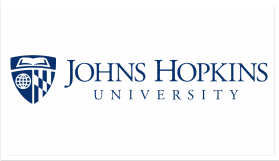
Master of Fine Arts in Fiction/ Poetry
Located in Baltimore, Maryland, Johns Hopkins is a world-renowned private research university. Their Master of Fine Arts in Fiction/Poetry is one of the best MFA creative writing programs anywhere. Students take courses and receive writing practice (in fiction or poetry) at the highest level. This MFA program also offers the opportunity to learn with an internationally renowned faculty.
- Duration: 2 years
- Financial aid: Full tuition, teaching fellowship (for all students set at $33,000/year)
- Acceptance rate: 11.1%
- Location: Baltimore, Maryland
- Founded: 1876
2. University of Michigan – Helen Zell Writers’ Program
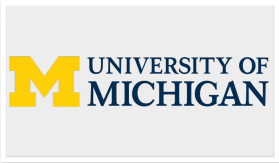
Master of Fine Arts
The University of Michigan is a public research university – and the oldest in the state. Its Master of Fine Arts program is one of the best MFA creative writing programs in the country, exposing students to various approaches to the craft. While studying under award-winning poets and writers, students may specialize in either poetry or fiction.
- Duration: 2 years
- No. of hours: 36
- Financial aid: Full funding
- Acceptance rate: 26.1%
- Location: Ann Arbor, Michigan
- Founded: 1817
3. University of Texas at Austin – New Writers Project
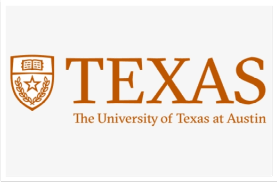
Master of Fine Arts in Creative Writing
The University of Texas at Austin is a well-known public research university with around 50,000 students at the graduate and undergraduate levels. It offers one of the best MFA programs for creative writing, aiming to enhance and develop its students’ artistic and intellectual abilities.
- Duration: 3 years
- Financial aid: Full funding
- Acceptance rate: 32%
- Location: Austin, Texas
- Founded: 1883
4. University of Nebraska – Kearney
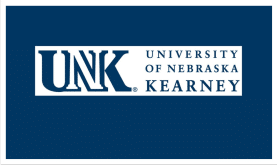
Master of Arts
The University of Nebraska strives to provide quality, affordable education, including its online MA English program. Students can focus on four areas, including Creative Writing (which provides experiential learning in either poetry or prose).
- Credit hours: 36
- Tuition : $315 per credit hour
- Financial aid : Grants, Work-study, Student loans, Scholarships, Parent loans
- Acceptance rate: 88%
- Location: Online
- Founded: 1905
5. Bay Path University (Massachusetts)
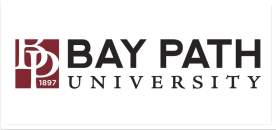
MFA in Creative Nonfiction Writing
Bay Path University is a private university with various programs at undergraduate, graduate, and doctorate levels (including women-only undergraduate programs). This creative non-fiction writing program is one of the first fully online programs in the country. No matter their location, students are able to develop their creative writing skills and knowledge – in a range of literary genres.
- Credits: 39
- Tuition: $775 per credit
- Financial aid : Federal Stafford loan, Student loans
- Acceptance rate: 78%
- Founded: 1897
6. Brown University (Rhode Island)
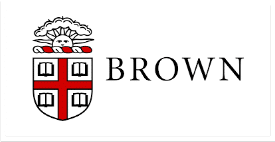
MFA in Literary Arts
Brown is a world-famous Ivy League university based in Providence, Rhode Island. Its two-year residency MFA in Literary Arts is designed for students looking to maximize their intellectual and creative exploration. The highly competitive program offers extensive financial support. In fact, over the past 20 years, all incoming MFA students were awarded full funding for their first year of study (and many for the second year).
- Tuition: $57,591 (but full funding available)
- Financial aid : Fellowship, teaching assistantships, and stipends.
- Acceptance rate: 9%
- Location: Providence, Rhode Island
- Founded: 1764
7. University of Iowa (Iowa)
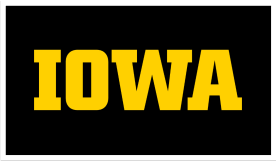
MFA in Creative Writing
The University of Iowa is a public university located in Iowa City. As one of the most celebrated public schools in the Midwest, students learn under established professors and promising writers during their two-year residency program.
- Credits: 60
- Tuition: $12,065 for in-state students, and $31,012 out-of-state
- Financial aid : Scholarships, teaching assistantships, federal aid, and student loans.
- Acceptance rate: 84%
- Location: Iowa City, Iowa
8. Cornell University (New York State)
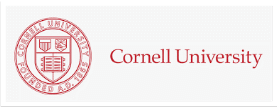
Cornell is an Ivy League university located in Ithaca, New York. This highly competitive program accepts only eight students annually, and just two from each concentration. Not only do students enjoy a generous financial aid package, but they also have the opportunity to work closely with members of the school’s celebrated faculty.
- Tuition: $29,500
- Financial aid : All accepted students receive a fellowship covering full tuition, stipend, and insurance.
- Acceptance rate: 14%
- Location: Ithaca, New York
- Founded: 1865
9. Columbia University ( NYC )
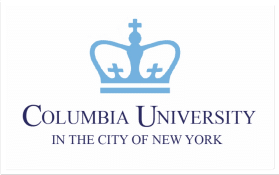
MFA in Fiction Writing
Founded in 1754, Columbia University is the oldest tertiary education institution in New York – and one of the oldest in the country. The school offers a Writing MFA in nonfiction, fiction, poetry, and literary translation. The fiction concentration promotes artistic and aesthetic diversity, with a diverse teaching staff and adjunct faculty from a wide range of diverse experience.
- Credits: 60 points
- Tuition: $34,576
- Financial aid : Scholarships, fellowships, federal aid, work-study, and veterans’ grants.
- Acceptance rate: 11%
- Location: NYC, New York
- Founded: 1754
10. New York University (NYC)
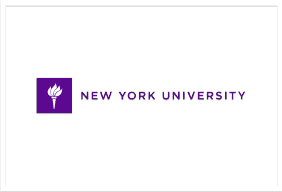
New York University (NYU) is known for delivering high-quality, innovative education in various fields. Located in the heart of NYC, the institution’s MFA in Creative Writing boasts celebrated faculty from poetry, fiction, and creative non-fiction backgrounds. This dynamic program fosters creativity and excellence through literary outreach programs, public reading series, a literary journal, and special seminars from visiting writers
- Credits: 32
- Tuition: $53,229
- Financial aid : Fellowships, scholarships, and federal aid.
- Location: NYC
- Founded: 1886
Common Courses for MFAs in Creative Writing
As part of your master’s in creative writing program, you’ll usually need to complete a number of compulsory courses, along with certain electives. Common courses you’ll need to take include:
- Literary theory
- History of storytelling
- Genre conventions
- Market trends
- Marketing manuscripts to publishers
- Thesis or dissertation
Typical Requirements for Applying to an MFA Creative Writing Program
Besides the application form and fee, most MFA in creative writing programs have standard requirements. While the following are the most typical requirements, always check with the specific program first:
Make sure your resume includes all relevant information to showcase your interests, skills, and talent in writing.
2. Writing Sample(s)
MFA creative writing program selection committees look for applicants who are serious about writing. Therefore, they typically ask for at least one 10-20 page writing sample. The best samples showcase talent in your preferred area of writing (e.g., fiction, non-fiction). MFA poetry programs have varied sample requirements.
3. Transcripts
You’ll need to show your undergraduate degree (and possibly high school) transcript.
4. Statement of Purpose
A statement of purpose is usually 1-2 pages and shows your passion for writing and potential to succeed in the program.
5. Recommendation Letters
Most programs require letters of recommendation from academic or professional contacts who know you well.
Related reading: How to Ask a Professor for a Grad School Recommendation
6. GRE Scores
Some MFA programs require GRE scores (though this is not the case for all universities). If you happen to need some assistance while studying for your GRE or GMAT, be sure to check out Magoosh for easy test prep!
What Can Creative Writers Do After Graduation?
As a creative writer with an MFA, you’ll have a variety of career options where your skills are highly valued. Below are a few of the common jobs an MFA creative writing graduate can do, along with the average annual salary for each.
Creative Director ( $90,389 )
A creative director leads a team of creative writers, designers, or artists in various fields, such as media, advertising, or entertainment.
Editor ( $63,350)
An editor helps correct writing errors and improve the style and flow in media, broadcasting, films, advertising, marketing , and entertainment.
Academic Librarian ( $61,190)
An academic librarian manages educational information resources in an academic environment (such as a university).
Copywriter ( $53,800 )
Copywriters typically work to present an idea to a particular audience and capture their attention using as few words as possible.
Technical Writers ($78,060)
Technical writers are tasked with instruction manuals, guides, journal articles, and other documents. These convey complex details and technical information to a wider audience.
Writer ( $69,510 )
A writer usually provides written content for businesses through articles, marketing content, blogs, or product descriptions. They may also write fiction or non-fiction books.
Social Media Manager ( $52,856 )
A social media manager is responsible for creating and scheduling content on social media, and may also track analytics and develop social media strategies.
Journalist ($ 48,370 )
Journalists may work for newspapers, magazines, or online publications, researching and writing stories, as well as conducting interviews and investigations.
Public Relations Officer ( $62,800)
A public relations officer works to promote and improve the public image of a company, government agency, or organization. This is done through work such as: preparing media releases, online content, and dealing with the media.
Lexicographer ( $72,620 )
Lexicographers are the professionals who create dictionaries. They study words’ etymologies and meanings, compiling them into a dictionary.
Can You Get a Creative Writing Degree Online?
Yes, a number of institutions offer online master’s degrees , such as Bay Path University and the University of Nebraska. Online courses offer a high degree of flexibility, allowing you to study from anywhere – and often on your own schedule. Many students can earn their degrees while continuing with their current job or raising a family.
However, students won’t receive the full benefits of a residency program, such as building close connections with peers and working with the faculty in person. Some on-campus programs also offer full funding to cover tuition and education expenses.
Pros and Cons of an MFA in Creative Writing
Like anything, studying an MFA in Creative Writing and pursuing a related career can have its benefits as well as drawbacks.
- It’ll motivate you to write.
Many people are talented but struggle sitting down to write. An MFA program will give you the motivation to meet your deadlines.
- You’ll have a community.
Writing can be a solitary pursuit. It can be hard to connect with others who are just as passionate about writing. An MFA program provides students with a community of like-minded people.
- Graduates have teaching prospects.
An MFA is one option that can help you find a teaching job at the university level. Unlike some majors that require a Ph.D. to enter academia, many post-secondary instructors hold an MFA.
- Not always the most marketable job skills
Although an MFA in Creative Writing will provide several useful skills in the job market, these are not as marketable as some other forms of writing. For example, copywriting arguably has a wider range of job prospects.
- It could limit your creativity.
There is a risk that your writing could become too technical or formulaic, due to the theories learned during your MFA. It’s important to know the theory, but you don’t want to let it limit your creativity.
How Long Does It Take to Get an MFA Degree in Creative Writing?
A master’s in creative writing typically takes between 2-3 years to complete. Unlike other master’s degrees’ accelerated options, creative writing program requirements require a greater number of workshops and dissertations.
Alternatives to Creative Writing Majors
There are plenty of similar majors that can set you on the path to a career in the creative writing field. Consider alternatives like an MA in English , literature, humanities, media studies, and library sciences.
Related Reading: Master’s in Fine Arts: The Ultimate Guide
Frequently Asked Questions
What can i do with an mfa in creative writing .
An MFA graduate could teach creative writing at a secondary or college level. They may pursue a career in advertising, publishing, media, or the entertainment industry. They could also become an author by publishing fiction, non-fiction, or poetry.
Are MFA Creative Writing Programs Worth It?
Having an MFA opens doors to a range of well-paid careers (more on that above). If you’re skilled in writing – and want to make a decent living with it – an MFA program might be an excellent choice.
How Do I Choose an MFA in Creative Writing?
First, consider whether an on-campus or online MFA program is best for you (depending on your lifestyle and commitments). Another key consideration is a university with renowned authors on their teaching staff who will give you the highest levels of training in creative writing. Also, consider your preferred focus area (e.g., fiction, poetry, nonfiction) .
What Are MFA Writing Programs?
An MFA in writing or creative writing is an advanced program that teaches students the art and practice of writing. During these programs, students hone their writing skills and equip themselves to publish their own work – or pursue a career in media, teaching, or advertising.
Can You Teach with an MFA?
Yes! Teaching is one of the many career options an MFA provides . An MFA in creative writing can qualify you to be a teacher in creative writing (in schools or the higher education sector).
Is It Hard to Be Admitted to MFA Creative Writing Programs?
MFA creative writing programs are relatively competitive. Therefore, not all applicants will get into the program of their choice. However, if you are talented and ambitious that becomes more likely. Having said that, the most prestigious universities with the best MFA creative writing programs accept a small percentage of the applicants.
What Is the Best Creative Writing Program in the World?
A number of creative writing programs are known for their famous faculty and excellent courses, like the Master of Fine Arts in Fiction/ Poetry from Johns Hopkins and the MFA in Literary Arts from Brown University . Outside the US, the most celebrated English program is likely the University of Cambridge’s MSt in Creative Writing.
How Hard Is It to Get an MFA in Creative Writing?
An MFA is an intensive, highly-involved degree that requires a certain amount of dedication. Anyone with a passion for creative writing should find it rewarding and satisfying.
Should I Get an MA or MFA in Creative Writing?
Whether you choose an MA or MFA in creative writing depends on your own interests and career ambitions. An MFA in creative writing is ideal for anyone passionate about pursuing a career in fiction, poetry, or creative non-fiction. An MA is a broader degree that equips students for a wider range of career choices (though it will qualify them for many of the same roles as an MFA).
Can I Get Published Without an MFA?
Absolutely. However, studying for an MFA will equip you with a range of skills and knowledge that are extremely helpful in getting your work published, from honing your craft to submitting your manuscript to working with publishers.
What Are the Highest-Paying Jobs with a Master’s in Creative Writing?
An MFA in creative writing can help you land a range of jobs in the creative and literary fields. The highest-paying jobs for graduates with a master’s in creative writing include creative directors ($90,000) and technical writers ($78,000).
Key Takeaways
An MFA in creative writing program will hone your talents and develop the skills you need to become a successful writer. The best MFA creative writing programs will give you incredible knowledge of the field while developing your practical skills in fiction, non-fiction, or poetry.
The acceptance rate for the best MFA writing programs is fairly low, so it’s crucial to understand the requirements well and prepare thoroughly. To help you with your application, check out our guide to applying to grad school .
- Top 5 Easiest Master’s Degrees + 10 Easiest Grad Schools to Get Into
- Top 10 Cheap Online Master’s Degrees in the US

Lisa Marlin
Lisa is a full-time writer specializing in career advice, further education, and personal development. She works from all over the world, and when not writing you'll find her hiking, practicing yoga, or enjoying a glass of Malbec.
- Lisa Marlin https://blog.thegradcafe.com/author/lisa-marlin/ 12 Best Laptops for Computer Science Students
- Lisa Marlin https://blog.thegradcafe.com/author/lisa-marlin/ ACBSP Vs AACSB: Which Business Program Accreditations is Better?
- Lisa Marlin https://blog.thegradcafe.com/author/lisa-marlin/ BA vs BS: What You Need to Know [2024 Guide]
- Lisa Marlin https://blog.thegradcafe.com/author/lisa-marlin/ The 19 Best MBA Scholarships to Apply for [2024-2025]
Top 13 Highest-Paying MBA Jobs in 2024
Master’s in fine arts: the ultimate guide, related posts.

- How New Grads Research Companies to Find Jobs

- Experience Paradox: Entry-Level Jobs Demand Years in Field

- Grad Trends: Interest in Artificial Intelligence Surges

Applying to Big Tech This Year? Here’s How to Ace It.

73% of job seekers believe a degree is needed for a well-paying role–but is it?

Tech Talent Crunch: Cities with More Jobs Than Workers

Master's in Fine Arts: The Ultimate Guide
Leave a reply cancel reply.
Your email address will not be published. Required fields are marked *
Save my name, email, and website in this browser for the next time I comment.
Recent Posts
- Computer Science Graduate Admission Trends: Annual Results
- The Best Academic Planners for 2024/2025

© 2024 TheGradCafe.com All rights reserved
- Partner With Us
- Results Search
- Submit Your Results
- Write For Us
- Best Colleges
- Application Advice

- Hidden Gem Colleges
The 10 Best Creative Writing MFA Programs in the US
The talent is there.
But the next generation of great American writers needs a collegial place to hone their craft.
They need a place to explore the writer’s role in a wider community.
They really need guidance about how and when to publish.
All these things can be found in a solid Master of Fine Arts in Creative Writing degree program. This degree offers access to mentors, to colleagues, and to a future in the writing world.
A good MFA program gives new writers a precious few years to focus completely on their work, an ideal space away from the noise and pressure of the fast-paced modern world.
We’ve found ten of the best ones, all of which provide the support, the creative stimulation, and the tranquility necessary to foster a mature writer.
We looked at graduate departments from all regions, public and private, all sizes, searching for the ten most inspiring Creative Writing MFA programs.
Each of these ten institutions has assembled stellar faculties, developed student-focused paths of study, and provide robust support for writers accepted into their degree programs.
To be considered for inclusion in this list, these MFA programs all must be fully-funded degrees, as recognized by Read The Workshop .
Creative Writing education has broadened and expanded over recent years, and no single method or plan fits for all students.
Today, MFA programs across the country give budding short story writers and poets a variety of options for study. For future novelists, screenwriters – even viral bloggers – the search for the perfect setting for their next phase of development starts with these outstanding institutions, all of which have developed thoughtful and particular approaches to study.
So where will the next Salinger scribble his stories on the steps of the student center, or the next Angelou reading her poems in the local bookstore’s student-run poetry night? At one of these ten programs.
Here are 10 of the best creative writing MFA programs in the US.
University of Oregon (Eugene, OR)

Starting off the list is one of the oldest and most venerated Creative Writing programs in the country, the MFA at the University of Oregon.
Longtime mentor, teacher, and award-winning poet Garrett Hongo directs the program, modeling its studio-based approach to one-on-one instruction in the English college system.
Oregon’s MFA embraces its reputation for rigor. Besides attending workshops and tutorials, students take classes in more formal poetics and literature.
A classic college town, Eugene provides an ideal backdrop for the writers’ community within Oregon’s MFA students and faculty.
Tsunami Books , a local bookseller with national caché, hosts student-run readings featuring writers from the program.
Graduates garner an impressive range of critical acclaim; Yale Younger Poet winner Brigit Pegeen Kelly, Cave Canem Prize winner and Guggenheim fellow Major Jackson, and PEN-Hemingway Award winner Chang-Rae Lee are noteworthy alumni.
With its appealing setting and impressive reputation, Oregon’s MFA program attracts top writers as visiting faculty, including recent guests Elizabeth McCracken, David Mura, and Li-young Lee.
The individual approach defines the Oregon MFA experience; a key feature of the program’s first year is the customized reading list each MFA student creates with their faculty guide.
Weekly meetings focus not only on the student’s writing, but also on the extended discovery of voice through directed reading.
Accepting only ten new students a year—five in poetry and five in fiction— the University of Oregon’s MFA ensures a close-knit community with plenty of individual coaching and guidance.
Cornell University (Ithaca, NY)

Cornell University’s MFA program takes the long view on life as a writer, incorporating practical editorial training and teaching experience into its two-year program.
Incoming MFA students choose their own faculty committee of at least two faculty members, providing consistent advice as they move through a mixture of workshop and literature classes.
Students in the program’s first year benefit from editorial training as readers and editors for Epoch , the program’s prestigious literary journal.
Teaching experience grounds the Cornell program. MFA students design and teach writing-centered undergraduate seminars on a variety of topics, and they remain in Ithaca during the summer to teach in programs for undergraduates.
Cornell even allows MFA graduates to stay on as lecturers at Cornell for a period of time while they are on the job search. Cornell also offers a joint MFA/Ph.D. program through the Creative Writing and English departments.
Endowments fund several acclaimed reading series, drawing internationally known authors to campus for workshops and work sessions with MFA students.
Recent visiting readers include Salman Rushdie, Sandra Cisneros, Billy Collins, Margaret Atwood, Ada Limón, and others.
Arizona State University (Tempe, AZ)

Arizona State’s MFA in Creative Writing spans three years, giving students ample time to practice their craft, develop a voice, and begin to find a place in the post-graduation literary world.
Coursework balances writing and literature classes equally, with courses in craft and one-on-one mentoring alongside courses in literature, theory, or even electives in topics like fine press printing, bookmaking, or publishing.
While students follow a path in either poetry or fiction, they are encouraged to take courses across the genres.
Teaching is also a focus in Arizona State’s MFA program, with funding coming from teaching assistantships in the school’s English department. Other exciting teaching opportunities include teaching abroad in locations around the world, funded through grants and internships.
The Virginia C. Piper Center for Creative Writing, affiliated with the program, offers Arizona State MFA students professional development in formal and informal ways.
The Distinguished Writers Series and Desert Nights, Rising Stars Conference bring world-class writers to campus, allowing students to interact with some of the greatest in the profession. Acclaimed writer and poet Alberto Ríos directs the Piper Center.
Arizona State transitions students to the world after graduation through internships with publishers like Four Way Books.
Its commitment to the student experience and its history of producing acclaimed writers—recent examples include Tayari Jones (Oprah’s Book Club, 2018; Women’s Prize for Fiction, 2019), Venita Blackburn ( Prairie Schooner Book Prize, 2018), and Hugh Martin ( Iowa Review Jeff Sharlet Award for Veterans)—make Arizona State University’s MFA a consistent leader among degree programs.
University of Texas at Austin (Austin, TX)

The University of Texas at Austin’s MFA program, the Michener Center for Writers, maintains one of the most vibrant, exciting, active literary faculties of any MFA program.
Denis Johnson D.A. Powell, Geoff Dyer, Natasha Trethewey, Margot Livesey, Ben Fountain: the list of recent guest faculty boasts some of the biggest names in current literature.
This three-year program fully funds candidates without teaching fellowships or assistantships; the goal is for students to focus entirely on their writing.
More genre tracks at the Michener Center mean students can choose two focus areas, a primary and secondary, from Fiction, Poetry, Screenwriting, and Playwriting.
The Michener Center for Writers plays a prominent role in contemporary writing of all kinds.
The hip, student-edited Bat City Review accepts work of all genres, visual art, cross genres, collaborative, and experimental pieces.
Recent events for illustrious alumni include New Yorker publications, an Oprah Book Club selection, a screenwriting prize, and a 2021 Pulitzer (for visiting faculty member Mitchell Jackson).
In this program, students are right in the middle of all the action of contemporary American literature.
Washington University in St. Louis (St. Louis, MO)

The MFA in Creative Writing at Washington University in St. Louis is a program on the move: applicants have almost doubled here in the last five years.
Maybe this sudden growth of interest comes from recent rising star alumni on the literary scene, like Paul Tran, Miranda Popkey, and National Book Award winner Justin Phillip Reed.
Or maybe it’s the high profile Washington University’s MFA program commands, with its rotating faculty post through the Hurst Visiting Professor program and its active distinguished reader series.
Superstar figures like Alison Bechdel and George Saunders have recently held visiting professorships, maintaining an energetic atmosphere program-wide.
Washington University’s MFA program sustains a reputation for the quality of the mentorship experience.
With only five new students in each genre annually, MFA candidates form close cohorts among their peers and enjoy attentive support and mentorship from an engaged and vigorous faculty.
Three genre tracks are available to students: fiction, poetry, and the increasingly relevant and popular creative nonfiction.
Another attractive feature of this program: first-year students are fully funded, but not expected to take on a teaching role until their second year.
A generous stipend, coupled with St. Louis’s low cost of living, gives MFA candidates at Washington University the space to develop in a low-stress but stimulating creative environment.
Indiana University (Bloomington, IN)

It’s one of the first and biggest choices students face when choosing an MFA program: two-year or three-year?
Indiana University makes a compelling case for its three-year program, in which the third year of support allows students an extended period of time to focus on the thesis, usually a novel or book-length collection.
One of the older programs on the list, Indiana’s MFA dates back to 1948.
Its past instructors and alumni read like the index to an American Literature textbook.
How many places can you take classes in the same place Robert Frost once taught, not to mention the program that granted its first creative writing Master’s degree to David Wagoner? Even today, the program’s integrity and reputation draw faculty like Ross Gay and Kevin Young.
Indiana’s Creative Writing program houses two more literary institutions, the Indiana Review, and the Indiana University Writers’ Conference.
Students make up the editorial staff of this lauded literary magazine, in some cases for course credit or a stipend. An MFA candidate serves each year as assistant director of the much-celebrated and highly attended conference .
These two facets of Indiana’s program give graduate students access to visiting writers, professional experience, and a taste of the writing life beyond academia.
University of Michigan, Ann Arbor (Ann Arbor, MI)

The University of Michigan’s Helen Zell Writers’ Program cultivates its students with a combination of workshop-driven course work and vigorous programming on and off-campus. Inventive new voices in fiction and poetry consistently emerge from this two-year program.
The campus hosts multiple readings, events, and contests, anchored by the Zell Visiting Writers Series. The Hopgood Awards offer annual prize money to Michigan creative writing students .
The department cultivates relationships with organizations and events around Detroit, so whether it’s introducing writers at Literati bookstore or organizing writing retreats in conjunction with local arts organizations, MFA candidates find opportunities to cultivate a community role and public persona as a writer.
What happens after graduation tells the big story of this program. Michigan produces heavy hitters in the literary world, like Celeste Ng, Jesmyn Ward, Elizabeth Kostova, Nate Marshall, Paisley Rekdal, and Laura Kasischke.
Their alumni place their works with venerable houses like Penguin and Harper Collins, longtime literary favorites Graywolf and Copper Canyon, and the new vanguard like McSweeney’s, Fence, and Ugly Duckling Presse.
University of Minnesota (Minneapolis, MN)

Structure combined with personal attention and mentorship characterizes the University of Minnesota’s Creative Writing MFA, starting with its unique program requirements.
In addition to course work and a final thesis, Minnesota’s MFA candidates assemble a book list of personally significant works on literary craft, compose a long-form essay on their writing process, and defend their thesis works with reading in front of an audience.
Literary journal Great River Review and events like the First Book reading series and Mill City Reading series do their part to expand the student experience beyond the focus on the internal.
The Edelstein-Keller Visiting Writer Series draws exceptional, culturally relevant writers like Chuck Klosterman and Claudia Rankine for readings and student conversations.
Writer and retired University of Minnesota instructor Charles Baxter established the program’s Hunger Relief benefit , aiding Minnesota’s Second Harvest Heartland organization.
Emblematic of the program’s vision of the writer in service to humanity, this annual contest and reading bring together distinguished writers, students, faculty, and community members in favor of a greater goal.
Brown University (Providence, RI)

One of the top institutions on any list, Brown University features an elegantly-constructed Literary Arts Program, with students choosing one workshop and one elective per semester.
The electives can be taken from any department at Brown; especially popular choices include Studio Art and other coursework through the affiliated Rhode Island School of Design. The final semester consists of thesis construction under the supervision of the candidate’s faculty advisor.
Brown is the only MFA program to feature, in addition to poetry and fiction tracks, the Digital/Cross Disciplinary track .
This track attracts multidisciplinary writers who need the support offered by Brown’s collaboration among music, visual art, computer science, theater and performance studies, and other departments.
The interaction with the Rhode Island School of Design also allows those artists interested in new forms of media to explore and develop their practice, inventing new forms of art and communication.
Brown’s Literary Arts Program focuses on creating an atmosphere where students can refine their artistic visions, supported by like-minded faculty who provide the time and materials necessary to innovate.
Not only has the program produced trailblazing writers like Percival Everett and Otessa Moshfegh, but works composed by alumni incorporating dance, music, media, and theater have been performed around the world, from the stage at Kennedy Center to National Public Radio.
University of Iowa (Iowa City, IA)

When most people hear “MFA in Creative Writing,” it’s the Iowa Writers’ Workshop they imagine.
The informal name of the University of Iowa’s Program in Creative Writing, the Iowa Writers’ Workshop was the first to offer an MFA, back in 1936.
One of the first diplomas went to renowned writer Wallace Stegner, who later founded the MFA program at Stanford.
It’s hard to argue with seventeen Pulitzer Prize winners and six U.S. Poets Laureate. The Iowa Writers’ Workshop is the root system of the MFA tree.
The two-year program balances writing courses with coursework in other graduate departments at the university. In addition to the book-length thesis, a written exam is part of the student’s last semester.
Because the program represents the quintessential idea of a writing program, it attracts its faculty positions, reading series, events, and workshops the brightest lights of the literary world.
The program’s flagship literary magazine, the Iowa Review , is a lofty goal for writers at all stages of their career.
At the Writers’ Workshop, tracks include not only fiction, poetry, playwriting, and nonfiction, but also Spanish creative writing and literary translation. Their reading series in association with Prairie Lights bookstore streams online and is heard around the world.
Iowa’s program came into being in answer to the central question posed to each one of these schools: can writing be taught?
The answer for a group of intrepid, creative souls in 1936 was, actually, “maybe not.”
But they believed it could be cultivated; each one of these institutions proves it can be, in many ways, for those willing to commit the time and imagination.
Related Posts

Dental hygiene has become a popular profession for students wanting to enter the health profession.…

Ranked as the #1 healthcare job, physician assistants enjoy an exciting and fulfilling career. PAs…

In 2019 there were over 130,000 phlebotomists nationwide. These medical professionals are responsible for drawing…
RELATED ARTICLES MORE FROM AUTHOR

The Best Universities in Europe

The 10 Best Universities in Japan

The Best Master’s in Public Administration Programs in the US

The Best Master’s in Education Programs

10 Colleges With Amazing Study Abroad Programs

The Best Early Childhood Education Colleges

POPULAR POSTS

The 10 Best Marine Biology Colleges in the US

Here Are the 10 Best Optometry Schools in the US

Here Are the 10 Best Dental Schools in the US
Popular category.
- Acceptance Rates 253
- Hidden Gem Colleges 81
- Medical Schools 76
- Ivy League Schools 62
- Law Schools 49
- Performing Arts 45
- Art Schools 42
- Health Sciences 40
- Summer Programs 39
- Terms of Use
- Privacy Policy

Editor’s Top Selections – Best Creative Writing MFA Programs

Created by CreativeWritingEDU.org Contributor
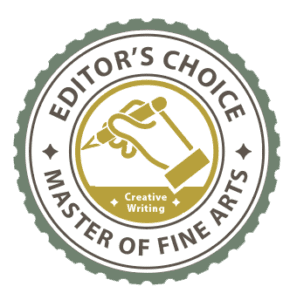
Once few and far between, master’s degrees aimed specifically at teaching creative writing have ballooned to meet demand in recent years. As of 2022, there were more than 300 of them.
Each MFA offers a distinctive experience and comes with its own theories and techniques for fanning the creative spark in students.
- Some come with exquisite and carefully curated libraries exhibiting the finest selection of literature for study.
- Others offer a fully-funded education , covering tuition and offering a stipend to give you the free time you need to write to your fullest potential.
- Many have well-known authors serving as guest lecturers or even permanent presenters, offering a kind of access to genius you can’t find anywhere else.
It’s nice to have choices, but having choices also means making hard decisions. We’re here to help take some of the pain out of that process by presenting our own select choices for the very best universities offering MFA Creative Writing programs today.
How We Made Our Selections for the Finest Creative Writing MFA Programs
Schools that only teach creative writing at the master’s level have made a conscious choice to focus on a high level of training in the craft of writing. It’s completely appropriate to hold them to high standards.
It’s notoriously difficult to weigh any kind of artistic education program against another, however. Every writer is different. The process and program that you will get the most out of may be completely different from what the next author would benefit from.
So we look at the kinds of factors these degrees deliver that don’t revolve around process. Regardless of how an advanced level of creative writing is being taught, there are just some things that offer a better education no matter how they are applied. In our view, those include:
Top-notch Instructors With Genuine Writing and Publication Expertise
There’s no substitute for professors who have been there and done that in creative writing. Competition for top writers to teach at creative writing MFA programs is intense, and for good reason: when you are trying to master the muse, you want to hear about it from someone who already has.
But literary success is no guarantor of teaching ability. You wouldn’t want to be in a class taught by brilliant sci-fi author Harlan Ellison, for example, who has a whole section on his Wikipedia entry titled “Temperament.” Mentoring and the gentle art of delivering critical feedback to boost and not hinder students are key skills.
So, the best MFA in creative writing degrees employ professors with the rare combination of literary and academic talent—which is what you will find at each of the schools on this list.
The Resources To Support Your Writing Vision
Writers only float in a sea of ideas. The top MFA programs in creative writing have the resources to fill that ocean:
- Expansive libraries for conducting research
- Endowments to help fund student fellowships
- Visiting writer and other lecture and reading series to develop broad visions and connections
- School-run or affiliated literary journals or publishers to open up publication opportunities
- International or other off-campus programs to broaden your literary experiences
- Calm and inspiring writing residency options to put you in the right frame of mind to write
- Small class sizes and workshops to foster intimacy and feedback
Although not all these programs will check every one of those boxes, each of them has a wealth of different resources to offer to help get students off the ground in both their creative exercises and their publishing careers.
A Track Record of Educational Success in Creative Writing
Most MFA programs are quick to acknowledge that you can’t teach talent—but you can foster and hone it.
That leads to demonstrable results in the form of graduates who have attracted top-dollar publishing deals, industry awards and recognition, and who have gone on to critical acclaim or even become instructors themselves.
This kind of reputation is golden in the literary world and all of these schools will have people sitting up and taking note when their name pops up in your author bio.
Strong Publishing Industry and Literary Community Connections
When you produce successful writers and hire well-known authors to instruct classes, important industry connections are an asset included in the deal. Those industry ties prove to be among the most important characteristics of the best creative writing MFA programs.
Each of these programs has developed connections to major publishers, agencies, and trade groups that help lay the groundwork for you to launch your writing career. There is fierce competition to land book deals in the publishing industry today. Every editor receives stacks and stacks of submissions and query letters; even the best authors have trouble making it out of the slush piles without a recommendation or introduction.
These schools have the kind of connections that will help get you introduced to decision-makers in big agencies and book publishers. Who you know still isn’t as important as how good your writing is, but with these programs, you’ll get the best of both worlds.
Diverse and Original Coursework in Foundational and Advanced Writing Skills
A Master of Fine Arts in Creative Writing puts a clear stamp on your work. It’s designed to get the best out of your native skill and polish it to the finest shine.
That means both ironing out the fundamentals of the writing craft and developing new and advanced skills. All of these degrees have a wide range of courses and workshops that offer a deep background in the knowledge and skills required for solid plotting, character development, and essential technical expertise as a writer. But they also go far beyond those to help you seek new sources of inspiration and experience. Exploring the poetry of science fiction; diving into post-apocalyptic writing; focusing on the art of telling a joke; comparing Western and Eastern literary forms and storytelling… all these kinds of classes and more offer you an edge in taking your writing to the next level with a degree from these schools.
Helping You Choose From Among the Finest Creative Writing MFA Programs in the Nation
All those features are what make these programs the best. But the real question you need to answer is which one will actually be the best for you ?
We can help you figure that out, too. Although each of these schools comes in on top of the pack of master’s-level creative writing programs in the country in general, each also has unique features that will determine how they fit in with your personal goals and style.
So for each listing, we give you plenty of additional information to help you make your decision. That includes data on:
You’ll also get a thumbnail sketch of what makes the school a great one, outlining many of the supporting facts behind the criteria we evaluated them on. But you’ll also get some of the highlights, the things that really make them stand out, such as:
- Whether the school also offers undergraduate and doctoral degrees
- Which concentration or specializations are offered
- The formats in which the program is available
- Whether the school is public or private
- Rankings by respected third-party evaluators like The Princeton Review
- Exemplary student-published literary magazines
- Super low student-to-faculty ratios
- Unique workshops or internship opportunities offered
- Generous fellowship opportunities
It’s easy access to the kind of information that will help make your decision easy… all in one place.
State-By-State: Top Selections for the Best Creative Writing Master of Fine Arts (MFA) Programs in the U.S.
Competition to get into these elite MFA creative writing programs can be stiff. But if you are determined to get the finest graduate education in creative writing available today, then choosing from among these schools offers your best chances.
Find the Best MFA Creative Writing Programs in Your State
Connecticut.
District of Columbia
Massachusetts
Mississippi, new hampshire, north carolina, pennsylvania, rhode island, south carolina, university of arizona (public).
COLLEGE OF SOCIAL AND BEHAVIORAL SCIENCES

MFA in Creative Writing (on-campus)
Fully funded through graduate teaching assistantships
Also offers: BA in Creative Writing (on-campus)
- Both programs allow students to focus on fiction, nonfiction, or poetry
- MFA program is ranked among the top programs in the nation
- Fully funded MFA offered through graduate teaching assistantships
- MFA features unparalleled opportunities to write and research at the US-Mexico border through the Southwest Field Studies on Writing Program
The University of Arizona offers a BA and MFA in Creative Writing, both of which are part of one the top-ranked creative writing programs in the nation! Choose the BA in Creative Writing and you’ll learn from award-winning writers as you refine your skillset in writing, research, critical thinking, and literary analysis and explore the genres of fiction, nonfiction, and poetry (you’ll choose one genre as a focus after your first year of study). You’ll also be encouraged to take a variety of courses in professional and technical writing, the study of literature, writing and publishing, writing and community, and language, making this a truly well-rounded course of undergraduate study. The University of Arizona’s MFA in Creative Writing has been producing award-winning writers for 50 years and is regarded as one of the top programs of its kind in the nation. This fully funded, three-year program features your choice of fiction, poetry, or nonfiction concentration and a dynamic classroom experience that includes a world-class faculty and small, workshop-style courses.
University of Arkansas (Public)
FULBRIGHT COLLEGE OF ARTS AND SCIENCES
Fayetteville, AR

MFA in Creative Writing & Translation (poetry, fiction, literary translation) (on-campus)
Fully funded MFA with absolutely no tuition costs for students accepted into the program
- Highly selective program admits up to five students each year in each genre (poetry, prose, and literary translation)
- Outstanding opportunities to learn from established writers through the Walton Reading Series
- Consistently ranked among the top MFA programs in the country by Poets & Writers
- Named among the “Top Five Most Innovative” programs of its kind by Atlantic Monthly
The University of Arkansas’ MFA in Creative Writing & Translation is a unique course of graduate study that’s personalized with your choice of concentration in poetry, fiction, or literary translation. This program is among the nation’s oldest MFA programs, yet never fails to impress with its dynamic, forward-thinking curriculum. In fact, it was named among the “Top Five Most Innovative” programs of its kind by Atlantic Monthly ! For more than 50 years, the university’s MFA in Creative Writing & Translation has produced some of the country’s top writers – and it’s little wonder why. The robust curriculum of this program is built on a solid foundation of coursework in craft and literary studies and complemented with a superb, student-centered learning environment that boasts small class sizes and a dedicated faculty.
University of California-Davis (Public)
COLLEGE OF LETTERS AND SCIENCES

Also offers: BA in English-Creative Writing emphasis (on-campus)
- Full funding guaranteed in the second year of the MFA program in exchange for undergrad teaching positions
- Ranked among the top five public universities in the nation by the Wall Street Journal/Times Higher Education
- MFA students choose a single genre – fiction, nonfiction, or poetry, or a multi-genre focus
The University of California – Davis offers both an undergraduate and graduate program in creative writing that are designed to inspire the emerging or established writer! Focused on the mastery of craft with a solid foundation in literary traditions, the BA in English with a Creative Writing emphasis is designed to expand your knowledge and refine your writing skills in preparation for a variety of careers in areas like publishing, marketing, journalism, advertising, and more. The innovative Creative Writing MFA program features a nice blend of studio and literature courses in your choice of fiction, nonfiction, poetry, or multi-genre. In the second year, you’ll teach creative writing courses to undergrad students as you prepare to become a successful practitioner in your own right. All students of the MFA are guaranteed full funding in their second year!
University of California-Irvine (Public)
SCHOOL OF HUMANITIES

MFA in English-Creative Writing (Fiction, Poetry) (on-campus)
Full funding available through graduate teaching assistantships
- UCI named a Fulbright Hispanic-Serving Institution (HIS) Leader
- Your choice of poetry or fiction concentration/emphasis
- Superb student engagement and feedback through the Graduate Writers’ Workshop
The University of California – Irvine is home to the esteemed MFA in English with a Creative Writing emphasis, an exciting course of graduate study that allows students to explore poetry or fiction through dynamic workshops and seminars. Designed to bring together a talented group of writers with plans on a writing-intensive career, the MFA program is rich in close mentorship from accomplished visiting writers. This highly selective program admits just 12 new students each year to ensure one-on-one guidance and support from the program’s faculty. This program is built on the Graduate Writers’ Workshop, a group that meets each quarter to share and critique one another’s writing. Throughout the course of the program, students participate in the Graduate Writers’ Workshop and attend graduate-level seminars.
San Diego State University (Public)
COLLEGE OF ARTS AND LETTERS
San Diego, CA

- Competitive graduate teaching associate positions available
- Exciting Fulbright Fellowships available to study in places like Austria, Brazil, and Poland.
- Your choice of focus in fiction, poetry, or cross-genre
San Diego State University’s MFA in Creative Writing offers is innovative, personalized, and designed to arouse your creative skillset. As one of the oldest MFA Creative Writing programs in the nation, this course of graduate study enjoys a long history of producing skilled, inspired writers. But don’t expect a stale, rote curriculum. Instead, you’ll immerse yourself in a dynamic program that includes your choice of concentration in fiction, poetry, or cross-genre as you work toward producing a manuscript of your original work. Students of this program also enjoy studying under internationally acclaimed visiting writers from around the world, and many students receive Fulbright Fellowships to study in places like Austria, Brazil, and Poland.
California College of the Arts (Private)
San Francisco, CA

MFA in Writing (on-campus)
Also offers: BA in Writing and Literature (on-campus)
- Superb faculty of accomplished scholars, writers, poets, and playwrights
- Outstanding internship opportunities with Bay Area literary organizations available
For aspiring and emerging writers, the California College of the Arts offers a BA in Writing and Literature and an MFA in Writing! The BA offers a foundation in literature and critical inquiry and dynamic workshops in prose, poetry, drama, screenwriting, graphic novels, improvisation, and more. You’ll refine your skills in literary journalism, hybrid narratives, lyric essays, and much more as you conduct close readings and analyses of writing across time. BA students learn from acclaimed authors through the HearSay Reading Series… they contribute their talents to Humble Pie , the undergraduate journal… and they enjoy outstanding internship experiences with Bay Area literary organizations. The MFA program is offered at the Writers’ Studio, where students participate in workshops, readings, and craft talks and learn from accomplished authors through the famed Tuesdays Talk series. Here students explore nonfiction, fiction, and poetry in a close, supportive atmosphere that naturally elicits creativity and inspiration.
Saint Mary’s College of California (Private)
SCHOOL OF LIBERAL ARTS
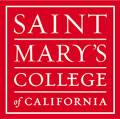
MFA in Creative Writing (Creative Non-Fiction, Fiction, Poetry, Book Manuscript) (on-campus)
Also offers: BA in English – Creative Writing (on-campus)
- Ranked among the top five regional universities in the West by U.S. News & World Report
- All MFA students receive partial funding and opportunities to apply for teaching fellowships, assistantships, and paid internships
- Exciting selection of undergraduate internship opportunities available
- Two-year MFA also includes the option of completing a third year in an additional genre or taking a fifth semester Book Manuscript Intensive course
Saint Mary’s College offers both undergraduate and graduate programs for the creative writer in a supportive private school setting that’s heralded for its academic rigor and plentiful hands-on learning experiences. The BA in English with a Creative Writing emphasis offers a foundation in the creative writing process and options to focus on a specific genre of creative writing like poetry, fiction, nonfiction, dramatic writing, or screenwriting. All students of this program also participate in the Creative Writing Reading Series, which includes attending events and meeting with visiting writers. On-campus internship opportunities include working with the Office of Marketing and Communications or the Center for Writing Across the Curriculum and contributing to riverrun , the undergraduate literary journal, while off-campus internship opportunities include organizations and publications like Counterpoint Press, Diablo Magazine , No Starch Press, Sierra Magazine , and more! The MFA in Creative Writing is a two-year course of study that features an award-winning faculty (including visiting writers in residence); opportunities to contribute to the MFA journal, MARY: A Journal of New Writing ; and your choice concentration in creative nonfiction, fiction, or poetry. Students may also complete a third year in an additional genre or take a fifth semester Book Manuscript Intensive course.
Western Colorado University (Public)
COMMUNICATION ARTS, LANGUAGE AND LITERATURE (CALL) DEPARTMENT
Gunnison, CO

MA/MFA in Creative Writing (low-residency)
- Supportive, student-centered learning environment features an average class size of just 16
- BA students gain valuable experience by editing a book published by Western Press Books and preparing their own work for submission
- MFA offers convenient and flexible online study complemented with one-week on-campus residencies
- MFA offers your choice of one of five genre concentrations: nature writing, genre fiction, poetry, publishing, or screenwriting
Western Colorado University is home to not one, but two creative writing programs that are designed to meet you wherever you are in your career. The BA in English with a Creative Writing emphasis is ideally designed for emerging writers who seek a comprehensive course of study delivered within a supportive community. Students of this program enjoy a strong foundation in English literature traditions, theory, and criticism with advanced courses in poetry, fiction, creative nonfiction, and scripts. You’ll also enjoy flexing your creative skills by contributing to WordHorde, the Creative Writing student organization, and lending help to other students through the Writing Center. Before you graduate, you’ll edit a book published by Western Press Books and prepare your own work for submission. The MFA Creative Writing program here provides an advanced course of study in one of five genres: nature writing, genre fiction, poetry, publishing, or screenwriting. This program comes complete with a dedicated faculty of award-winning writers and a low-residency model that delivers outstanding convenience and flexibility.
Western Connecticut State University (Public)
MACRICOSTAS SCHOOL OF ARTS AND SCIENCES
Danbury, CT

MFA in Creative and Professional Writing (low-residency)
- Outstanding record of graduate success: 87% of all graduates go on to publish books and/or work full-time as professional writers
- Convenient and flexible program features a low-residency model that combines online study with dynamic residencies, either on-campus or abroad
- Competitive graduate assistantships available
Western Connecticut State University offers the MFA in Creative and Professional Writing, which comes complete with a dynamic curriculum that’s delivered in a low-residency model for outstanding convenience and flexibility. We love this program because it offers a comprehensive graduate course of study in multiple genres (students here take workshops and course in all genres and styles), thereby preparing students as well-rounded, versatile writers who find success in both creative and professional writing fields. We also love this program’s exciting residency opportunities that now include options to study in Dublin, Ireland (during the Bram Stoker Festival) and at the Highlights Foundation Retreat Center in the Poconos!
Fairfield University (Private)
COLLEGE OF ARTS AND SCIENCES
Fairfield, CT

MFA in Creative Writing (poetry, fiction, creative nonfiction, screenwriting) (low-residency)
Also offers: Major in English-Creative Writing concentration (on-campus)
- Options to focus the MFA on poetry, fiction, creative nonfiction, or screenwriting
- Ranked among the top national universities by U.S. News & World Report
- Low-residency model features dynamic, engaging residencies on Ender Island in Mystic, CT
Fairfield University’s MFA in Creative Writing offers your choice of focus in poetry, fiction, creative nonfiction, or screenwriting and a low-residency model that’s sure to fit well into your busy schedule. The program’s flexible and challenging curriculum is ideally designed to allow students to design a course of study that best aligns with their professional goals and personal interests. It’s also home to the CT Writing Project, which is home to outstanding opportunities to learn from visiting writers; attend writers’ retreats; and more. Choose Fairfield for your creative writing master’s program and you’ll enjoy opportunities to complete an internship in journalism, public relations, business writing, publishing, and more.
District of Columbia - DC
American university (private).
Washington, DC

- Competitive Merit Awards (tuition and stipends) available
- Exciting opportunities to study in an intimate learning environment that encourages constructive feedback and support
- Your choice of focus on a single genre or multiple genres
American University’s MFA in Creative Writing has been producing the next generation of creative writers for more than 30 years! The only program of its kind in our nation’s capital, the MFA in Creative Writing is your opportunity to explore the art and craft of fiction, nonfiction, and poetry. The flexible design of this program allows students to pursue a single genre or multiple genres, and the tightknit, supportive learning environment encourages superb guidance and feedback from peers and faculty. Students of this program contribute to Folio , the College of Arts and Sciences’ nationally recognized literary journal and Café MFA , the online journal of the Creative Writing program.
Florida State University (Public)
Tallahassee, FL

Also offers: Major in Creative Writing (on-campus)
- Ranked among the top national public universities by U.S. News & World Report
- Home to a nationally and internationally renowned, award-winning faculty
- Superb internship opportunities available
Florida State University offers both undergraduate and graduate programs in creative writing within one of the top writing programs in the country! Just some of the reasons why emerging creative writers flock to FSU include an award-winning faculty (many are recipients of the Pulitzer Prize, the National Book Award, the Guggenheim Foundation Fellowship and more)… opportunities to complete a teaching apprenticeship program through graduate teaching assistantships… and an Editing Internship, your chance to gain valuable, hands-on experiences with a magazine, newspaper, publishing house, television station, marketing firm, nonprofit organization, and more. FSU’s English Department is also home to the Southeast Review , a national literary magazine, and The Kudzu Review , the undergraduate literary magazine, both of which are great sources of hands-on learning experiences.
Florida International University (Public)
ARTS, SCIENCES, AND EDUATION
North Miami, FL

- Program graduates have published 200+ books
- Ranked among the Best Colleges in the nation for social mobility and innovation by U.S. News & World Report
- Home to a dedicated faculty of award-winning, working writers
Florida International University’s MFA in Creative Writing is where you’ll advance your understanding of professional standards and expectations as you hone your creative skillset in your chosen genre. Ideal for future endeavors in teaching, editing, publishing, the arts, and more, this illustrious program of study comes complete with an intimate learning environment; a curriculum of seminar-style courses, workshops, and form and theory courses; outstanding, one-on-one mentoring; and a dedicated faculty of award-winning, working writers. As you progress throughout the program, you’ll work toward the completion of a publishable, book-length creative thesis.
Stetson University (Private)

MFA in Creative Writing (low-residency)
- Program features a concentration in poetry and prose in the expanded field
- Outstanding guidance and mentorship found here – residency workshops include a low, 5:1 student-to-faculty ratio
- Exciting, low-residency model features online study combined with two residencies annually
- Named among the nation’s Best Colleges by U.S. News & World Report
Stetson University’s MFA in Creative Writing offers an outstanding course of graduate study that’s delivered in a low-residency format to accommodate your busy schedule. Choose this program and you’ll enjoy intensive, dynamic mentorship and engagement marked by small workshop groups, individual mentoring sessions, craft lectures, translation workshops, and more. This program is innovative and dynamic, allowing students to explore the many political, social, aesthetic, and cultural factors that are reflective of your work. The low-residency model features online courses that are complemented with two, ten-day residencies where students gather to learn from accomplished writers and exchange their work with faculty mentors. Residencies are held at the Atlantic Center for the Arts in New Smyrna Beach, Florida, and at various international locations! Past residencies were held in Buenos Aires, Argentina and Rio de Janeiro, Brazil!
Georgia State University (Public)
Atlanta, GA

MA/MFA in English-Creative Writing concentration (on-campus)
Also offers: BA in English-Creative Writing (on-campus)
- Ranked among the top innovative universities in the nation by U.S. News & World Report
- Also offers: PhD in English, Concentration in Creative Writing, which is ranked among the top programs of its kind in the nation by Poets & Writers
- Exciting international exchange and study abroad programs available to places like England, France, Italy, Germany, and China
Two creative writing programs, one world-class university—Georgia State University is where emerging writers head for outstanding instruction and inspiration! Choose the BA in English with a Creative Writing concentration and you’ll complete undergraduate study in British and American literature and culture alongside courses focused on the craft and art of creative writing and the poetry, fiction, and creative nonfiction genres. The MA/MFA in English with a Creative Writing concentration features your choice of focus on poetry or fiction and a superb curriculum that prepares students for further study at the PhD level or for careers in a variety of writing-intensive fields. We love the English Department’s award-winning faculty of poets, and authors and the exciting opportunities to hone your craft by contributing to the award-winning Five Points: A Journal of Literature and Art and the student-edited literary magazine, New South .
University of Idaho (Public)
DEPARTMENT OF ENGLISH

- Fully funded MFA for all students through graduate teaching assistantships
- Ranked among the top 8% best colleges in the nation by the Princeton Review
- Ranked among the top 15% of American National Universities by U.S. News & World Report
- Three MFA students are awarded fellowships to write in residence at the Taylor Ranch Research Station in the Frank Church Wilderness Area of the Selway-Bitterroot Mountains
The University of Idaho’s creative writing programs are part of the Department of English’s vibrant community where you can always find inspiration in the form of literary readings, scholarly lectures, conferences, student gatherings, and more. The BA in English with a Creative Writing emphasis boasts engaging courses in fiction, creative fiction, and poetry; esteemed professors who offer one-on-one mentorship; and outstanding opportunities to flex your creative writing skillset and gain valuable, hands-on experiences. The MFA offers a fully funded, three-year course of graduate study in nonfiction, poetry, and fiction. We love the mix of genre workshops, technique studios, and traditional seminars that provide students with an outstanding blend of study in the craft. And the practicum in literary magazine and editing production provides students with an expanded skillset upon graduation.
University of Illinois Urbana-Champaign (Public)
COLLEGE OF LIBERAL ARTS AND SCIENCES

MFA in Creative Writing (Fiction, Poetry) (on-campus)
Fully funded program
Also offers: BA in Liberal Arts and Sciences-Creative Writing (on-campus)
- Also offers a PhD in Writing Studies
- Fully funded MFA offered through full tuition waivers, guaranteed teaching assistantships, and fellowships
- MFA features your choice of focus on fiction or poetry and extensive study in literary publishing and editing
Two creative writing programs at one nationally renowned university – the University of Illinois Urbana-Champaign is where you want to be! The undergraduate creative writing major, which is one of the oldest programs of its kind in the country, is built on small, workshop-style courses in poetry, fiction, and nonfiction that are ideally designed to prepare students for exciting careers in a number of fields or for future graduate study. Students of this program edit and publish the Montage Arts Journal , the university’s undergraduate literary arts journal, which offers outstanding, hands-on learning experiences. The MFA Creative Writing program is a three-year, rigorous course of study in creative writing and literature that offers students the option of specializing in fiction or poetry. You’ll study under the program’s distinguished and dedicated graduate faculty as you take four workshops in your chosen genre and work toward producing a book-length, publishable manuscript. You’ll also receive extensive, hands-on experience in literary editing and publishing in this fully funded graduate program!
Northwestern University (Private)
WEINBERG COLLEGE OF ARTS & SCIENCES
Evanston, IL

MFA in Creative Writing (program is combined with a simultaneous MA in English) (low-residency)
Fully funded through fellowships and graduate assistantships
- MFA is fully funded through fellowships and graduate assistantships
- MFA allows students to work in one genre (poetry, fiction, or creative nonfiction) and also explore a second genre
Northwestern University’s creative writing programs are home to an accomplished faculty of award-winning authors and offered in a supportive, creative community where inspiration naturally flourishes. The Creative Writing major enjoys an outstanding record of graduate success and a reputation as one of the finest undergraduate programs of its kind in the nation. Through this program, you’ll explore poetry, fiction, and creative nonfiction, as well as other courses that explore hybrid genres. Students of this program enjoy a lively curriculum that includes learning from guest writers-in-residence through the Annual Writers’ Festival; participating in the Undergraduate English Association; and contributing their talents to the award-winning student literary magazines, Helicon and Prompt. The MFA + MA in Creative Writing and English program is a unique dual graduate program that provides students with the opportunity to pursue both creative and critical writing. This program boasts intimate classes; close mentorship from a renowned faculty of writers; and a variety of writing workshops in poetry, fiction, or creative nonfiction. And while students of this program are admitted in one genre, they enjoy opportunities to explore a second genre. This program is fully funded through fellowships and graduate assistantships. During the program’s two funded summers, students serve as part-time editorial assistantships for the prestigious online literary journal, TriQuarterly !
School of the Art Institute of Chicago (Private)
Chicago, IL

MFA in Writing (low-residency)
Also offers: BFA in Writing (on-campus)
- Named as “the most influential art college in the United States” by a Columbia University’s National Arts Journalism survey
- Consistently ranked among the top graduate fine arts programs in the nation by U.S. News and World Report
- BA program emphasizes writing across genres, including interdisciplinary and hybrid genres
- Low-residency MFA combines online study with engaging, on-campus summer residencies
Whether the BFA or MFA is what you seek, the School of the Art Institute of Chicago has what you need! The BFA features a dynamic course of study that emphasizes writing across genres, including interdisciplinary and hybrid genres, and producing a creative project of your choice. Students also enjoy the many immersive, hands-on learning experiences available here that include contributing to Mouth , the student-run literary journal and F newsmagazine , the award-winning student newspaper; attending readings and workshops through the Visiting Writer and Artist Lectures; and attending Publishing Panel presentations. The low-residency MFA is a three-year program that’s designed for 21 st century artists and writers. This flexible program engages students and prepares them across various teaching platforms, with much of the curriculum focused on writing and studying other artists’ writings. The low-residency model features online study complemented with three, consecutive summer residencies where you’ll connect with your peers on campus to create and critique work.
Indiana University-Bloomington (Public)
Bloomington, IN

Fully funded program through fellowships and teaching assistantships
- Highly selective MFA enrolls just eight students each year (four in fiction, four in poetry)
- Outstanding reputation for its focus on a diverse student body
- Fully funded program offered through fellowships and assistantships
Indiana University – Bloomington’s MFA in Creative Writing features three years of fully funded graduate study at IU’s flagship campus! This dynamic program is focused on honing craft concepts and workshopping original student poetry and fiction under an award-winning faculty as you work toward the completion a book-length manuscript in the genre of your choice. This highly selective program enrolls just eight new students each year (four in fiction, four in poetry) to ensure an intimate learning environment of top emerging writers.
University of Notre Dame (Private)
Notre Dame, IN

Fully funded through tuition scholarships and fellowships
- Consistently ranked among the top 25 institutions of higher learning in the nation by esteemed publications like U.S. News & World Report, Forbes , and Niche
- Exciting study abroad experiences available to the University College Dublin, Oxford, Cambridge, the University of East Anglia, Trinity College (Dublin), St. Andrews (Scotland), and Galway, Ireland
- All students of the fully funded MFA program gain teaching, editorial, and publication experience
The University of Notre Dame offers both an undergraduate and graduate program in creative writing – your opportunity to explore and refine your craft within a world-renowned university. The Major in English with a Creative Writing concentration allows students to study the many ways in which literature shapes the human experience. Through small class sizes (just 15-17 students), students here connect with one another and engage with the distinguished faculty while honing their critical thinking, public speaking, and writing skills. The creative writing faculty, which is ranked among the best in the nation, teaches 15-20 creative writing classes ranging from fiction to poetry to nonfiction prose to playwriting/screenwriting. Students here often round out their undergraduate experience by engaging in internship, service learning, and study abroad experiences and by contributing to the university’s student-run publications. Notre Dame’s MFA in Creative Writing boasts a two-year, fully funded course of study that’s marked by a rigorous, self-directed learning experience and a diverse, international body of students. All students of this program gain teaching, editorial, and publication experience; participate in outreach programs with community partners; engage with visiting writers and artists; and conduct their own reading series.
University of Kansas (Public)
COLLEGE OF LIBERAL ARTS
Overland Parks, KS

MFA – Tracks in Fiction, Poetry, Playwriting (on-campus)
Also offers: BA, BGS (Bachelor of General Studies) Literature, Language and Writing-option to earn a Creative and Analytical Writing certificate (on-campus)
- Also offers: PhD in Creative Writing
- Competitive graduate teaching assistantships available for MFA students
- Home to an esteemed faculty of published authors
- BA/BGS in Literature, Language and Writing offers a nice selection of afternoon, evening, online, and hybrid courses
- MFA offers concentrations in fiction, poetry, or playwriting
The University of Kansas boasts both undergraduate and graduate programs for the creative writer! The innovative BA/BGS in Literature, Language and Writing provides students with a versatile foundation in technical writing, editing, marketing, writing, and authoring, while the Creative and Analytical Writing certificate provides a deep dive into the craft of creative writing. Just some of the highlights of the BA/BGS in Literature, Language and Writing include an outstanding selection of afternoon, evening, online, and hybrid courses… an experienced, published faculty… and unmatched student engagement and mentorship. The MFA program features a three-year course of study and options to focus on fiction, poetry, or playwriting. You’re sure to love learning from the widely published faculty here that have been recipients of distinctions like the Hugo Award, the Gertrude Stein Award, the Nebula Award, and more. The MFA is ideally positioned within a university that’s home to esteemed centers like the J. Wayne & Elsie M. Gunn Center for the Study of Science Fiction (dedicated to research and education in science fiction) and the Project on the History of Black Writing (research unit focused on literary recovery work in black studies).
Western Kentucky University (Public)
POTTER COLLEGE OF ARTS AND LETTERS
Bowling Green, KY

- Ranked among the top public universities in the nation by U.S. News & World Report
- Competitive MFA teaching assistantships available
- MFA tracks include fiction, poetry, creative nonfiction, or scriptwriting; secondary concentration in literature, composition & rhetoric, or teaching English as a second language
- Exciting undergraduate experiential learning opportunities available
Western Kentucky University offers both undergraduate and graduate programs in creative writing to meet students wherever they are in their academic and professional journey! The undergraduate Creative Writing program features a curriculum that’s grounded in the study of literature and marked by an exciting blend of courses in creative nonfiction, fiction, play/screenwriting, and poetry. Learning outside of the classroom is also standard fare here. You’ll find students learning from esteemed, visiting writers through the Readers Series; contributing to Zephyrus , the school’s literary publication; connecting with their peers through the English Club, the annual Senior Reading, and through the many open-mic nights and coffeehouse gatherings; and attending the annual Undergraduate Conference on Literature, Language, and Culture. The MFA in Creative Writing features a three-year course of study; tracks in fiction, poetry, creative nonfiction, and scriptwriting; and secondary areas in literature, composition & rhetoric, or teaching English as a second language.
Eastern Kentucky University (Public)
COLLEGE OF LETTERS, ARTS, AND SOCIAL SCIENCES
Richmond, KY

- Low-residency model offers optimal convenience and flexibility for working adults
- Superb summer residency offered in Lisbon, Portugal
- Real-time online workshops ensure superb engagement and communication with faculty and peers
Eastern Kentucky University’s MFA in Creative Writing – Bluegrass Writers Studio features a low-residency model that’s designed with flexibility and convenience in mind. Students of this program study in a close-knit, supportive community alongside other emerging writers in both literary and genre-writing. The Bluegrass Writers Studio is an innovative program that offers students an optimal blend of online courses and workshops complemented with intensive residency workshops and unparalleled international literary and cultural experiences. The program’s Domestic Summer Residencies, which are held in Richmond and in Lisbon, Portugal, are rich in intensive workshops, lectures, and readings and focused on individual writing.
McNeese State University (Public)
Lake Charles, LA

Also offers: BA in English-Writing (on-campus)
- All MFA students are offered teaching assistantships that include a partial tuition waiver and stipend
- Ranked as one of the top regional universities in the South by U.S. News & World Report
- MFA in Creative Writing is the oldest program of its kind in Louisiana and one of the oldest in the southeast
- Option to add an MA in English to the MFA in Creative Writing without adding any additional hours or costs
McNeese State University offers both undergraduate and graduate programs in creative writing, making it a sure bet for emerging writers like you! The BA in English with a Writing concentration offers a firm foundation in classic and contemporary literature alongside courses and hands-on learning experiences designed to hone your creative writing skills and elevate your knowledge and skills in the areas of editing, rhetorical writing, and technical writing . Students of this program enjoy small class sizes and a highly engaging learning environment that’s marked by high-quality instruction from a widely published, dedicated faculty. The MFA in Creative Writing is the oldest programs of its kind in Louisiana and among the oldest in the southeast! Offering outstanding, hands-on instruction through a host of creative writing programs, this program is where poetry and fiction writers flock to elevate their creative writing skills and produce a book-length manuscript. McNeese’s MFA is one of the only programs in the country to offer students the opportunity to concurrently earn an MA in English without adding any additional hours or costs!
University of Baltimore (Public)
YALE GORDON COLLEGE OF ARTS AND SCIENCES
Baltimore, MD

- Named as one of the most distinctive programs of its kind in the nation by Poets & Writers Magazine
- Competitive graduate fellowships and teaching assistantships available
- Your choice of focus in fiction, nonfiction, or poetry
- Exciting internship and study teaching opportunities available
The University of Baltimore’s MFA in Creative Writing is one of the top programs of its kind in the nation and a dynamic, inspiring hub for emerging writers in the genres of fiction, nonfiction, and poetry. Students of this program hone their creative voice and elevate their skillset in writing , editing, and publishing as they gain valuable, hands-on experience through internships and student teaching opportunities. Just some of the places where students here intern include the Baltimore City Paper , Baltimore Magazine , Baltimore Jewish Times , and Baltimore Style Magazine !
Johns Hopkins University (Private)
KRIEGER SCHOOL OF ARTS AND SCIENCES

MFA in Writing Seminars-Creative Writing (on-campus)
Fully funded through teaching fellowships
Also offers: Major in Writing Seminars-Creative Writing concentration (on-campus)
- Fully funded MFA features a generous teaching fellowship
- The Writing Seminars program is the second-oldest creative writing program in the country
- BA program features a focus on fiction and poetry
- Home to a nationally and internationally renowned faculty and acclaimed visiting writers
John Hopkins University offers both an undergraduate and graduate program in their famed Writing Seminars program! Undergraduate students here enjoy a solid liberal arts framework that’s complemented with courses in fiction and poetry and seminars on literature and the history and technique of poetry and prose. The Writing Seminar’s MFA program offers an advanced exploration of fiction and poetry. This program boasts a nationally and internationally renowned faculty; acclaimed visiting writers; and a curriculum that’s rich in intensive literary seminars and small workshops. Students complete a first-year portfolio and then round out their graduate course of study with a second-year thesis. This highly selective, fully funded program includes a generous teaching fellowship!
Hampshire College (Private)
Amherst, MA

MFA in Writing for Film and Television (low-residency)
- Student-designed learning environment features personalized, independent work, close collaboration with faculty, and exciting hands-on experiences
- MFA in Creative Writing features your choice of focus on poetry, fiction, or nonfiction
- MFA Writing for Film and Television combines online study with weeklong residencies at the college’s Boston or Los Angeles campus
- Hampshire is part of the Five College Consortium that allows students to explore academic offerings at Amherst College, Mount Holyoke College, Smith College, and the University of Massachusetts Amherst
Hampshire College offers no less than three, outstanding creative writing programs for emerging and practicing writers alike! The Major in Creative Writing offers a well-rounded exploration of fiction, literary journalism, and poetry through dynamic, workshop-style courses that feature intensive writing, active reading, and constructive feedback. Students of this program enjoy engaging with their peers and sharing ideas through writers’ coffeehouses; learning from acclaimed visiting writers; and flexing their creative skillset through one of the school’s publications. The low-residency MFA in Writing for Film and Television offers a convenient and flexible blend of online courses with week-long residencies at the Boston or Los Angeles campus at the beginning of each semester. This program features an esteemed faculty of filmmakers, producers, and screenwriters and the opportunity to produce a professional-caliber portfolio of original feature, pilot, and short screenplay samples. The Creative Writing MFA program is one of the longest-running programs of its kind in the nation. Some of the highlights of this program include an esteemed, published faculty; two award-winning literary journals; and close ties with the Boston publishing community.
Boston University (Private)

- Ranked among the top 5% of all creative writing programs in the nation by The Atlantic for the distinction of its faculty and alumni
- Superb opportunity to study and travel abroad through the Global Fellowship
- Small cohorts ensure an outstanding, student-centered learning environment
Boston University’s MFA in Creative Writing is built on the university’s legacy of academic excellence and the Creative Writing Program’s reputation as one of most prestigious programs of its kind in the country! This program features your choice of fiction or poetry and a one-year course of study that’s highlighted by creative writing workshops and literature courses. It’s designed in small cohorts that accept just ten fiction writers and eight poets annually, and it’s fully funded, covering all tuition costs and offering a stipend for all students. All students of this program teach at least one course and fulfill a foreign language requirement during their MFA. Students are also eligible to receive a Global Fellowship for travel and study anywhere outside of the U.S. upon successful completion of their coursework and submission of their thesis.
University of Michigan-Ann Arbor (Public)
RESIDENTIAL COLLEGE
Ann Arbor, MI

Also offers: Major in Creative Writing and Literature (on-campus)
- Outstanding study abroad opportunities available (University of Michigan has the most students studying abroad among the Big Ten universities)
- Ranked among the top public national universities by U.S. News & World Report
- Highly selective, fully funded MFA program accepts just nine poets and nine fiction writers annually
- Undergraduate major in Creative Writing and Literature includes your choice of focus on fiction/creative nonfiction, poetry, or digital storytelling
Whether you’re interested in pursuing undergraduate or graduate study in creative writing, the University of Michigan – Ann Arbor has what you’re looking for! Undergraduate students in the Creative Writing and Literature program study fiction, poetry, and creative nonfiction (and choose a focus on fiction/creative nonfiction, poetry, or digital storytelling) in a student-centered learning environment that features dedicated faculty mentors and small, engaging writing seminars. Whether your plans include graduate study or a career in an area like education, editing, journalism, publishing, or beyond, this program is designed with you in mind! The fully funded Creative Writing MFA program features two years of study and options to focus on fiction or poetry. We love the program’s esteemed faculty of published poets and fiction writers and the many opportunities to learn from acclaimed writers through the Zell Visiting Writers Series. This highly selective program accepts just nine poets and nine fiction writers annually.
Western Michigan University (Public)
Kalamazoo, MI

MFA in Creative Writing
Also offers: BA in English-Creative Writing option (on-campus)
- Superb record of student success: 9 out of 10 students are employed and working quickly in their fields upon graduation
- Outstanding study abroad opportunities – more than 100 programs in 40 countries available
- Engaging workshop-style courses ensure outstanding opportunities to hone your creative skillset
Western Michigan University is home to both BA and MFA programs in creative writing for the emerging writer! The BA in English with a Creative Writing option is built on a foundation in British and American literature and the English language and complemented with dynamic, creative writing workshops that vary from introductory to advanced. Students of this program explore writing poetry, plays, fiction, and creative nonfiction alongside focused study in news, feature, and professional writing. The MFA in Creative Writing program offers a streamlined path to writing-intensive careers in poetry, fiction, or drama or future PhD study within prestigious programs.
University of Minnesota-Twin Cities (Public)
Minneapolis, MN

- Fully funded program through teaching assistantships and/or fellowships
- Exciting program features an exploration of poetry, fiction, and nonfiction
- Consistently ranked among the top graduate creative writing programs in the country
The University of Minnesota – Twin Cities offers an esteemed MFA in Creative Writing – a three-year course of graduate study that features a dynamic deep dive into writing, language, and literature, along with study in a related field. This exciting program, which has long been ranked among the top ten graduate creative writing programs nationally, offers a well-rounded exploration of poetry, fiction, and nonfiction. In fact, students of this program are encouraged to experiment and write across genres as they work toward honing their own creative voice. Housed within the flagship institution of the University of Minnesota System, which enjoys a reputation as being among the most prestigious public research universities in the nation, this program comes with full funding for all MFA students and exciting opportunities to conduct research, intern with major corporations and organizations, and study abroad.
Hamline University (Private)
Saint Paul, MN

MFA in Creative Writing (on-campus)
Also offers: BFA in Creative Writing (on-campus)
- BA in English-Creative Writing concentration (on-campus)
- Exciting, undergraduate faculty-led research opportunities available
- Home to a nice variety of internship experiences
- Superb faculty of accomplished writers
- MFA features your choice of focus on poetry, fiction, or creative nonfiction
Hamline University is home to three different creative writing programs that are designed to meet you wherever you are in your career! Offering two undergraduate creative writing programs – one in creative writing and the other in English with a creative writing concentration, Hamline offers students the opportunity to hone their creative writing skillset and prepare for exciting careers in publishing, journalism, marketing, business, education, and beyond! The BFA in Creative Writing provides students with a well-rounded exploration of poetry, fiction, creative nonfiction, literary traditions, textual analysis, and the opportunity to refine your skillset in any number of genres. The BA in English with a Creative Writing concentration offers a journey in literature as you explore the process of writing a novel, script, or other creative work. We love their undergraduate creative writing programs here because they come complete with exciting opportunities to participate in faculty-led research; contribute to one of the many student-led publications like Runestone , the award-winning undergraduate online literary magazine; and complete internships with major names like Graywolf Press, the Minnesota Historical Society, and the Loft Literary Center. The MFA in Creative Writing boasts an in-depth course of study that’s marked by your choice of focus in poetry, fiction, or creative nonfiction; an esteemed faculty of accomplished writers; and a curriculum that prepares you for in-demand teaching and publishing careers.
Augsburg University (Private)
DIVISION OF ARTS AND SCIENCES

MFA in Creative Writing (Teaching, Translation, Publishing) ( low-residency )
- MFA program features a low-residency model that combines convenient, flexible online study with summer residencies
- Exciting study abroad opportunities to Denmark and Iceland for undergraduate students
- Undergraduate creative writing students may qualify for the MFA Masterclass option – an opportunity to participate in a single summer residency that includes a creative writing workshop
Augsburg University’s undergraduate and graduate programs in creative writing are exactly what emerging and practicing writers are looking for! The BA in English with a Creative Writing concentration offers a nice blend of both English literature and the creative writing process. Through this course of study, students explore the craft under the guidance of a dedicated faculty of working writers. Students also enjoy plenty of opportunities to flex their creative skillset outside of the classroom, with opportunities to participate in the Many Voice Project – a series that brings together students, professors, and staff to explore successful communication among diverse readers and writers; contribute to Thó Win Magazine , the campus literary, visual, and musical arts publication; and study abroad to Denmark and Iceland. The low-residency Creative Writing MFA program offers students a deep dive into writing in multiple genres and features a convenient and flexible format that blends online study with summer residencies. Students of this program hone their skillset in fiction, nonfiction, poetry, screenwriting, and playwriting over the course of three years to prepare for exciting careers in fields like teaching, publishing, and translation. Are you an undergraduate creative writing student with future graduate study in your sights? You may qualify for the MFA Masterclass option, which allows undergrad students to enroll in a single summer residency that includes a creative writing workshop.
University of Mississippi (Public)
University, MS

MFA in English (on-campus)
- Also offers: Ph.D. in English with Creative Writing Concentration
- Outstanding visiting scholars and creative writers - past visitors have included filmmaker, Spike Lee, Pulitzer Prize winner Jeffery Eugenides, and National Book Award winner Mark Doty
- MFA in English named among The Atlantic Monthly’s “Top Five Up and Coming Programs”
Creative writing is part of the fabric of the University of Mississippi, and it shows! The BA in English with a Creative Writing emphasis boasts a curriculum that brings together study in literature from all time periods and through diverse perspectives, along with a close examination and exploration of the craft of creative writing. The MFA in English, which has been consistently ranked among the top programs of its kind in the nation, offers your choice of concentration in poetry & fiction or creative nonfiction. This highly selective program (accepting between 6-8 students each year) is supportive, engaging, and fully funded!
Washington University in Saint Louis (Private)
St. Louis, MO

Fully funded program available through fellowships
Also offers: BA in English-Creative Writing concentration (on-campus)
- Small, student-centered learning environment boasts first-year seminars of 15 or fewer students
- Highly competitive program accepts just 15 students (five each in fiction, poetry, and creative nonfiction)
- Fully funded MFA program is offered through fellowships
Regardless of where you are in your academic journey or your career, Washington University in St. Louis has the creative writing program for you! The BA in English with a Creative Writing concentration brings together emerging writers in a small, student-centered learning environment that boasts engaging poetry and fiction writing workshops. Small, first-year seminars of 15 students or less transition nicely to second semester workshops that take students to the next level in their writing journey and guide them to become outstanding readers and critics of literature. Interested in adding an international dimension to your undergraduate creative writing program? Many students study abroad at some of the top universities like Oxford, Edinburg, Trinity College in Dublin, the King’s College in London, and the University of Sydney. The Creative Writing MFA is a two-year program that allows students to refine their craft in fiction, poetry, and creative nonfiction. A distinguished, world-renowned faculty oversees dynamic and engaging workshops and craft courses, while the school’s reading series brings some of the most acclaimed authors and poets to the department for unmatched learning opportunities.
New England College (Private)
Manchester, NH

- Low-residency MFA features a studio/research academic model that combines online study with on-campus residencies at the beginning of each semester
- MFA features your choice of track in poetry, fiction, nonfiction, writing for stage and screen, or dual genre
- MFA students may also pursue specialized study in areas like translation, editing & publishing, new media, performance, or cross-genre/hybrid forms
- Competitive MFA teaching assistantships and scholarships available
New England College offers both a BA and MFA in Creative Writing to meet students wherever they are in their academic journey and career path! The BA in Creative Writing is supported by a dedicated faculty of published writers who are committed to providing students with close mentorship and support, while the program’s focus on individual transformation encourages students to explore many areas and genres. Through this program, students complete genre workshops in fiction, poetry, and creative nonfiction and courses focused on literary movements for a well-rounded course of study. The Creative Writing MFA is offered in a low-residency model that combines convenient and flexible online study with lively residencies at the beginning of each semester. Students here pursue a highly individualized program that features close mentorship by an award-winning faculty of writers and their choice of track in poetry, fiction, nonfiction, writing for stage and screen, or dual genre. Students may also pursue additional study in areas like translation, editing & publishing, new media, performance, or cross-genre/hybrid forms.
Rutgers University-Camden (Public)
GRADUATE SCHOOL OF ARTS AND SCIENCES

- Competitive teaching assistantships available
- Multi-genre approach to learning includes workshops in your choice of genre (fiction, poetry, or nonfiction) and at least one other genre
- Exciting opportunities to complete a writing residency at the Rutgers University Pinelands Field Station
- Exciting study abroad opportunities available
Rutgers University – Camden offers an MFA in Creative Writing that features an in-depth exploration of the theory and practice of writing for poets, fiction writers, and nonfiction writers. This dynamic course of graduate study allows students to focus their work on a single genre yet still explore other genres. An outstanding faculty of esteemed writers and poets guides this esteemed program. Students here enjoy superb inspiration from a host of visiting writers and poets; they contribute to the university’s award-winning literary magazine, StoryQuarterly ; and they participate in inspiring writing residencies at the Rutgers University Pinelands Field Station. And if your academic goals include an international experience, you’ll be pleased to know that students here often study abroad in Europe, Asia, and South America.
Rutgers University-Newark (Public)
SCHOOL OF ARTS AND SCIENCES

- Home to an outstanding, award-winning faculty of writers
- Program enjoys exciting connections to big regional names for superb learning experiences
- Fully funded, highly selective program accepts 14-16 full-time students per year—half in Fiction and half in Poetry
Rutgers University – Newark offers an established, dynamic, and nationally ranked MFA in Creative Writing that features your choice of fiction or poetry writing track. We love the many connections this program has to big names like the Newark Museum, the New Jersey Historical Society, and the New Jersey Performing Arts Center, all of which offer students unique opportunities for hands-on learning experiences. This fully funded course of study provides students with an unmatched opportunity to explore their craft, while the esteemed, award-winning faculty (many of whom are the recipients of awards like the Guggenheim, the National Endowment of the Arts, National Book Awards, and more) ensure outstanding support and mentorship.
Monmouth University (Private)
THE WAYNE D. MCMURRAY SCHOOL OF HUMANITIES AND SOCIAL SCIENCES
West Long Branch, NJ

MA/MFA in Creative Writing Dual Degree (on-campus)
- Ranked among the best regional universities in the North by U.S. News & World Report
- Exciting undergraduate internship experiences available
- Exciting MFA course options include opportunities to study themes like thrillers, romance, and fantasy
Whether you’re seeking an undergraduate or graduate creative writing program, Monmouth University has what you need! The BA in English with a concentration in Creative Writing features a well-rounded liberal arts core alongside an in-depth exploration of creative writing, including fiction, nonfiction, and poetry. Students of this program enjoy studying under esteemed visiting writers; contributing to The Monmouth Review ; and completing exciting internship opportunities with big names like Penguin, Random House, and St. Martin’s Press, and with organizations like the National Geographic Society and the Monmouth County SPCA. The MA/MFA is an innovative and unique dual degree in Creative Writing that boasts a published, award-winning faculty; outstanding course options in fiction, nonfiction, and poetry; and exciting options to explore themes like thrillers, romance, and fantasy. Students of this program begin by completing the 30-credit MA in English with a Creative Writing concentration and then complete an additional 18 credits of intensive creative writing study that culminate in a book-length creative thesis.
Columbia University in the City of New York (Private)
SCHOOL OF THE ARTS
New York, NY

MFA in Writing (Nonfiction, Fiction, Poetry, Literary Translation) (on-campus)
- Home to an outstanding, internationally acclaimed faculty of writers and editors
- Major in Creative Writing offers your choice of poetry, fiction, nonfiction, or multi-genre concentration
- MFA offers your choice of fiction, poetry, or creative nonfiction concentration
Columbia University in the City of New York is where you’ll find both undergraduate and graduate programs in creative writing! These outstanding courses of study are housed in the famed School of the Arts, which enjoys a legacy of unmatched literary creation. Did you know that J.D. Salinger enrolled in a short story course here in 1939? Choose the Major in Creative Writing and you’ll study under an acclaimed, world-class faculty as you elevate your creative skillset in poetry, fiction, nonfiction, or multi-genre (combination of two genres). This program comes complete with writing workshops at all levels and exciting seminars that are sure to inspire and excite. The esteemed MFA Writing program is renowned for its faculty of acclaimed writers and editors; its focus on literary instruction; and its artistic and literary diversity. Students of this program choose a concentration in fiction, poetry, or creative nonfiction. They study in intimate workshops (just 7 to 12 students) and regularly present their work, receive constructive feedback from their peers, and meet with faculty for one-on-one conferences.
Sarah Lawrence College (Private)
Bronxville, NY

Also offers: Major in Writing (on-campus)
- Home to one of the largest writing faculties in the country
- Workshop-style courses offer unmatched support, guidance, and constructive feedback
- Exciting research and teaching opportunities available to MFA students
- MFA concentrations in poetry, creative nonfiction, or speculative fiction
Whether you’re interested in an undergraduate or graduate degree in creative writing, Sarah Lawrence College has what you need to prepare for an exciting career or future graduate school! One of the first things you’ll notice is the vibrant artistic and writing community at Sarah Lawrence. It’s home to one of the largest writing faculties in the country; an outstanding selection of courses in fiction, nonfiction, and poetry; and engaging workshop-style courses that offer unmatched support and guidance. Thanks to a prime location near NYC, creative writing students enjoy access to opportunities in a vibrant, second-to-none arts and culture scene. The MFA program here boasts a dedicated faculty of distinguished writers; concentrations in fiction, poetry, creative nonfiction, or speculative fiction; and a versatile curriculum that allows students to explore writing that transcends genres. Some of the features of the MFA we’re particularly fond of include frequent meetings with faculty; small, intimate classes; and exciting graduate teaching and research opportunities.
Syracuse University (Private)
Syracuse, NY

- Highly selective MFA program admits just six poets and six fiction writers annually
- Outstanding record of student success – 94% of graduates are employed or in graduate school within six months of graduation
- Ranked among the best national universities by U.S. News & World Report
Syracuse University offers a BA and MFA in Creative Writing and a storied legacy of producing acclaimed writers. From Stephen Crane to Joyce Carol Oates, Syracuse has long been where emerging and practicing writers flock for intensive study and unmatched inspiration! The BA program offers a balanced blend of literary study, workshop-style writing courses, and craft classes in creative nonfiction, fiction, and poetry. The renowned MFA in Creative Writing program is a three-year, highly selective course of graduate study that admits just six poets and six fiction writers each year.
Pratt University-Main (Private)
SCHOOL OF LIBERAL ARTS AND SCIENCES
Brooklyn, NY

- BFA features your choice of specialization in fiction, poetry, or nonfiction
- MFA boasts exciting opportunities to participate in guided fieldwork residencies with an outside community organization, nonprofit, or activist group
- MFA offers superb faculty mentoring
Pratt University boasts a BFA and MFA in Writing – your pathway to outstanding careers in publishing, editing, journalism, marketing, business, education, and beyond! Undergraduate creative writing students here study in a studio-based learning environment that includes specializing in fiction, poetry, or nonfiction and exploring contemporary genres like playwriting, screenwriting, children’s book writing, and young adult writing. The MFA in Writing program offers a highly rigorous, engaging program of study that’s built to address the needs of today’s contemporary writer in changing times. Some of the features of this program that you’re sure to love include The Writing Studio, a weekly critiquing forum; outstanding, one-on-one faculty mentoring; and guided fieldwork residencies with an outside community organization, nonprofit, or activist group.
North Carolina State University at Raleigh (Public)
COLLEGE OF HUMANITIES AND SOCIAL SCIENCES
Raleigh, NC

- Outstanding, student-centered learning environment features a low, student-to-faculty ratio of just 15:1
- Named the top public university in North Carolina by Money Magazine
- MFA in Creative Writing is the only one of its kind in the Raleigh/Durham/Chapel Hill region
- MFA is fully funded through graduate teaching assistantships
North Carolina State University at Raleigh is home to both an undergraduate and graduate degree in creative writing! The BA in English with a Creative Writing concentration features a solid English foundation alongside courses in several genres, including fiction, poetry, nonfiction, and screenwriting. Intensive writing workshops here are designed to create an engaging, tightknit learning environment where students are encouraged to hone their creative voice. The MFA in Creative Writing boasts a two-year intensive course of graduate study that’s rich in workshops and interdisciplinary coursework and culminates in a final thesis of your original work. Students of this graduate course of study apprentice under master writers and learn from an experienced faculty of working writers and poets.
Warren Wilson College (Private)
THE MFA PROGRAM FOR WRITERS AT WARREN WILSON COLLEGE
Asheville, NC

- Home to the first and one of the most prestigious low-residency MFA programs in the nation
- Originally founded in 1976 by Ellen Bryant Voigt, and in residence at Warren Wilson College since 1981
- Superb faculty of award-winning authors and poets (many of whom are recipients of the Pulitzer Prize, Guggenheim and MacArthur Fellowships, National Book Awards, and more)
- Low-residency MFA effortlessly combines individualized mentorship with on-campus residencies for maximum convenience and flexibility
- MFA features a superb standard student-to-faculty ratio of just 3:1
The MFA Program for Writers at Warren Wilson College enjoys a national reputation as a top-ranked MFA program and features a prime learning environment that’s marked by extensive one-one-one exchanges between faculty mentor and student as well as on-campus residencies every six months. Well regarded for its craft-based rigor as well as its fostering of a supportive and noncompetitive environment, the MFA Program for Writers at Warren Wilson College prepares its graduates for a lifetime of writing.
Warren Wilson College’s undergraduate program in Creative Writing is designed to allow students to focus their undergraduate course of study on two genres (choose from fiction, creative nonfiction, and poetry). It’s also home to the Writing Studio, a place where students hone their creative voice and explore new ideas and techniques. Outstanding student and faculty feedback and exciting opportunities to engage in hands-on learning round out this comprehensive course of study.
The undergraduate program benefits from presence of Warren Wilson’s highly-regarded MFA program through twice-yearly visits by MFA Writers in Residence: faculty members who provide a class and reading. They also have the opportunity to attend January residency lectures and readings and work with MFA Mentors as part of an undergraduate “Residency Class.”
Miami University-Oxford (Public)

- Outstanding record of student success – 96% of all graduates are employed or continuing their education
- Ranked among the top 50 public universities in the nation by U.S. News & World Report
- Fully funded MFA provides graduate teaching assistantships to all MFA students; non-teaching assistantships may also be available
Miami University – Oxford is home to both a BA and MFA in Creative Writing – your opportunity to refine your creative skillset and become a successful writer in any number of fields! The BA program boasts a full-time creative faculty of eight award-winning writers who provide unmatched learning opportunities for a select group of students (usually between 20-25) in fiction, poetry, creative nonfiction, and screenwriting. Intensive, engaging workshop-style courses ensure outstanding collaboration, communication, and constructive feedback, while visiting authors offer readings and craft talks that are guaranteed to inspire. The MFA brings some of the most talented, emerging writers from across the country to participate in a close-knit, rigorous course of study in creative nonfiction, poetry, fiction, multimedia, and performance writing. Some of the highlights of this program include four, practice-oriented workshops and seminars in literature; close mentorship from faculty; and the opportunity to create a publishable, full-length work of fiction, poetry, or creative nonfiction by the end of the program. This fully funded program provides graduate teaching assistantships to all MFA students; non-teaching assistantships may also be available. And each year, two MFA students are awarded creative writing internships in China!
Kent State University at Kent (Public)

Northeast Ohio MFA in Creative Writing (on-campus)
- Program is a superb consortium of four universities - Kent State University, Cleveland State University, the University of Akron, and Youngstown State University
- The program is marked by outstanding faculty guidance and mentorship
- Students enjoy exciting opportunities to participate in regional and national events and programs
- Full and partial funding opportunities available
Kent State University’s Northern Ohio MFA in Creative Writing (NEOMFA) offers a superb course of graduate study for the emerging creative writer! This program is a consortium program between Kent State, the University of Akron, Cleveland State University, and Youngstown State University. It boasts an award-winning faculty of fifteen and unmatched opportunities to hone your craft in plays, poetry, fiction, and creative nonfiction. This program brings together a diverse group of students for superb instruction, hands-on learning, faculty mentorship, and individual attention. Students here enjoy access to exciting programs and events like the Juniper Institute of Massachusetts, the Imagination Writers Conference in Cleveland, and the annual Association of Writers and Writing Programs Conference.
University of Oklahoma-Norman Campus (Public)
DODGE FAMILY COLLEGE OF ARTS AND SCIENCES

MA in English-Creative Writing (on-campus)
- Competitive graduate teaching assistantships available
- Versatile and flexible programs give students the freedom to choose courses and create a personalized course of study that best reflects their personal interests and career goals
- Option to round out your program by creating a thesis of your original work in fiction, poetry, or creative nonfiction
The University of Oklahoma Norman is home to the esteemed MA in English with a Creative Writing emphasis – a superb graduate course of study for those with a love of creating the written word! We love the flexible and versatile design of this program that gives students the freedom to choose courses that best reflect their personal interests and professional goals. As a student of this program, you’ll work alongside a departmental advisor to design a personalized program of study. You’re also sure to appreciate the tightknit, engaging academic environment here that features small, seminar and pro-seminar courses and close mentorship from an internationally recognized faculty. You’ll also enjoy the option of rounding out your creative writing graduate program by creating a thesis of your original work in fiction, poetry, or creative nonfiction.
Eastern Oregon University (Public)
COLLEGE OF ARTS, HUMANITIES AND SOCIAL SCIENCES
La Grande, OR

MFA in Creative and Environmental Writing (low-residency)
Also offers: BA/BS in English-Writing (on-campus, online)
- Outstanding, student-centered learning environment features small class sizes and a low, student-to-faculty undergraduate ratio of just 17:1
- Flexible BA/BS degree offers your choice of on-campus or online study
- Low-residency MFA blends convenient, online study with on-campus summer residencies
- Specialty, one-of-a-kind Wilderness, Ecology, and Community MFA program, which connects students to the Pacific Northwest’s rich tradition of writers
Eastern Oregon University is where emerging creative writers flock for unmatched academic opportunities at the undergraduate and graduate level! The BA/BS in English – Creative Writing program boasts small class sizes; superb support from a dedicated faculty; and an opportunity to complete your degree 100% online! The online program features a fully online course delivery and options to study on a part- or full-time basis for outstanding convenience and flexibility. The MFA in Creative and Environmental Writing offers an in-depth exploration of the craft; a low-residency curriculum model that ensures superb convenience for working adults; genre focus options in fiction, poetry, or young adult literature; and a superb opportunity to specialize your program through the one-of-a-kind Wilderness, Ecology, and Community program, which connects students to the Pacific Northwest’s rich tradition of writers such as Gary Snyder, William O. Douglas, Kathleen Dean Moore, Annie Dillard, Robert Michael Pyle, and more.
University of Oregon (Public)
DIVISION OF GRADUATE STUDIES

Each MFA student is offered a teaching appointment in return for a full tuition waiver and stipend.
- Opportunity to fully fund your MFA through a teaching appointment
- Ranked a top-tier public research university and the top public university in Oregon by U.S. News & World Report
- Highly selective program accepts just 10 students annually – five in poetry, and five in fiction
The University of Oregon’s MFA in Creative Writing features two years of study; your choice of focus in poetry or fiction; and a rich curriculum that’s highlighted by engaging, workshop-style courses and craft seminars. This rigorous course of study, which is one of the oldest and most distinguished programs of its kind in the nation, boasts unmatched opportunities to hone your craft and enjoy career success in a variety of fields. This highly selective program admits just 10 applicants each year (five in fiction and five in poetry) to ensure an intimate, highly engaging graduate experience.
University of Pittsburgh-Pittsburgh Campus (Public)
KENNETH P. DIETRICH SCHOOL OF ARTS AND SCIENCES
Pittsburgh, PA

Also offers: BA in Writing (Fiction, Poetry, Nonfiction) (on-campus)
- Ranked as the top university in the Northeast U.S. by the Wall Street Journal/Times Higher Education
- Outstanding opportunities to learn from esteemed, visiting writers through the Pittsburgh Contemporary Writers Series
- MFA features your choice of focus in fiction, nonfiction, or poetry
The University of Pittsburgh is home to a BA in Writing and an MFA in Writing, both of which are housed in the university’s famed Writing Program – a large and diverse community of artists who explore both traditional and emerging media. It’s where you’ll find students lending their talents to esteemed literary journals and digital publications and where visiting writers come to educate and inspire through the Pittsburgh Contemporary Writers Series. At the graduate level, the Writing Program admits nine students across the genres each year for a fully funded course of study in fiction, nonfiction, or poetry. We love the many exciting opportunities to expand your college experience through internships and study abroad experiences to places like London, Sydney, Berlin, Dublin, Paris, and Madrid.
Cedar Crest College (Private)
DEPARTMENT OF HISTORY, LANGUAGES AND LITERATURE
Allentown, PA

Pan-European Creative Writing MFA (low-residency)
- Options to focus on poetry, fiction, nonfiction, or travel writing
- Home to the first pan-European graduate-level writer’s program offered by an American university
- MFA boasts an award-winning internationally acclaimed faculty of writers
- Exciting European residencies are complemented with online study for a flexible, versatile course of study
Cedar Crest is where you’ll find a superb course of graduate study in creative writing that comes complete with your choice of poetry, fiction, nonfiction, or travel writing focus… a low-residency model that delivers outstanding flexibility and convenience… and an unmatched opportunity to be inspired as you travel across Europe! The MFA in Creative Writing features an in-depth exploration of the craft of creative writing that culminates in the creation of your own original work of literature. Choose a focus (or two) and learn to refine your skillset under the guidance of an award-winning faculty of writers. This truly unique course of study brings together talented writers from around the world for three, 15-day intensive workshops held in superb European locations that are sure to spark your creativity. Residencies here are held in July and rotate between Dublin, Ireland; Barcelona, Spain; and Vienna, Australia. You’ll complete the rest of your program requirements through convenient online study.
Brown University (Private)
THE COLLEGE
Providence, RI

MFA in Literary Arts (on-campus)
Also offers: BA in Literary Arts (on-campus)
- Outstanding, student-centered learning environment features a low, 6:1 student-to-faculty ratio
- Superb record of student success – 96% of all graduates are employed or in grad school within six months of graduation
- Home to exciting, dynamic creative writing workshops for outstanding, hands-on learning
Brown University’s undergraduate and graduate programs in Literary Arts offer a deep dive into the craft of writing. Choose the undergraduate program and you’ll develop your skills in one or more genres through four creative writing workshops and six, reading-intensive courses. This unique course of undergraduate study (it’s one of just a few in the nation) is where emerging writers in fiction, poetry, electronic writing (hypertext), and mixed media gather to elevate and refine their creative skillset. The MFA program welcomes just 12 graduate student writers annually for an in-depth exploration of creative writing and a choice of focus in fiction, poetry, or digital-cross-disciplinary. This innovative program is focused on student-centered learning and features a rigorous curriculum that’s delivered by a faculty of internationally acclaimed writers.
University of South Carolina-Columbia (Public)
Columbia, SC

Also offers: BA in English-Writing concentration (on-campus)
- Fully funded, highly selective MFA program accepts just eight students annually – four poets and four fiction writers
- Ranked among the nation’s institutions with the best first-year experience by U.S. News & World Report
- Highly versatile BA allows students to create a personalized program through their choice of writing courses
The University of South Carolina – Columbia’s BA and MFA programs are designed to inspire the emerging writer for an exciting pathway to careers in publishing, journalism, editing, marketing, business, and beyond! The BA in English with a Creative Writing concentration features a core of literature courses that are complemented with creative writing courses. Under the guidance of a faculty advisor, you’ll create a personalized course of study that best matches your personal interests and professional goals. We love the small class sizes and the superb faculty that’s dedicated to your success. The fully funded MFA program here is chocked full of features that are sure to align with your career goals. You’ll appreciate the intimate learning environment that comes complete with an award-winning faculty of writers, world-class visiting writers, and plenty of exciting opportunities to flex your creative skillset through hands-on experiences. The highly selective Creative Writing MFA accepts just four poets and four fiction writers each year and caps workshops at just 12 students for a truly engaging, dynamic program of study. Interested in pursuing education after you graduate? You’ll love the MFA program’s signature writing outreach program, Split P, which allows MFA students to hone their teaching skills in local public elementary schools.
Vanderbilt University (Private)
Nashville, TN

- Ranked among the top 15 MFA programs in the country by Poets and Writers magazine
- All MFA students receive a three-year, 12-month funding package
- Highly selective MFA accepts students in poetry and prose
Vanderbilt University offers emerging and practicing writers their choice of an undergraduate or graduate-focused course of study in creative writing, both of which are built on the university’s longstanding reputation as a world-renowned institution. Both programs are delivered in small, seminar-style classes that encourage creativity, collaboration, and outstanding constructive feedback. The Creative Writing MFA program, which has been part of Vanderbilt’s fabric for nearly a century, features a three-year, fully funded course of graduate study that brings together emerging writers of fiction and poetry. This highly selective program is home to just 18 students at any time (nine in poetry and nine in prose), which ensures a truly tightknit, supportive learning environment. Just some of the unique opportunities available to students of the MFA include serving on the editorial board of the Nashville Review ; studying under distinguished, visiting writers-in-residence; and teaching introductory creative writing workshops.
University of Texas at Austin (Public)

New Writer’s Project – MFA in Creative Writing (on-campus)
Michener center for writers – mfa in writing (on-campus).
*Both MFA options are fully funded with absolutely no tuition costs for students accepted into the programs
- Home to the Oxford Summer Program – an exciting exploration of life and literature at Oxford University in England
- Features two, world-class MFA programs – one in creative writing and one in writing – both offer fully funded programs of study
- Outstanding opportunities to learn from esteemed, working authors, attend events, and become immersed in the writing community, both on-campus and throughout Austin
The University of Texas at Austin plays host to both undergraduate and graduate programs in creative writing that are expertly designed to inspire and prepare emerging writers for a host of outstanding professional opportunities in fields like marketing, publishing, business, editing, education, and beyond! The Major in English with a Creative Writing concentration features a solid foundation in British, American, and world literature alongside focused courses in the art and craft of creative writing. The New Writer’s Project – MFA in Creative Writing and the Michener Center for Writers – MFA in Writing boast fully funded programs of study that are delivered in tightknit learning environments under close faculty mentorship. The three-year studio MFA in Creative Writing program features opportunities to study and practice fiction and poetry and connect with students and faculty of its partner MFA program, the Michener Center for Writers. This MFA in Writing program features a three-year program of study that admits writers in a primary genre (fiction, poetry, playwriting, or screenwriting) yet also provides them with ample opportunities to study a second genre. While the MFA in Creative Writing offers teaching experiences, the MFA in Writing funds students through fellowships alone, thereby requiring no teaching requirements.
Virginia Polytechnic Institute and State University (Public)
COLLEGE OF LIBERAL ARTS AND HUMAN SCIENCES
Blacksburg, VA

- Exciting, study abroad opportunities include a faculty-led trip to London (offered through an exchange program with Loughborough University)
- Fully funded MFA provides equal funding to all students
- MFA program has been consistently ranked among the top 30 programs in the nation by Poets & Writers magazine
- Highly selective MFA program admits just 4-5 students annually in each genre (fiction and poetry)
Virginia Tech is home to both a BA and MFA in Creative Writing and a rich learning environment that opens the door to a superb exploration of your creative interests. The BA program features an examination of major writers and literary traditions and a faculty of published writers that provide unmatched support and guidance as you work toward producing a portfolio of your own creative work. Explore your interests by choosing among the program’s more than 100 English courses (you’ll have 36 credits of free electives to personalize your course of study); study modern and contemporary literature; and dive deep into playwriting, nonfiction, or writing fiction for young people! The three-year, fully funded MFA features your choice of focus in poetry or fiction, a faculty of esteemed, published writers and scholars, and plenty of opportunities to explore your craft across genres.
Hollins University (Private)
JACKSON CENTER FOR CREATIVE WRITING
Roanoke, VA

Also offers:
- BA in Creative Writing (on-campus)
- Superb undergraduate record of success – 95% of all graduates are employed or in graduate school within a year of graduating
- MFA program features a personalized curriculum and outstanding faculty support
- Hollins’ Creative Writing MFA has one of the highest publishing records of any graduate school in the nation
- Hollins University has long been called “Pulitzer U” for its award-winning faculty and alumni
Hollins University’s Jackson Center for Creative Writing is where you’ll find exciting pathways to rewarding, writing-intensive careers in a variety of fields! Hollins’ multi-genre approach allows students to study and explore their craft in poetry, fiction, and nonfiction while also gaining a valuable foundation of knowledge in literature. Creative writing here is supported by a faculty of esteemed, award-winning writers and scholars and marked by outstanding, hands-on learning experiences both within and outside the walls of the classroom. At the undergraduate level, you’ll choose from a Major in Creative Writing or an English Major with a concentration in Creative Writing, while at the graduate level, you’ll have the opportunity to pursue the two-year MFA program, which is home to a versatile and personalized curriculum and the type of support that creates the most successful writers. This small program enrolls just 20-24 students at any given time, thereby keeping the learning environment small and highly engaging. This program includes funding opportunities that include travel and research funding.
University of Washington-Seattle Campus (Public)
Seattle, WA

MFA in Creative Writing (Poetry, Prose) (on-campus)
- Fully funded MFA – students funded through teaching assistantships, fellowships, and through the Amazon Literary Partnership
- Home to an esteemed faculty of award-winning authors
- Highly selective MFA program admits just 8-10 students annually
Creative writing is part of the fabric of the University of Washington – Seattle’s English Department, long offering outstanding courses of undergraduate and graduate study to produce competent, talented writers with skills that transcend career fields. The English major with a Creative Writing option is your opportunity to grow as a communicator and artist! This program features a small, student-centered learning environment that’s marked by writing workshops that are designed to spark your creativity and hone your skills. The MFA in Creative Writing is a two-year program of poetry and prose that boasts an outstanding faculty of award-winning writers (many of whom have been awarded fellowships from the Guggenheim Foundation, the MacArthur Foundation, and the National Endowment for the Arts). This highly selective, fully funded course of study admits just 8-10 students each year, thereby ensuring outstanding support and collaboration. Students here participate in literary seminars and workshops and round out their graduate study by completing a creative manuscript of original work.
University of Washington-Bothell Campus (Public)
SCHOOL OF INTERDISCIPLINARY ARTS AND SCIENCES
Bothell, WA
MFA in Creative Writing and Poetics (on-campus)
- Versatile and flexible MFA encourages writing across the genres and exploring hybrid genres
- Evening courses accommodate the lives of today’s busy, working students
- Lively, on-campus gatherings bring together students, faculty, and renowned writers and artists
The University of Washington (Bothell campus) offers an esteemed MFA in Creative Writing and Poetics – a program rich in exploration and discovery. This uniquely structured program is structured according to areas of inquiry instead of genres, which allows students to explore and experiment across genres. You’re free to hone your craft here as you see fit, with experimentation with hybrid genres encouraged. Each year, students meet at the Fall Convergence, which brings together internationally renowned writers and artists. And the school year closes with the Spring Festival, a place for students to share their thesis work and get inspired by a student-nominated speaker. This program features evening courses that are designed to accommodate the busy lives of working students.
Jump to navigation Skip to content
Search form
- P&W on Facebook
- P&W on Twitter
- P&W on Instagram
Find details about every creative writing competition—including poetry contests, short story competitions, essay contests, awards for novels, grants for translators, and more—that we’ve published in the Grants & Awards section of Poets & Writers Magazine during the past year. We carefully review the practices and policies of each contest before including it in the Writing Contests database, the most trusted resource for legitimate writing contests available anywhere.
Find a home for your poems, stories, essays, and reviews by researching the publications vetted by our editorial staff. In the Literary Magazines database you’ll find editorial policies, submission guidelines, contact information—everything you need to know before submitting your work to the publications that share your vision for your work.
Whether you’re pursuing the publication of your first book or your fifth, use the Small Presses database to research potential publishers, including submission guidelines, tips from the editors, contact information, and more.
Research more than one hundred agents who represent poets, fiction writers, and creative nonfiction writers, plus details about the kinds of books they’re interested in representing, their clients, and the best way to contact them.
Every week a new publishing professional shares advice, anecdotes, insights, and new ways of thinking about writing and the business of books.
Find publishers ready to read your work now with our Open Reading Periods page, a continually updated resource listing all the literary magazines and small presses currently open for submissions.
Since our founding in 1970, Poets & Writers has served as an information clearinghouse of all matters related to writing. While the range of inquiries has been broad, common themes have emerged over time. Our Top Topics for Writers addresses the most popular and pressing issues, including literary agents, copyright, MFA programs, and self-publishing.
Our series of subject-based handbooks (PDF format; $4.99 each) provide information and advice from authors, literary agents, editors, and publishers. Now available: The Poets & Writers Guide to Publicity and Promotion, The Poets & Writers Guide to the Book Deal, The Poets & Writers Guide to Literary Agents, The Poets & Writers Guide to MFA Programs, and The Poets & Writers Guide to Writing Contests.
Find a home for your work by consulting our searchable databases of writing contests, literary magazines, small presses, literary agents, and more.

Poets & Writers lists readings, workshops, and other literary events held in cities across the country. Whether you are an author on book tour or the curator of a reading series, the Literary Events Calendar can help you find your audience.
Get the Word Out is a new publicity incubator for debut fiction writers and poets.
Research newspapers, magazines, websites, and other publications that consistently publish book reviews using the Review Outlets database, which includes information about publishing schedules, submission guidelines, fees, and more.
Well over ten thousand poets and writers maintain listings in this essential resource for writers interested in connecting with their peers, as well as editors, agents, and reading series coordinators looking for authors. Apply today to join the growing community of writers who stay in touch and informed using the Poets & Writers Directory.
Let the world know about your work by posting your events on our literary events calendar, apply to be included in our directory of writers, and more.

Find a writers group to join or create your own with Poets & Writers Groups. Everything you need to connect, communicate, and collaborate with other poets and writers—all in one place.
Find information about more than two hundred full- and low-residency programs in creative writing in our MFA Programs database, which includes details about deadlines, funding, class size, core faculty, and more. Also included is information about more than fifty MA and PhD programs.
Whether you are looking to meet up with fellow writers, agents, and editors, or trying to find the perfect environment to fuel your writing practice, the Conferences & Residencies is the essential resource for information about well over three hundred writing conferences, writers residencies, and literary festivals around the world.
Discover historical sites, independent bookstores, literary archives, writing centers, and writers spaces in cities across the country using the Literary Places database—the best starting point for any literary journey, whether it’s for research or inspiration.
Search for jobs in education, publishing, the arts, and more within our free, frequently updated job listings for writers and poets.
Establish new connections and enjoy the company of your peers using our searchable databases of MFA programs and writers retreats, apply to be included in our directory of writers, and more.

- Register for Classes
Each year the Readings & Workshops program provides support to hundreds of writers participating in literary readings and conducting writing workshops. Learn more about this program, our special events, projects, and supporters, and how to contact us.
The Maureen Egen Writers Exchange Award introduces emerging writers to the New York City literary community, providing them with a network for professional advancement.
Find information about how Poets & Writers provides support to hundreds of writers participating in literary readings and conducting writing workshops.

Bring the literary world to your door—at half the newsstand price. Available in print and digital editions, Poets & Writers Magazine is a must-have for writers who are serious about their craft.
View the contents and read select essays, articles, interviews, and profiles from the current issue of the award-winning Poets & Writers Magazine .
Read essays, articles, interviews, profiles, and other select content from Poets & Writers Magazine as well as Online Exclusives.
View the covers and contents of every issue of Poets & Writers Magazine , from the current edition all the way back to the first black-and-white issue in 1987.
Every day the editors of Poets & Writers Magazine scan the headlines—publishing reports, literary dispatches, academic announcements, and more—for all the news that creative writers need to know.
In our weekly series of craft essays, some of the best and brightest minds in contemporary literature explore their craft in compact form, articulating their thoughts about creative obsessions and curiosities in a working notebook of lessons about the art of writing.
The Time Is Now offers weekly writing prompts in poetry, fiction, and creative nonfiction to help you stay committed to your writing practice throughout the year. Sign up to get The Time Is Now, as well as a weekly book recommendation for guidance and inspiration, delivered to your inbox.
Every week a new author shares books, art, music, writing prompts, films—anything and everything—that has inspired and shaped the creative process.
Listen to original audio recordings of authors featured in Poets & Writers Magazine . Browse the archive of more than 400 author readings.
Ads in Poets & Writers Magazine and on pw.org are the best ways to reach a readership of serious poets and literary prose writers. Our audience trusts our editorial content and looks to it, and to relevant advertising, for information and guidance.
Start, renew, or give a subscription to Poets & Writers Magazine ; change your address; check your account; pay your bill; report a missed issue; contact us.
Peruse paid listings of writing contests, conferences, workshops, editing services, calls for submissions, and more.
Poets & Writers is pleased to provide free subscriptions to Poets & Writers Magazine to award-winning young writers and to high school creative writing teachers for use in their classrooms.
Read select articles from the award-winning magazine and consult the most comprehensive listing of literary grants and awards, deadlines, and prizewinners available in print.

- Subscribe Now
MFA Programs Contact Form
Help us keep this database current. If you have updated information on one of the programs listed in the MFA database, let us know.
MFA Programs Database
- Help Keep This Database Current
Our MFA database includes essential information about low- and full-residency graduate creative writing programs in the United States and other English-speaking countries to help you decide where to apply.
Adelphi University
Poetry: Jan-Henry Gray, Maya Marshall Prose: Katherine Hill, René Steinke, Igor Webb
Albertus Magnus College
Poetry: Paul Robichaud Fiction: Sarah Harris Wallman Nonfiction: Eric Schoeck
Alma College
Poetry: Leslie Contreras Schwartz, Jim Daniels, Benjamin Garcia Fiction: Karen E. Bender, Shonda Buchanan, Dhonielle Clayton, S. Kirk Walsh Creative Nonfiction: Anna Clark, Matthew Gavin Frank, Donald Quist, Robert Vivian
American University
Poetry: Kyle Dargan, David Keplinger Fiction: Dolen Perkins-Valdez, Stephanie Grant, Patricia Park Nonfiction: Rachel Louise Snyder
Antioch University
Poetry: Victoria Chang Prose: Lisa Locascio
Arcadia University
Poetry: Genevieve Betts, Michelle Reale Fiction: Stephanie Feldman, Joshua Isard, Tracey Levine, Eric Smith Literature: Matthew Heitzman, Christopher Varlack, Elizabeth Vogel, Jo Ann Weiner
Poetry: Genevieve Betts, Michelle Reale Fiction: Stephanie Feldman, Joshua Isard, Tracey Levine, Eric Smith
Arizona State University
Poetry: Sally Ball, Natalie Diaz, Alberto Álvaro Ríos, Safiya Sinclair Fiction: Matt Bell, Jenny Irish, Tara Ison, Mitchell Jackson, T. M. McNally Creative Nonfiction: Sarah Viren
Ashland University
Poetry: Dexter Booth, Marcelo Hernandez Castillo, Adam Gellings, Tess Taylor, Vanessa Angélica Villareal Fiction: Kirstin Chen, Edan Lepucki, Sarah Monette, Nayomi Munaweera, Vi Khi Nao, Naomi J. Williams, Kyle Winkler Nonfiction: Cass Donish, Kate Hopper, Lauren Markham, Thomas Mira y Lopez, Lisa Nikolidakis, Terese Mailhot
Augsburg University
Poetry: Michael Kleber-Diggs Fiction: Stephan Eirik Clark, Lindsay Starck Nonfiction: Anika Fajardo Playwriting: Carson Kreitzer, TyLie Shider, Sarah Myers Screenwriting: Stephan Eirik Clark, Andy Froemke
Ball State University
Poetry: Katy Didden, Mark Neely Fiction: Cathy Day, Sean Lovelace Nonfiction: Jill Christman, Silas Hansen Screenwriting: Rani Deighe Crowe, Matt Mullins
Bard College
Jess Arndt, Shiv Kotecha, Mirene Arsanios, Hannah Black, Trisha Low, Christoper Perez, Julian Talamantez Brolaski, Simone White
Bath Spa University
Poetry: Lucy English, Tim Liardet, John Strachan, Samantha Walton, Gerard Woodward Fiction: Gavin James Bower, Celia Brayfield, Alexia Casale, Anne-Marie Crowhurst, Lucy English, Nathan Filer, Aminatta Forna, Samantha Harvey, Philip Hensher, Steve Hollyman, Emma Hooper, Claire Kendal, Natasha Pulley, Kate Pullinger, C.J. Skuse, Gerard Woodward Nonfiction: Celia Brayfield, Lily Dunn, Richard Kerridge Scriptwriting: Robin Mukherjee
Poetry: Lucy English, Tim Liardet, Gerard Woodward Fiction: Gavin James Bower, Celia Brayfield, Anne-Marie Crowhurst, Nathan Filer, Aminatta Forna, Samantha Harvey, Philip Hensher, Claire Kendal, Natasha Pulley, Kate Pullinger, Gerard Woodward Nonfiction: Lily Dunn, Richard Kerridge
Bay Path University
Mel Allen, Leanna James Blackwell, Jennifer Baker, Melanie Brooks, María Luisa Arroyo Cruzado, Shahnaz Habib, Susan Ito, Karol Jackowski, Yi Shun Lai, Anna Mantzaris, Meredith O’Brien, Mick Powell, Suzanne Strempek Shea, Tommy Shea, Kate Whouley
Bennington Writing Seminars at Bennington College
Poetry: Jennifer Chang, Michael Dumanis, Randall Mann, Craig Morgan Teicher, Mark Wunderlich Fiction: Peter Cameron, Jai Chakrabarti, Stacey D’Erasmo, Monica Ferrell, Rebecca Makkai, Stuart Nadler, Téa Obreht, Moriel Rothman-Zecher, Katy Simpson Smith, Taymour Soomro Nonfiction: Garrard Conley, Sabrina Orah Mark, Spencer Reece, Lance Richardson, Shawna Kay Rodenberg, Hugh Ryan, Greg Wrenn
Binghamton University
Poetry: Tina Chang, Joseph Weil Fiction: Amir Ahmdi Arian, Thomas Glave, Leslie L. Heywood, Claire Luchette, Liz Rosenberg, Jaimee Wriston-Colbert, Alexi Zentner Nonfiction: Amir Ahmdi Arian, Leslie L. Heywood
Bluegrass Writers Studio at Eastern Kentucky University
Poetry: Julie Hensley, Young Smith Fiction: Julie Hensley, Robert Dean Johnson Nonfiction: Robert Dean Johnson, Evan J. Massey Playwriting: Young Smith
Boise State University
Poetry: Martin Corless-Smith, Sara Nicholson, Taryn Schwilling Fiction: Mitch Wieland (Director), Anna Caritj Creative Nonfiction: Chris Violet Eaton, Clyde Moneyhun
Boston University
Poetry: Andrea Cohen, Karl Kirchwey, Robert Pinsky Fiction: Leslie Epstein, Jennifer Haigh, Ha Jin
Boston University—MFA in Literary Translation
Odile Cazenave, Yuri Corrigan, Margaret Litvin, Christopher Maurer, Roberta Micaleff, Robert Pinsky (advising), Stephen Scully, Sassan Tabatabai, J. Keith Vincent, William Waters, Dennis Wuerthner, Cathy Yeh, Anna Zielinska-Elliott
Bowling Green State University
Poetry: Abigail Cloud, Amorak Huey, Sharona Muir, F. Dan Rzicznek, Larissa Szporluk, Jessica Zinz-Cheresnick Fiction: Joe Celizic, Lawrence Coates, Reema Rajbanshi, Michael Schulz
Brigham Young University
Poetry: Kimberly Johnson, Lance Larsen, Michael Lavers, John Talbot Fiction: Chris Crowe, Ann Dee Ellis, Spencer Hyde, Stephen Tuttle Nonfiction: Joey Franklin, Patrick Madden
Brooklyn College
Poetry: Julie Agoos, Ben Lerner Fiction: Joshua Henkin, Madeleine Thien Playwriting: Dennis A. Allen II, Elana Greenfield
Explore your training options in 10 minutes Get Started
- Graduate Stories
- Partner Spotlights
- Bootcamp Prep
- Bootcamp Admissions
- University Bootcamps
- Coding Tools
- Software Engineering
- Web Development
- Data Science
- Tech Guides
- Tech Resources
- Career Advice
- Online Learning
- Internships
- Apprenticeships
- Tech Salaries
- Associate Degree
- Bachelor's Degree
- Master's Degree
- University Admissions
- Best Schools
- Certifications
- Bootcamp Financing
- Higher Ed Financing
- Scholarships
- Financial Aid
- Best Coding Bootcamps
- Best Online Bootcamps
- Best Web Design Bootcamps
- Best Data Science Bootcamps
- Best Technology Sales Bootcamps
- Best Data Analytics Bootcamps
- Best Cybersecurity Bootcamps
- Best Digital Marketing Bootcamps
- Los Angeles
- San Francisco
- Browse All Locations
- Digital Marketing
- Machine Learning
- See All Subjects
- Bootcamps 101
- Full-Stack Development
- Career Changes
- View all Career Discussions
- Mobile App Development
- Cybersecurity
- Product Management
- UX/UI Design
- What is a Coding Bootcamp?
- Are Coding Bootcamps Worth It?
- How to Choose a Coding Bootcamp
- Best Online Coding Bootcamps and Courses
- Best Free Bootcamps and Coding Training
- Coding Bootcamp vs. Community College
- Coding Bootcamp vs. Self-Learning
- Bootcamps vs. Certifications: Compared
- What Is a Coding Bootcamp Job Guarantee?
- How to Pay for Coding Bootcamp
- Ultimate Guide to Coding Bootcamp Loans
- Best Coding Bootcamp Scholarships and Grants
- Education Stipends for Coding Bootcamps
- Get Your Coding Bootcamp Sponsored by Your Employer
- GI Bill and Coding Bootcamps
- Tech Intevriews
- Our Enterprise Solution
- Connect With Us
- Publication
- Reskill America
- Partner With Us
- Resource Center
- Bachelor’s Degree
- Master’s Degree
Best MFA Creative Writing Programs
Creative writing is a career chased by those who have a passion and talent for writing. Whether your medium is fictional stories, poetry, screenwriting, or non-fictional stories, creative writing allows you to express yourself through your work. If you think this is what you want to do with your life, you should pursue a Master of Fine Arts in Creative Writing.
Entertainment is one of the most commonly overlooked necessities in life. Everyone you speak to throughout your day will be looking forward to some form of entertainment. Most often, people go home at night to watch movies, TV shows, or read books. As a creative writer, you could help provide a steady stream of entertainment, making your job surprisingly vital to society. For anyone wanting a creative job, creative writing is a fantastic option.
Find your bootcamp match
Before we get to the best MFA in Creative Writing programs, let’s explore the difference between an MFA and Master’s Degree in Creative Writing.
MFA vs Master’s in Creative Writing
Chances are you have already completed an undergraduate degree in creative writing or a similar field. Assuming this is the case, you’re likely trying to decide your next step. With the two most common paths at this point being so similar, choosing MFA or a master’s degree can be a difficult decision. So what sets them apart and which one should you choose?
An MFA is often considered to be the highest-level academic degree you can earn for certain fine arts specializations, including creative writing. In a master’s of fine arts program , there is more of a focus on writing and preparing you to become a writer. It does require more credit hours than a master’s degree program, but if you want to be a writer, this path gives you the best education and preparation.
A Master’s Degree in Creative Writing, on the other hand, most often allows for a concentration in creative writing instead of a specialization. With a master’s degree, you would receive an education more focused on analyzing and studying literature rather than writing and composing. While a master’s degree is the quicker option, due to fewer required credit hours, it may not be the best if you plan to become a writer.
In either degree program, there are options for concentrations within creative writing. The most common are fiction, literary nonfiction, poetry, genre fiction, and at some schools, screenwriting. These are pretty self-explanatory; fiction focuses on writing fictional works, nonfiction focuses on nonfictional writing, poetry focuses on writing poems, genre fiction allows you to focus on one genre of fiction like romance or horror, and screenwriting focuses on writing scripts for movies, plays, and TV shows.
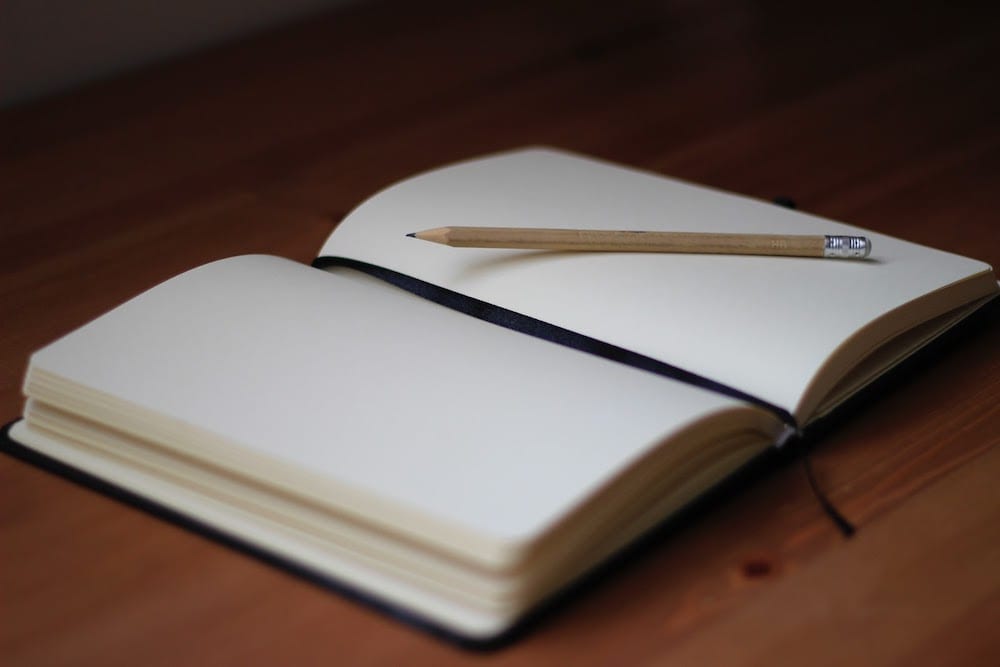
Attending a school with a great MFA in Creative Writing program is essential to receiving the best education. While many schools offer these programs, you will want to be fully prepared for your career as a writer upon graduating, and not every school can promise you will be. Applying to one of the following 11 schools, which are ranked as some of the absolute best for MFA in Creative Writing programs, is a great way to secure your future writing career.
University of Nebraska-Omaha
In Omaha, Nebraska, you can enroll in the University of Nebraska’s MFA in Creative Writing program. Students of this program will complete 60 credit hours of coursework in various genres while focusing on one genre based on the student’s specialization. The program is made up of four 16-week long writing seminars and five 10-day long residency workshops. Both the seminars and the workshops are designed to help prepare you as a writer.
To enroll in this program, applicants will need to provide their official transcripts, a resume, two letters of recommendation, a statement of purpose, and a writing sample that consists of 15 to 40 pages in their genre. As with all MFA programs, you will also need to have completed a Master’s Degree in Creative Writing or a similar subject.
Queens University of Charlotte
The Queens University of Charlotte in Charlotte, North Carolina, offers a low-residency MFA in Creative Writing. This program ensures there are never more than four students per teacher, which helps students get the quality education they need. Students of this program will have opportunities to write for the school’s literary journal or start an internship to help get their work published.
Requirements to apply to this program include submitting a resume, official transcripts, two letters of recommendation, and a 25-page writing portfolio. There is no requirement as to the genre the writing portfolio must be in, though you should focus on the genre you wish to pursue in your career.
Lindenwood University
At Lindenwood University in Saint Charles, Missouri, students can enroll in an MFA in Creative Writing. This program consists of 48 required credit hours that can be completed entirely online or on-campus. For both paths, no residency is required. Students of this program can take courses designed for both creative writers and those interested in journalism and editing. Most of the courses are taught by experienced authors and journalists, giving students a unique perspective.
Many opportunities are available to you at Lindenwood University, including being an editorial assistant for the school’s literary journal. To enroll in this program, you will need to submit a sample of your reactive writing as well as your official transcripts.
National University-San Diego
For those who wish to complete an online master’s degree , National University in San Diego, California, offers a completely online MFA in Creative Writing with no residency required. This program offers online workshops and seminars to provide students with an interactive online learning experience.
Students of this program will be required to complete elective courses. Many of these courses are unique and can help customize your degree, like film and directing courses or literary studies courses.
University of Texas-El Paso
In El Paso, Texas, students can enroll in a unique bilingual MFA in Creative Writing at the University of Texas. In fact, this is the only bilingual MFA program available in the world, providing students with a classroom experience in which English and Spanish coexist. While this program is on-campus, the university also offers an online MFA in Creative Writing program that can be completed from anywhere in the world.
The programs at this university require students to complete 48 credit hours made up of 42 credit hours of workshops and six for thesis work. To enroll, students must provide official undergraduate transcripts, three letters of recommendation, a statement of purpose and either eight to 10 pages of poetry or 20 pages of fictional writing.
Eastern Kentucky University
At the Eastern Kentucky University in Richmond, Kentucky, students can enroll in a low-residency MFA in Creative Writing program that is primarily online. The program requires students to attend at least 12 credit hours of residencies which are available in the winter in Lexington, Kentucky and in the summer in Lisbon, Portugal. Students can choose which residencies to attend, providing freedom of scheduling and the ability to travel.
To apply to the program at Eastern Kentucky University, students will need to provide GRE scores, undergraduate transcripts, a well-written resume , multiple letters of recommendation, and a writing portfolio. Students must also have completed an undergraduate degree with a GPA of 3.0 or higher.
Oregon State University
Oregon State University offers an on-campus MFA in Creative Writing program at its Corvallis, Oregon, location as well as an online MFA in Creative Writing through its campus in Bend, Oregon. This university is known for having many successful graduates from the MFA program and currently has the highest cumulative GPA of any college in the state of Oregon.
These programs consist of many different focuses, from spiritual writing to physical geography writing, and take around two years to complete. After completion, students will be considered for external GTA positions by the school, helping students find employment right away. To enroll, you will need to submit a resume highlighting achievements and awards, a writing portfolio, transcripts, and a statement of objectives.

Bay Path University
Bay Path University in Longmeadow, Massachusetts, offers a fully online MFA in Nonfiction Writing with no required residencies. There is also an option for students to study abroad in Ireland through this program. This is a great option for anyone who is unable to attend residencies and other on-campus activities but still wishes to earn a degree. The program here consists of 39 required credit hours and is designed for students at all levels of their writing careers.
To be accepted into this program, you will need to have maintained a GPA of 3.0 or higher and submit official transcripts with a 250-word essay, 10 pages of writing samples, and two letters of recommendation.
University of Arkansas-Monticello
In Monticello, Arkansas, you can enroll in the University of Arkansas’ non-residency MFA in Creative Writing program. This program consists of 48 required credit hours in one of three genres: poetry, fiction, or creative nonfiction. Students of this program will be able to learn at their own pace, with allowances of anywhere between three and 12 credit hours per semester.
To apply to the University of Arkansas at Monticello’s MFA in Creative Writing, you will need to apply with official transcripts showing a GPA of 3.0 or higher, a manuscript, a personal essay, a critical writing analysis, and three letters of recommendation.
University of New Orleans
The University of New Orleans in New Orleans, Louisiana, offers both online and on-campus versions of their MFA in Creative Writing program. Both programs take students around three years to complete and allow for focuses in poetry, fiction, or creative nonfiction. Students of these programs will also have the opportunity to study abroad in Ireland or Italy over the summers.

"Career Karma entered my life when I needed it most and quickly helped me match with a bootcamp. Two months after graduating, I found my dream job that aligned with my values and goals in life!"
Venus, Software Engineer at Rockbot
To enroll in one of these programs, students need to apply with GRE scores, official transcripts, and other documentation such as a resume and writing portfolio. Students do need to maintain at least a B in all classes to stay in the program once accepted.
Emerson College
In Boston, Massachusetts, you can attend Emerson College and enroll in its MFA in Popular Fiction Writing. This program is taught by award-winning faculty members and offers a concentration in all sorts of genres. Some of the more popular choices include mystery, horror, and young adult writing. The program requires students to complete 36 credit hours, 16 of which are workshops and four of which must be spent on a thesis.
Emerson College focuses on teaching students that writing is both a professional career and a form of art. They strive to help students learn about the history of their chosen genre, and help them to develop their own unique voice as a writer.
Creative writing is a great way to express yourself and your own interests in a way that benefits your career. Whether you wish to be a fiction writer, poet, or journalist, creative writing is a great skill to have. Being able to write unique works ensures an interested audience, which helps you become more successful.
While it is possible to land creative jobs without a degree , earning an MFA in Creative Writing is one of the best ways to turn your passion into a career. With plenty of job opportunities and a societal demand for constant entertainment, you are sure to make a decent living.
Attending one of the best 11 schools listed above is the best way to make sure your education is tailored to your needs. With options for online and on-campus degrees, you can’t go wrong with any of the best MFA in Creative Writing programs mentioned above.
About us: Career Karma is a platform designed to help job seekers find, research, and connect with job training programs to advance their careers. Learn about the CK publication .
What's Next?
Get matched with top bootcamps
Ask a question to our community, take our careers quiz.
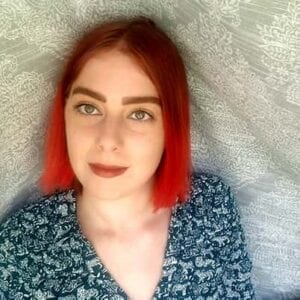
Leave a Reply Cancel reply
Your email address will not be published. Required fields are marked *

2024 Best Master of Fine Arts in Creative Writing Programs [MFA Degree Guide]
The best MFA in Creative Writing programs will give you opportunities to practice your writing skills, grow your confidence, and get ready for professional work.

If you’re ready to take your writing abilities to the next level and learn from top professors, then it’s time to check out what a Master of Fine Arts program has to offer.
Editorial Listing ShortCode:
This type of graduate program is also available online, so you may be able to earn a valuable writing degree on a schedule that works for you.
Best MFA in Creative Writing Programs Online
Methodology: The following school list is in alphabetical order. To be included, a college or university must be regionally accredited and offer degree programs online or in a hybrid format.
Antioch University
Antioch University offers a low-residency program for an MFA in Creative Writing. It provides a flexible learning environment in which students can attend mostly online but have opportunities to attend seminars and workshops on campus. Students can receive faculty mentorship and participate in online class discussions.
Antioch University is accredited by the Higher Learning Commission.
Bay Path University
Bay Path University offers an MFA in Creative Nonfiction Writing. The program is fully online, with no residency requirements. An optional creative writing seminar is held in the summer in Ireland. Students in the program are part of an inclusive community and can receive faculty mentorship and feedback from small peer groups.
Bay Path University is accredited by the New England Commission of Higher Education.
Concordia University – St. Paul
Concordia University—St. Paul offers a Master of Fine Arts in Creative Writing. This 36 credit degree program can be completed 100% online. It typically takes 2 years to finish and includes workshops and a supervised thesis. The curriculum consists of courses such as Advanced Workshop I and II, Studies in the Craft of Creative Writing, and Studies in the Contemporary Novel.
Concordia University – St. Paul is accredited by the Higher Learning Commission.
Drexel University
Drexel University offers a low-residency program for a Master of Fine Arts in Creative Writing. This 2 year program provides the flexibility of online coursework with occasional workshops and networking opportunities on campus. Students can also participate in optional in-person teaching assistantships. Drexel uses a quarterly academic calendar with classes that are 10 weeks long.
Drexel University is accredited by the Middle States Commission on Higher Education.
Eastern Oregon University
Eastern Oregon University offers a Master of Fine Arts in Creative Writing that can be earned online. The program requires the completion of 60 credit hours, which can typically be done in 2 years. Students in the program collaborate with a cohort to gain hands-on experience. The program also offers an optional emphasis in Young Adult Writing.
Eastern Oregon University is accredited by the Northwest Commission on Colleges and Universities.
Liberty University
Liberty University offers a Master of Fine Arts in Creative Writing that can be earned 100% online. The program consists of 48 credit hours of 8 week courses and usually takes 2 years to complete. The curriculum consists of courses such as Writing as Cultural Engagement, Contemporary Literature, and Writing Fiction. Students in the program must also participate in workshops and complete a thesis.
Liberty University is accredited by the Southern Association of Colleges and Schools Commission on Colleges.
Lindenwood University
Lindenwood University offers an online program for an MFA in Writing. It offers concentration options in Poetry, Fiction, and Creative Nonfiction. It requires the completion of 48 credit hours of coursework, which can typically be done in 2 years. While the degree can be completed entirely online, some courses may be taken in person if preferred.
Lindenwood is accredited by the Higher Learning Commission.
Mississippi University for Women
Mississippi University for Women offers a low-residency, 48 credit program for a Master of Fine Arts in Creative Writing that can typically be completed in 2 to 3 years. Class sizes are small, and students in the program can receive one-on-one advising and mentorship. Students can attend the program full-time or part-time. GRE scores are not needed to apply.
Mississippi University for Women is accredited by the Southern Association of Colleges and Schools Commission on Colleges.
Southern New Hampshire University
Southern New Hampshire University offers a 100% online program for an MFA in Creative Writing that is intended for writers of all fiction genres. Classes have no set meeting times, so students can study entirely according to their own schedules. The program still offers opportunities to engage with a community online, including SNHU’s Creative Writing Review Club.
Southern New Hampshire University is accredited by the New England Commission of Higher Education, Inc.
University of Arkansas – Monticello
The University of Arkansas—Monticello offers a non-residency program for a Master of Fine Arts in Creative Writing. The program requires the completion of 48 credit hours and offers opportunities to study fiction, poetry, or creative nonfiction. Students may take anywhere from 3 to 12 credit hours of coursework each academic term.
The University of Arkansas – Monticello is accredited by the Higher Learning Commission.
University of Houston – Victoria
The University of Houston offers a Master of Fine Arts in Creative Writing. The degree can be earned online or on campus, with both programs following a traditional academic calendar. To earn the degree, students must complete 36 credit hours, including a thesis. Applicants are asked to provide a creative writing sample that is 20 to 30 pages long.
UHV is accredited by the Southern Association of Colleges and Schools Commission on Colleges.
University of Nebraska – Omaha
The University of Nebraska—Omaha offers a Master of Fine Arts in Writing. Students in the program take online classes for four 16 week semesters and come to campus for five 10 day residencies. Concentration options are available in Fiction, Creative Nonfiction, Poetry, Young Adult, Playwriting, and Screenwriting.
UNO is accredited by the Higher Learning Commission.
University of New Orleans
The University of New Orleans offers an online program for a Creative Writing MFA. Online students are part of a community and have the option to attend summer residencies in person. The degree requires the completion of 45 credit hours and can typically be completed in 5 semesters of full-time study. New students may begin in either the fall or spring semester.
The University of New Orleans is accredited by the Southern Association of Colleges and Schools Commission on Colleges.
University of Texas – El Paso
The University of Texas—El Paso offers a Master of Fine Arts in Creative Writing that can be earned 100% online. Residency opportunities are available but optional. The program requires the completion of 48 credit hours, including a thesis. The curriculum consists of courses such as Forms and Techniques of Fiction, Narrative Theory and Poetics, and Forms and Techniques of Poetry.
The University of Texas at El Paso is accredited by the Southern Association of Colleges and Schools Commission on Colleges.
Wilkes University
Wilkes University offers an MFA in Creative Writing. The program requires the completion of a thesis that is read and reviewed by a professional agent or editor. The curriculum consists of courses such as Foundations of Creative Writing, Writing Fiction, and Genre and Context in Poetry.
Wilkes University is accredited by the Middle States Commission on Higher Education.

Masters in creative writing programs are for people who are serious about honing their craft and becoming accomplished writers. If you want to make the most of your natural writing skills, then a Master of Fine Arts in Creative Writing might be right for you.
In a creative writing program, you will, of course, do plenty of writing. You may experiment with many different genres during your time in school. Your writing courses may cover:
- Dystopian novels
- Middle grade chapter books
- Narrative poems
- Romance stories
- Science fiction
- Short stories
- Young adult fiction
Not surprisingly, you’ll spend a lot of time writing during this program! A Master of Fine Arts is focused on helping you excel at your craft. The more you practice—and the more you have your work evaluated by professors and classmates—the more you may improve.
While you can count on having many writing workshops, there will probably be some other classes, too. For example, you might learn skills related to marketing, editing, and teaching. Those types of classes could be useful for expanding your professional opportunities.
In fact, some schools offer specific tracks to expand your career readiness. In addition to the MFA, you might graduate with a certificate in a discipline such as writing instruction or copywriting. At some colleges, graduating with an MFA requires a thesis project.
The thesis might be an extensive creative writing project—perhaps a whole novel! By graduation, your thesis manuscript might be nearly ready for publication. If so, you might be able to start shopping for a publisher soon after school.
In addition to helping you get started as an author, you may have other career paths available to you after graduation. Some options might include working as an editor or an agent. Graduates may go on to teach writing to others, work as a journalist, or head up creative projects as an art director. Marketing or advertising roles might draw on your writing skills as well.
Creative Writing Careers & Salaries

If you’re thinking about getting a master in creative writing online, you probably love to write. Perhaps you have dreams of becoming a published poet or a renowned novelist. A number of graduates work toward such careers with this degree.
Of course, there are other writing jobs you could do, too. Creative writing is useful for developing television scripts and screenplays. This skill could also come in handy for writing informative textbooks that engage young learners. In addition, captivating writing plays a key role in the world of advertising and marketing. Writers produce copy that catches customers’ attention and leads to sales.
In advertising, you would more likely do short-form writing, such as email and social media content. Marketing roles may involve producing longer pieces, such as blog posts. According to the Bureau of Labor Statistics , jobs in media and communications pay a median annual salary of $62,340.
| Marketing Managers | $135,030 |
| Advertising and Promotions Managers | $127,150 |
| Art Directors | $100,890 |
| Agents and Business Managers of Artists, Performers, and Athletes | $78,410 |
| Postsecondary English Language and Literature Teachers | $75,930 |
| Writers and Authors | $69,510 |
| Market Research Analysts and Marketing Specialists | $63,920 |
| Editors | $63,350 |
| High School Teachers | $61,820 |
| News Analysts, Reporters, and Journalists | $48,370 |
Some writers do an assortment of jobs. For example, some might work on their own novels while also producing marketing copy for clients. Some writers pursue journalism careers. Creative writing may come into play when producing content for magazines or newspapers.
As you gain experience in the creative world, you may become qualified for management positions. For example, creative directors or art directors oversee all the artistic elements of a project. That could include text, photos, and layout. Those with an understanding of good writing might make proficient editors for other authors.
Another writing-related career could be to work as a literary agent who connects authors to publishers. Rather than doing a lot of their own writing, some creative writing professionals want to teach others how to write. Positions for creative writing instructors may be available at both the high school and college levels. Most high school teachers need state licensure.
Creative Writing MFA Curriculum & Courses

For a writing MFA, you might be required to complete at least 48 credit hours. The curriculum might include courses similar to the following:
- Creative Writing in Journalism : During your time in this class, you’ll learn how to tell true stories in ways that hook readers.
- Elements of Fiction : Before you dive into creating your own works, it’s helpful to study characters, settings, imagery, points of view, and other aspects of fiction writing.
- Helping Others Write : This class teaches you to be an editor or a book coach who helps other authors develop their stories.
- Marketing and Writing : You could study digital marketing, copywriting, social media content, and branding as you learn to use your skills in the world of marketing.
- Memoirs : You might take a class that prepares you to tell your own story in a creative, engaging way.
- Professional Writing : This course introduces you to different ways that writers can earn a living and helps equip you with skills for those roles.
- Romance Novels : You could study how to develop characters, plots, and other elements for stories centered around love and romance.
- Scriptwriting : In this course, you’ll learn how to transfer your writing skills to stories told through acting and dialogue.
- Short Writing : As you explore writing forms like articles and short stories, you may also practice submitting these types of works to literary journals.
- Writing for Young Readers : You may study the young adult genre and try your hand at writing pieces for teen readers.
In creative writing master’s programs, you are often able to select many electives so that you can focus on the types of writing that interest you most.
Admissions Requirements

Creative writing programs evaluate potential students on their academic skills and writing abilities. To get into grad school, you might be required to turn in:
- Application form and a processing fee
- GRE score (not needed at all grad schools)
- Sample that showcases your creative writing abilities
- Personal statement about your goals or experiences
- Transcripts from previous college programs—may need a minimum GPA
Admission requirements vary among different colleges. Some schools may also ask for interviews, personal references, or resumes.
Creative Writing Masters Programs Accreditation
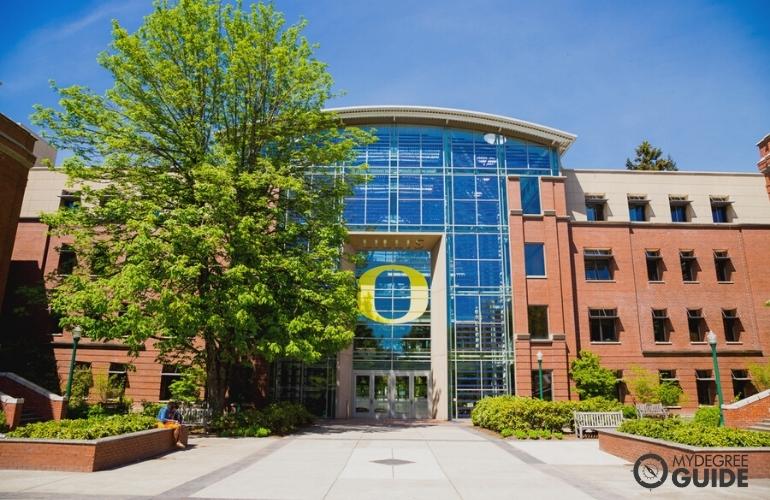
Choosing a regionally accredited college for your creative writing graduate program is a beneficial decision. Regional accreditation is a mark of quality that can serve you well during school and beyond. Students must attend accredited schools to receive federal financial aid. Regional accreditation may also determine whether you’ll be able to transfer your credits from one school to another.
A master’s degree from a regionally accredited school may help you get into a PhD program someday as well. Plus, when you start applying for jobs, a graduate degree from a regionally accredited school may increase your marketability.
Financial Aid and Scholarships
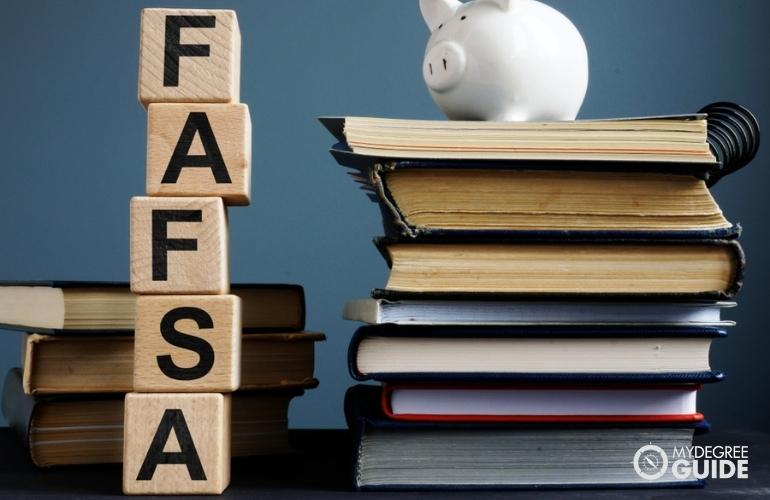
Paying for a graduate degree may seem daunting at first, but financial aid can make a difference for students who qualify.
As you consider going back to school, you may want to fill out the Free Application for Federal Student Aid (FAFSA) . Depending on the income level entered on that form, you may qualify for various types of government student aid.
Financial assistance for graduate students is usually given in the form of loans, though select students might qualify for grant money. Both state and federal assistance programs may be available to you. Scholarships are another source of funding for many students. You can apply for a variety of scholarships from groups like professional associations and community organizations.
Many colleges give scholarships directly as well. Sometimes, employers contribute to college costs for their team members. If you’re currently working, you might be able to learn more about this benefit from your human resources department.
What Is a Creative Writing Masters Degree?

A creative writing masters degree is graduate program for people who are serious about pursuing writing as a career. The curriculum for a Master of Fine Arts in Creative Writing usually includes many writing workshops. Those are classes in which you’ll intensely practice and refine your writing skills. They may cover a variety of genres.
Other courses for this program may discuss editing and publishing. You could study literature and literary analysis, too. Some programs include courses about how to teach writing to others. An MFA is considered a terminal degree in this field.
What Can You Do with an MFA in Creative Writing?

Having a master’s degree in creative writing could help writers launch their careers as professional novelists, poets, playwrights, or screenwriters. Some graduates might also help other writers as an editor or an agent.
Your creative abilities could also be useful for helping businesses sell products. The Bureau of Labor Statistics states that most advertising and promotions managers make at least $61,250 annually. Marketing managers tend to earn more.
Some creative writers become teachers who inspire others to write well. Depending on your credentials, you might be able to teach high schoolers or college students.
How Long Does It Take to Get a Master’s in Creative Writing Online?

It generally takes 1 to 2 years to complete MFA programs online. Some programs require about 48 credit hours, but others may be shorter. In general, you can expect to spend at least two to four semesters enrolled in the program. Colleges with year-round classes may allow you to finish a bit more quickly.
For some programs, you’ll be required to write a complete novel before graduation. You’ll work on that project throughout several college terms. Even if you are a dedicated, diligent student, this project will take time, and it’s best not to be rushed.
What Jobs Can I Get with a Master of Creative Writing Online Degree?

Much like an online professional writing degree , some people become writers or authors with a masters in creative writing degree. Some self-publish their works, and others are able to connect with publishing companies that are eager to work with them.
Journalism is another line of work for graduates to consider. Creative writing talents are important for engaging readers, especially when it comes to the features sections of magazines and newspapers. Editors need to have writing skills, too. Instead of writing their own works, some MFA holders help other novelists refine their stories.
Others use their writing know-how to identify new talent. They work as literary agents that help bring writers’ stories to publication.
What’s the Difference Between MA vs. MFA in Creative Writing Degrees Online?
For your graduate degree, you could pursue a Master of Arts (MA) or a Master of Fine Arts (MFA) in Creative Writing.
While you might be able to finish an MA program more quickly, you might be able to leave an MFA program with a finished manuscript.
Is an MFA in Creative Writing Worth It?

Yes, an MFA in Creative Writing is worth it for many students. Writing is a dream and a passion for many people. Going to college and having professionals guide you through the process of producing a manuscript can be invaluable.
Your college experience may lead to more writing opportunities as well. According to the Bureau of Labor Statistics, the number of positions for writers and authors will grow by about 4% over the next ten years. That’s in line with the national average for job growth.
Getting Your Masters in Creative Writing Online

If you’re serious about your writing career, then you may want to enroll in one of the top creative writing MFA programs.
In a graduate program, you can hone your writing skills and get feedback from experienced professors. You might graduate with the skill and confidence to keep pursuing your craft. Online coursework is possible for this degree. You can take creative writing classes online and interact virtually with faculty members and other students. Online degree in English in creative writing programs from accredited schools are thorough, reputable, and effective.
Now is the time to explore credible programs and start thinking about where you’d like to earn your accredited online creative writing degree .

Creative Writing Master of Fine Arts Degree
You are here: american university college of arts & sciences literature master of fine arts in creative writing.
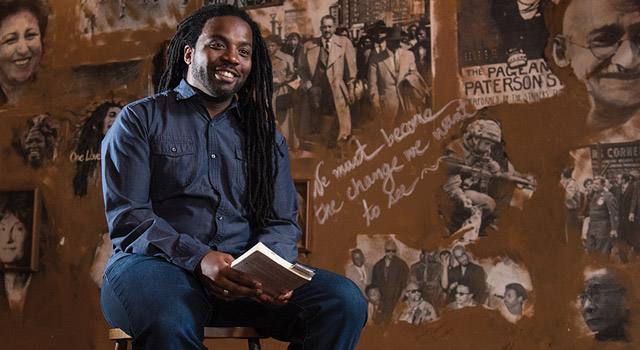
- Request Info
Are you interested in…
Explore more.
Are you interested in...
202-885-2971
Battelle Tompkins, Room 237 on a map
Back to top
Hone Your Craft in the Capital City
For more than 30 years, writers have come to American University to develop their work and exchange ideas in the District’s only creative writing MFA program. Our graduate workshops provide a rigorous yet supportive environment where students explore a range of approaches to the art and craft of fiction, nonfiction, and poetry.
As an MFA student at American, you are free to pursue a single genre or explore several. You will acquire a deeper understanding of your own work and hone your skills in a collaborative setting.
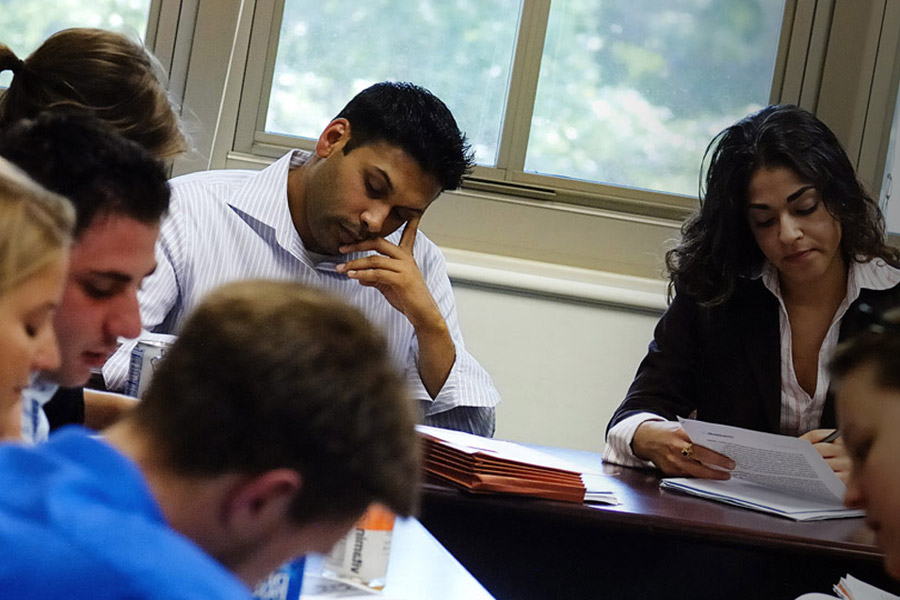
A Program of Study That Gets Results
This two-year, 36-credit-hour MFA program integrates writing, literary journalism, translation, and the study of literature to prepare students for a range of career possibilities. Write, give feedback, and receive guidance from a close-knit community of respectful peers and faculty. In the MFA program, you'll find lawyers, military veterans, musicians, teachers, and business executives who are passionate about the written word.
Connect with accomplished professors and the resources you need to reach your goal. Our faculty members have been featured in a variety of media and publications including the New Yorker , the New York Times , National Public Radio, Bill Moyers & Co., and the Washington Post.
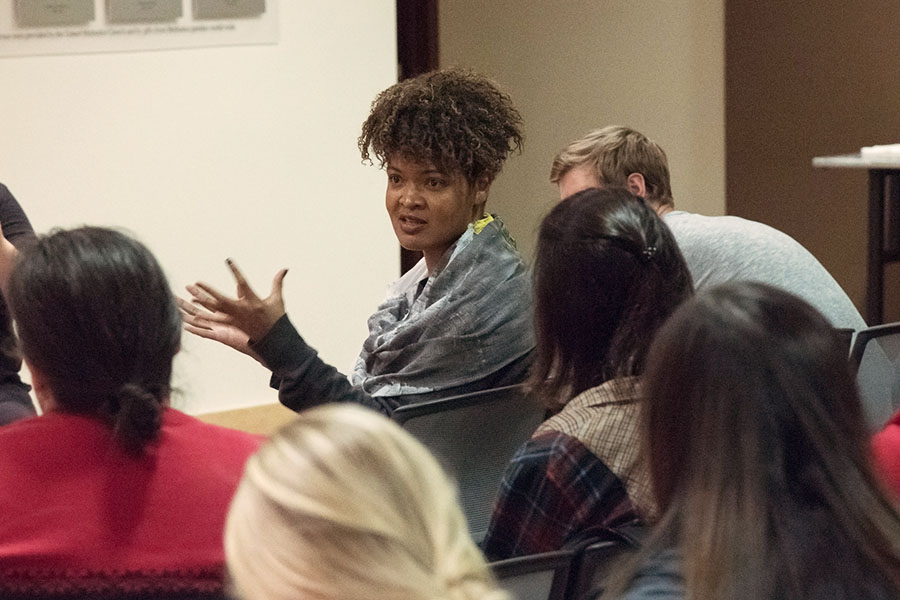
Prominent Authors Dedicated to Your Success
Our faculty of award-winning poets, novelists, translators, and nonfiction writers will help you help you hone your craft and pursue your career as a writer. You will receive instruction and guidance from successful authors published by university presses and major publishers, including Houghton Mifflin, Scribner, Vintage Books, Viking Press, and WW Norton. Our active and engaged faculty members are regularly featured in top media outlets such as The New York Times, New Yorker, Washington Post, Chicago Tribune, and New Republic ; in literary journals like Kenyon Review, Ploughshares, and Shenandoah ; and on television and radio.
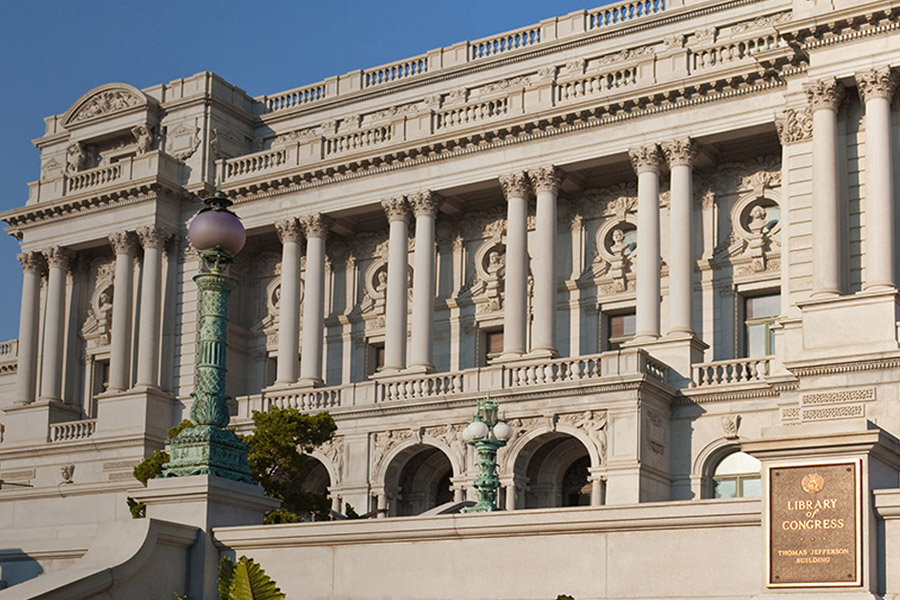
A City For Writers
Living and learning in the nation's capital provides numerous benefits for MFA students. We partner with organizations like the National Endowment for the Arts, Library of Congress, 826DC, Writopia Labs, and Folger Shakespeare Library to facilitate opportunities for our students.
Our students have recently published books with WW Norton, Copper Canyon, University of Wisconsin Press, and MIT Press. They have been featured on This American Life , Poets & Writers , in Creative Nonfiction , Psychology Today , and more.
We Know Success
97% of graduates are employed, in grad school, or both 6 months after graduation.
Our alumni have gone on to work for organizations including:
- Catalogue for Philanthropy: Greater Washington
- EEO ClassIn
- Fulbright Association
- Goodwin University
- PEN/Faulkner Foundation
- Shout Mouse Press
- Street Sense Media
- The Building People
- W. W. Norton & Company, Inc
Publications
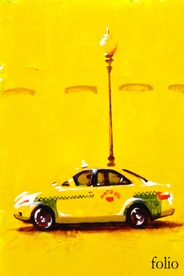
Folio is a nationally recognized literary journal sponsored by the College of Arts and Sciences at American University in Washington, DC. Since 1984, we have published original creative work by both new and established authors. Past issues have included work by Michael Reid Busk, Billy Collins, William Stafford, and Bruce Weigl, and interviews with Michael Cunningham, Charles Baxter, Amy Bloom, Ann Beattie, and Walter Kirn. We look for well-crafted poetry and prose that is bold and memorable.
News & Notes
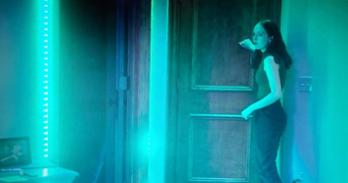
Bringing Child Predators to Justice: The Work of Poet Jordan Pérez
Recent award-winning publications by our MFA alumni :
- Valzhyna Mort won the 2021 International Griffin Prize for her third poetry collection, Music for the Dead and Resurrected (FSG, 2020), which was named one of the best poetry books of 2020 by The New York Times.
- Field Study by Chet’la Sebree won the 2020 Academy of American Poets James Laughlin Award; Mistress won the 2018 New Issues Poetry Prize.
- "The Niece" by Yohanca Delgado was selected for the Distinguished Stories list in Best American Short Stories 2020 .
- Trouble Sleeping by Abdul Ali won the 2014 New Issues Poetry Prize.
- Daydreamers by Jonathan Harper was named a Kirkus Indie Books of the Month Selection.
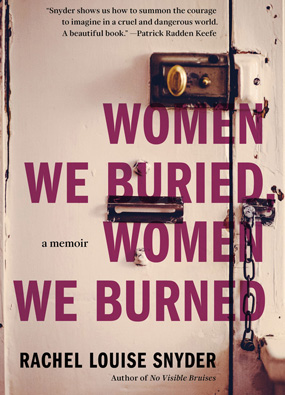
Rachel Louise Snyder recounts how her mother’s death left her unmoored and untoward in her new memoir .
Kyle Dargan served as editor for The Memory Librarian: And Other Stories of Dirty Computer with Janelle Monáe.
Dolen Perkins-Valdez (Literature) won the 2023 NAACP Image Award for fiction for her most recent novel, Take My Hand .
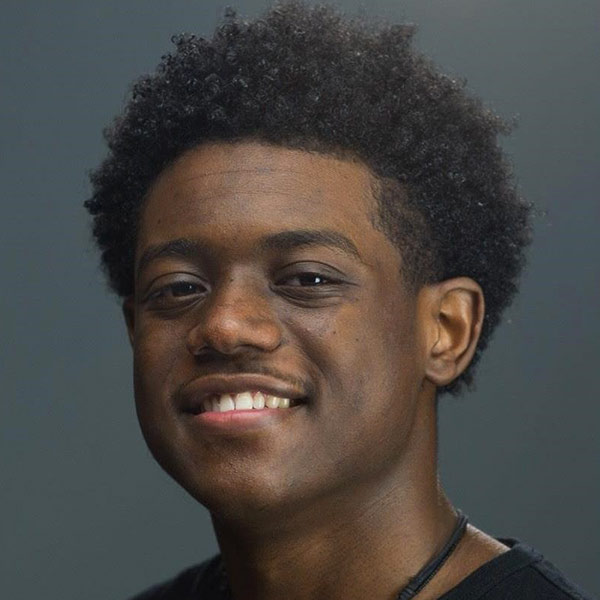
Ralvell Rogers MFA, Creative Writing
More about ralvell.
MFA Creative Writing candidate Ralvell Rogers is making his mark on the literary world.
My time at AU has been brilliant in the fact that I've already learned much about what it means to be a Writer with a capital "W" and more importantly, a literary scholar. Though there is an obvious focus on our course work, it's been made clear to me that our work isn't exactly all that matters in the classroom. We are continuously connecting our work in class to the lives that we live on a daily basis and the world that we all live in, and I think that is very important for writers and entrepreneurs in the publishing sector because we are essentially the historians of our respective generations.
He is the author of The Kansas City Boys Choir: Providing Hope for Tomorrow , which has been endorsed by luminaries Kevin Powell, G.S. Griffin, and Congressman Emanual Cleaver II. Ralvell has also established his own publishing company, Ambitious Stories, LLC, out of Kansas City, MO. He founded it earlier this year to focus on "often unheard, yet riveting and inspiring stories from the heart."
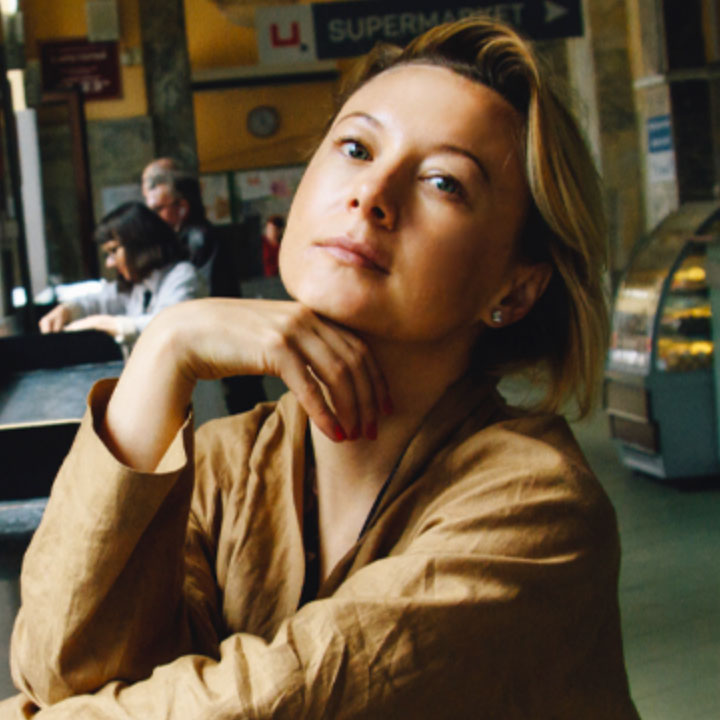
Valzhyna Mort MFA Creative Writing
More about valzhyna.
Alumna Valzhyna Mort has gained international acclaim for her third poetry collection, Music for the Dead and Resurrected (FSG, 2020), which won the 2021 International Griffin Prize and was named one of the best poetry books of 2020 by the New York Times . Publishers Weekly called this work in their starred review, "poems of reclamation and resurrection; to live in them is to confront the hard work of witness." The New Yorker wrote in its review, "Memory, metaphor, and myth intermingle to sometimes nightmarish effect in this collection by a Belarus-born poet. Mort excavates the individual and communal traumas wrought by a violent and repressive national history, and calls herself 'a test-child exposed to the burning reactor of my grandmother’s memory.'" Mort teaches poetry, literature, and translation at Cornell University.
Look inside the Creative Writing MFA
For more than 40 years, writers have come to American University to develop their work and exchange ideas in the District’s only creative writing MFA program.
Frequently Asked Questions
What is the application deadline for a merit award.
The application deadline is February 1. All applications are automatically considered for merit awards. After February 1, the program continues to consider applications, but cannot guarantee those applicants will be considered for merit awards.
What is the MFA thesis?
The required MFA thesis consists of an original, book-length manuscript. It may be a novel, a novella, a memoir or collection of stories, creative nonfiction, or poems. The thesis is due approximately a month before the end of the student's final semester.
How long does it take to earn the MFA degree at American University?
Most students complete the 36-credit degree in 2 years. Full-time study is 9 credits (3 classes) per semester. Others pursue their degree part-time, taking 1-2 classes per semester as best fits their schedules. All workshops, and many literature courses, are offered at night, so that students with full-time jobs can still complete their coursework.
What does the admissions committee look for in an applicant's writing sample?
The committee regards the writing sample as the most important part of the application. It's therefore important that you pay close attention to the manuscript guidelines (see below). Send what you feel is your strongest work that shows your demonstrated talent. It is not important to the committee whether or not work has been previously published.
Those submitting applications in poetry should send no more than 12 poems or 15 pages (with no more than one new or continuing poem per page). If submitting fiction/nonfiction, please submit 15-25 pages. While the catalog calls for a 25-page writing sample, we value quality over quantity. We are interested in seeing only your very best work, which can consist of one or more stories or works of creative nonfiction or an excerpt from a novel. If you send an excerpt from a novel, please include a brief description of the work as a whole.
Still have questions? Email [email protected] .
Please send me information about Master of Fine Arts in Creative Writing
It looks like you already used that name and address to request information for one or more AU graduate program(s).
If you have not previously requested AU graduate program information, create a new request
Creative Writing Program
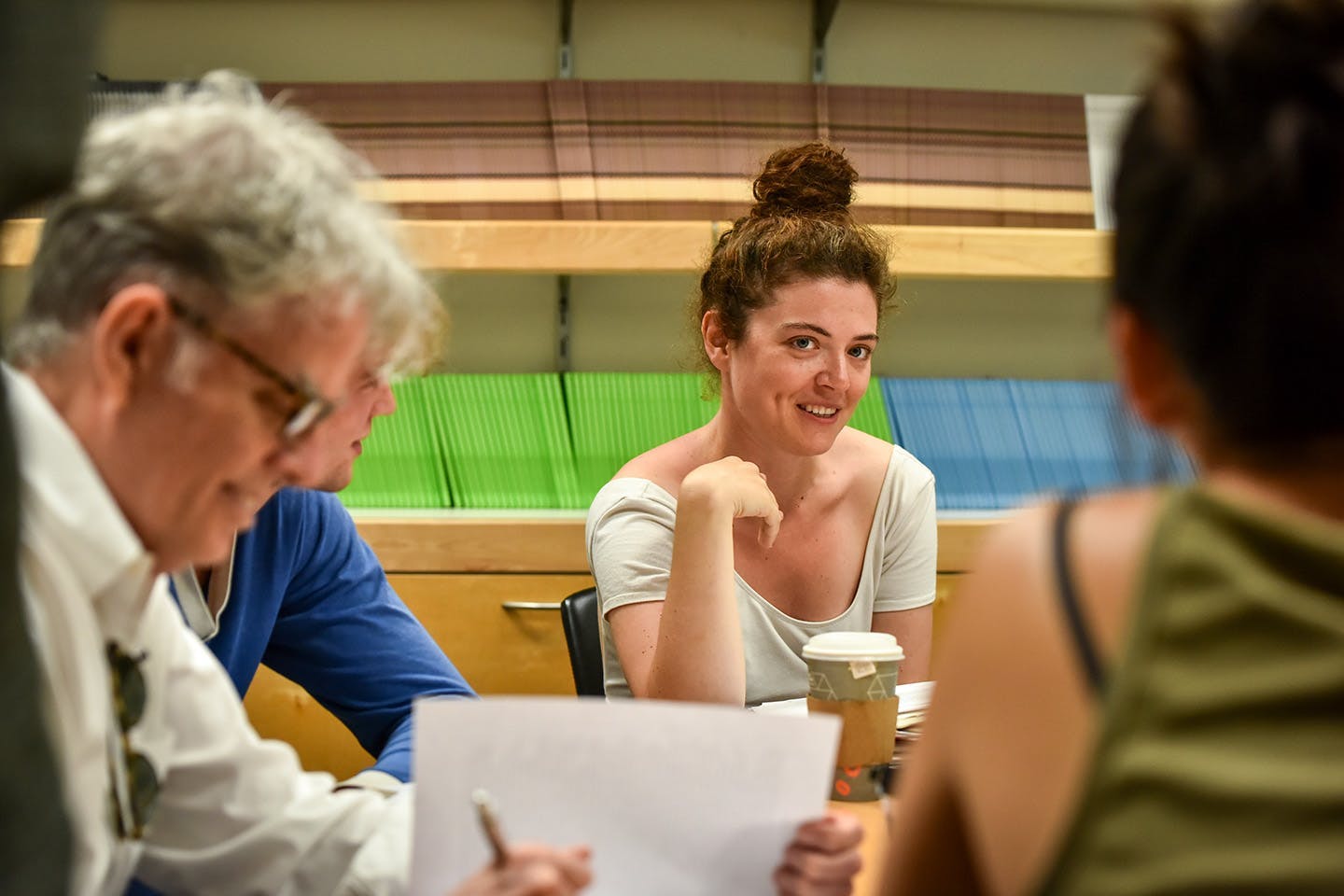
The New School invites you to join a community of diverse writers, become part of New York City’s publishing world, and build a network of support on campus and beyond. Our prestigious MFA Creative Writing program is designed to help you develop your writing in supportive workshops and literature seminars led by an internationally recognized faculty and renowned authors.
books published annually by alumni and faculty
annual writing events, including the National Book Awards Finalist Reading
of admitted MFA students awarded merit-based university scholarships (2020–2021)
MFA in Creative Writing
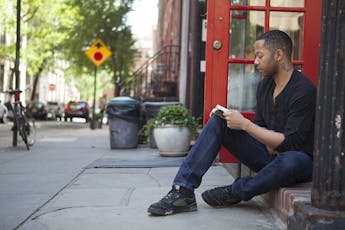
As an MFA student at The New School, you can choose your concentration—in Arts Writing, Fiction, Nonfiction, Poetry, or Writing for Children and Young Adults—and receive personalized faculty mentorship and faculty and peer critiques. Innovative courses in publishing and multimedia storytelling engage you in the development of literature. Popular graduate minors include Impact Entrepreneurship and Transmedia and Digital Storytelling . Or you can apply to WriteOn NYC! , a New School–funded fellowship program providing MFA students with high-quality teaching experience in area middle schools and high schools. All students benefit from evening classes and events, which enable them to work or attend responsibilities during the day while enrolled in a full-time program.
Related Programs
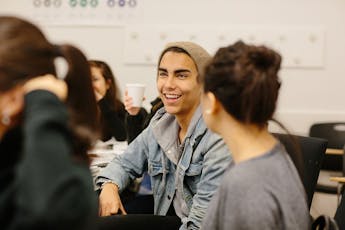
In addition to the renowned MFA in Creative Writing, The New School offers other programs and opportunities for writing students. These include noncredit courses and summer intensives, as well as an undergraduate major in the Bachelor’s Program for Adults and Transfer Students, the Writing and Democracy Honors Program, and undergraduate minors in related fields. Summer Writing Intensive Continuing Education Courses Writing & Democracy Honors Program BA in Creative Writing Undergraduate Creative Writing Courses
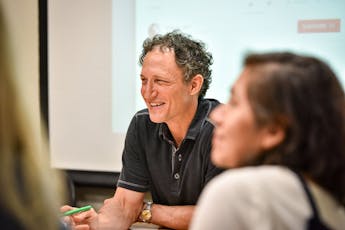
- Meet our faculty
The Writer’s Life in NYC

Creative Writing students come to The New School from across the United States and around the world to live the writer's life in New York City. Evenings with agents and editors, offered exclusively for MFA students, provide informal opportunities to meet publishing professionals.
The New School Bookshelf
We are proud to feature books recently published by The New School's Creative Writing community.
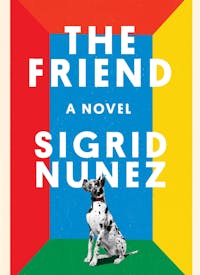
Sigrid Nunez, Faculty
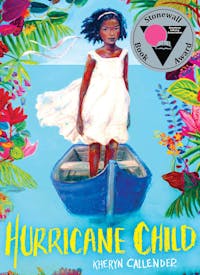
Hurricane Child
Kacen callender, mfa '14.
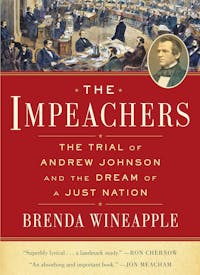
The Impeachers
Brenda wineapple, faculty.
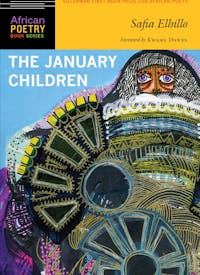
The January Children
Safia elhillo, mfa '15.
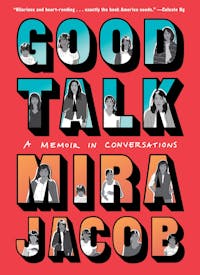
Mira Jacob, Faculty and MFA '01
Events & news.
- Bob McKinnon, Parsons Faculty Member, Debuts New Children’s Book
- The Vera List Center for Art and Politics Presents New School New Books Event Series
- Adrian Madlener, History of Design and Curatorial Studies ’18, Explores Design Through Writing and Research
- The Vera List Center for Art and Politics Hosts Reading Room Featuring Faculty Books
- Richard Barone, School of Jazz and Contemporary Music Faculty Member, Debuts New Book about Music Scene in 1960’s Greenwich Village
- New Faculty Achievements from Across The New School Include Fellowships, Grants, and More
Take The Next Step
- Request Info
Submit your application
Undergraduates.
To apply to any of our undergraduate programs (except the Bachelor's Program for Adults and Transfer Students and Parsons Associate of Applied Science programs) complete and submit the Common App online.
Undergraduate Adult Learners
To apply to any of our Bachelor's Program for Adults and Transfer Students and Parsons Associate of Applied Science programs, complete and submit the New School Online Application.
To apply to any of our Master's, Doctoral, Professional Studies Diploma, and Graduate Certificate programs, complete and submit the New School Online Application.

Online Students
For All Online Programs
International Students
On Campus, need or have Visa
Campus Students
For All Campus Programs
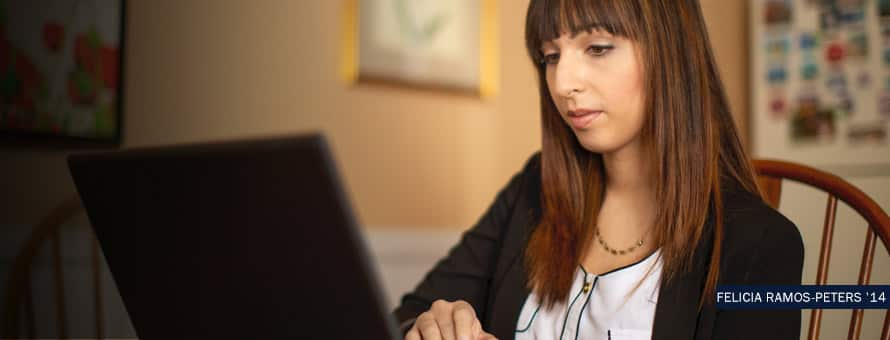
Online MFA in Creative Writing Master of Fine Arts
Earn an MFA in Creative Writing Online
- $637/credit (48 credits total)
- Transfer up to 12 graduate credits
- 100% online – no residency required
- Four fiction genres to choose from
- Career-focused certificate included
- No application fee or GRE/GMAT scores required
Online MFA in Creative Writing Program Overview
Share your story with the world and let the power of storytelling take your career to new heights with an online Master of Fine Arts (MFA) in Creative Writing . As one of the only programs available that encourages a focus on genre fiction, our online MFA lets you hone your craft in an area specific to your strengths and interests. You'll also learn about the business side of creative writing, preparing you to market your work in the real world.
While most MFA programs require a residency, Southern New Hampshire University's online MFA in Creative Writing can be completed entirely online, with no travel necessary.
“Traditional MFA programs, whether full-time or low residency, are out of reach for many writers,” said Paul Witcover , associate dean of creative writing. “The SNHU online MFA was designed to make the MFA experience accessible to all fiction writers, opening the door to diverse voices excluded for too long from the literary conversation. Our program is dedicated to giving writers the tools to succeed on the page and beyond it.”
Graduates leave the program with a completed and revised novel in one of our four offered genres: Contemporary, Young Adult, Romance and Speculative. With the included certificates in either online teaching of writing or professional writing , you'll have the skills to support your writing career, no matter where it takes you.
.st0{fill:#21386D;} What You'll Learn
- The business and technical sides of professional writing
- How to navigate the publishing ecosystem, identify agents and editors, and market your work to appeal to decision-makers
- Using social media to gain a following and build your brand
- How to teach writing in a classroom setting
.cls-1 { fill: #21386d; } How You'll Learn
At SNHU, you'll get support from day 1 to graduation and beyond. And with no set class times, 24/7 access to the online classroom and helpful learning resources along the way, you'll have everything you need to reach your goals.

The Value of an Online MFA
Emily Jones ’20 embraced a transformational experience through the online MFA in Creative Writing program, which supported her in taking her writing career to the next level. “I can now say, without even a hint of imposter syndrome, that I am a writer,” said Jones. “And that is because of Southern New Hampshire University.”
Career Outlook
According to the U.S. Bureau of Labor Statistics, writers and authors made a median annual salary of $69,510 in 2021, while editors made $63,350. 1
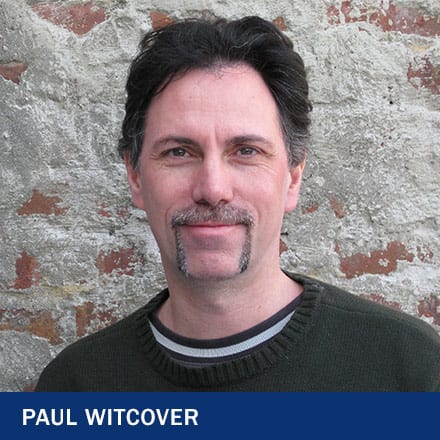
“Our mission is to give students a degree and associated practical skills they can use to forge successful pathways in academia, business, or by blazing their own career trail,” said Paul Witcover , associate dean of creative writing.
Earning one of the included certificates in online teaching of writing or professional writing will also be an invaluable addition to your resume for part-time, full-time and freelance jobs in a variety of fields, including:
- Higher education. Instruct writing courses in higher education settings. In 2021, postsecondary teachers made a median annual wage of $79,640, and you can expect to see a 12% growth in available positions through 2031, according to the BLS. 1
- Advertising. Use your storytelling skills in a way that influences consumer action. As a copywriter, you could find yourself doing any number of writing projects from crafting emails and ads to writing entire commercials.
- Marketing. If you're more comfortable with long-form prose, many businesses have invested in content writers who create quality content such as blog posts, ebooks and podcasts to attract and retain customers.
- Entertainment. Good at building suspense or setting up punchlines? From movies and plays to comedy and podcasts, being a good storyteller and writer is important to finding success in the entertainment industry.
- History. Every person's life has a plot, but it takes writers like you to tell their stories in a compelling way. Help readers relive the experiences of historic figures and pop culture icons as a biographer.
Higher Education
Instruct writing courses in higher education at a college or university, either in-person or online.
Advertising
Influence consumer action through copywriting, from print ads to digital advertising and broadcast commercials.
Create written content such as blog posts, ebooks and podcasts to attract and retain customers.
Entertainment
From movies and plays to comedy and podcasts, writers often find success in the entertainment industry.
The U.S. Bureau of Labor Statistics (BLS) predicts favorable job growth in postsecondary education. And while statistics are not available for all job settings mentioned above, the BLS reports the following:
.cls-1 { fill: #21386d; } Job Growth
The BLS predicts an 8% growth in available postsecondary teaching positions through 2032. 1
.cls-1 { fill: #21386d; } Potential Salary
Writers and authors made a median annual salary of $73,150 in 2022, while editors made $73,080 and postsecondary teachers made $80,840. 1
Understanding the Numbers When reviewing job growth and salary information, it’s important to remember that actual numbers can vary due to many different factors — like years of experience in the role, industry of employment, geographic location, worker skill and economic conditions. Cited projections do not guarantee actual salary or job growth.
Start Your Journey Toward an Online MFA in Creative Writing
If you're looking to earn your Master of Fine Arts online, you've found the right program. Even though there are no residency requirements, you'll still interact frequently with other students and faculty members in asynchronous discussions, critique workshops and within our online writer’s community, where students come together to share industry news, extend writing tips and develop critique partnerships.
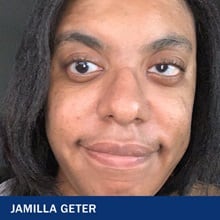
"I liked MFA-514 (Advanced Studies in Genre Literature) best," said student Jamilla Geter . "It was a great look into the different genres. It really helped me narrow down what genre I wanted to write in."
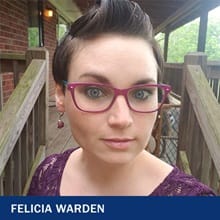
"Though it was not writing exactly, its connection to it – especially in our digital world – was made clear almost immediately," she said. "Writing is not just providing content of value to your readers, but also creating avenues of access so those readers can find your content. This course helped me to understand that and to learn how I can create those avenues."
Besides allowing you to focus on your own creative interests, part of our 48-credit online MFA curriculum requires you to choose from 2 certificate offerings designed to round out your education and better prepare you for a multitude of writing-related careers.
The first choice is a Graduate Certificate in Online Teaching of Writing , which is tailored to those who see themselves teaching in an online classroom setting as a supplement to their writing careers. Students practice approaches to editing and coaching, learning how to establish a virtual instructor presence and cultivate methods for supporting and engaging students within online writing communities.
Learn more about the online teaching of writing graduate certificate .
Students can also choose the Graduate Certificate in Professional Writing , which highlights the technical and business opportunities available to writers. Students will develop a range of skills, such as copywriting, social media, marketing principles and/or content generation, learning many of the freelancing skills integral to today’s project-driven economy.
Learn more about the professional writing graduate certificate .
All of our courses are taught by accomplished authors and industry professionals who know both the craft and business of creative writing. They will work closely with you to develop both your creative and professional skill set.
"All instructors within my program were extremely knowledgeable and helpful," Warden said. "I learned a lot about the different career paths my instructors chose. ... The course instruction, along with their anecdotal experiences, helped in offering knowledge in different areas of our field.
MFA Program Thesis
The thesis for the Online MFA in Creative Writing is required to be a novel of at least 50,000 words in one of the four genres the program offers: Contemporary, Young Adult, Romance, and Speculative.
Every Southern New Hampshire University online MFA student who graduates from the program will do so with a revised novel manuscript in their chosen genre, which is completed in a three-course thesis series. Throughout your tenure in the program, you can either work on a singular idea that you will develop during the three thesis courses, or you can begin a new project for your thesis. You can also combine elements of the four genres offered in the program for your thesis. For example, your thesis might be a YA Speculative Fiction novel.

"My three thesis classes for the MFA degree were the most helpful," said Kathleen Harris '21 . "I was actually writing a book as my thesis, so it was both enjoyable and advantageous for the degree. And it was the end of a very long milestone of accomplishments."
| View Full Curriculum in the Catalog |
|---|
| Courses May Include | ||
|---|---|---|
| MFA in Creative Writing Online | ||
| MFA 505 | Introduction to the Online MFA | Explore a unique culture and approach to fiction writing at SNHU that embraces practicality, diversity and community. Understand the history and major categories of genre fiction, including the role genre plays for readers, writers, and publishers. Develop techniques for effective workshopping. Discover habits and behaviors that support the creative process and forge ties with a peer and faculty community that support a rewarding writing career. |
| MFA 507 | Advanced Studies in Literature | Study classic and contemporary literature by exploring published authors' usage of creative writing craft elements. Analyze the applications of these storytelling craft elements in published literature, and identify why the literature, as a cohesive whole, is successful. Develop individual approaches to the "writer's toolkit," by employing the craft elements of storytelling into personal works for advancing a career as a creative writer. |
| MFA 509 | Storytelling | Analyze and practice fundamentals of storytelling, including narrative arc, plot, and character development. Deconstruct popular stories in literature and film to understand characteristics of beginnings that hook, tension-building middles and satisfying endings. Refine and polish an original premise through workshop and reflection. Apply techniques to your own stories. |
| MFA 514 | Advanced Studies in Genre Literature | Cultivate an appreciation for several literary genres through the study of various important works, authors, key historical developments, characteristic tropes, and conventions. Prepare for upcoming cross-genre creative writing workshops. Analyze one genre novel for how it fits within the literary landscape in preparation for genre concentration selection. Research market trends to gain a practical grasp of how a genre's history continues to influence popular books today. |
| MFA 600 | The Publishing Ecosystem | Follow the journey of publication from initial manuscript submission to a finished book in a reader's hands. Investigate business models and key roles in the publishing world, learn conventions of submission, and identify networking opportunities. Research the critical organizations, communities, and industry publications and resources unique to a chosen genre. |
| MFA 602 | The Business of Writing | Explore the many methods and strategies that professional writers employ to leverage their creative talents into financially sustaining work. Investigate the many types of writing opportunities available beyond book publishing, and learn how to start and grow a successful freelance business. Research freelance opportunities, learn how to manage a sole proprietorship, and find resources about various industry tools and conventions. |
| MFA 604 | Finding and Reaching an Audience | Develop strategies to find a readership and build an audience. Investigate approaches and tools for building a writer's platform and increasing visibility in a chosen market. Create a customized, multi-faceted plan to cultivate and engage new fans. |
| MFA 606 | Copy and Content Writing | Target a specific readership by applying copywriting and content writing skills. Learn how to write effectively and persuasively for marketing purposes, particularly when crafting book descriptions or book marketing materials, social media posts, email newsletters, and other types of copy. Focus on producing effective headlines and content for search engine optimization purposes. |
| MFA 608 | Editing and Coaching | Define and practice the types of editing and examine their use at different stages of revision. Become familiar with methods of revision and editing in order to apply them to one's own writing and that of their clients. Explore the role of the editor-as-coach, and practice a coaching approach to editing. Learn strategies for building an editing and coaching clientele. |
| MFA 700 | Thesis Writing I | Begin to develop the novel that serves as a thesis for the MFA program. Build a detailed plan that documents the writing process and prepares next steps to be taken toward novel completion. Engage in constructive workshopping, and reflect both on one's place within a literary community and on how one's work fits within the publishing ecosystem. Cultivate self-confidence and practical outreach skills by preparing and presenting an effective "elevator" pitch of a novel. |
| MFA 701 | Thesis Writing II | Continue writing a publication-ready novel following a detailed writing plan toward the completion of a full draft. Work to hone creative craft and critical abilities using constructive workshopping, engaging with peers in productive feedback processes. Develop practical strategies for improving work through revision. |
| MFA 702 | Thesis Writing III (Capstone) | Revise, finalize, and submit a publication-ready novel for the capstone in the MFA program. Assemble a professional portfolio including a query letter and synopsis, accumulated evidence of writing work, and a personally branded website. Reflect critically on one's place within a writing genre, examine influential books and writers, and envision a career in writing in the context of literary citizenship. Demonstrate mastery of program outcomes through a satisfactory/unsatisfactory grade evaluation. |
| Total Credits: 48 | ||
Minimum Hardware Requirements Component Type PC (Windows OS) Apple (Mac OS) Operating System Currently supported operating system from Microsoft. Currently supported operating system from Apple. Memory (RAM) 8GB or higher 8GB or higher Hard Drive 100GB or higher 100GB or higher Antivirus Software Required forcampus students. Strongly recommended for online students. Required forcampus students. Strongly recommended for online students. SNHU Purchase Programs Visit Dell Visit Apple Internet/ Bandwidth 5 Mbps Download, 1 Mbps Upload and less than 100ms Latency 5 Mbps Download, 1 Mbps Upload and less than 100ms Latency Notes: Laptop or desktop? Whichever you choose depends on your personal preference and work style, though laptops tend to offer more flexibility. Note: Chromebooks (Chrome OS) and iPads (iOS) do not meet the minimum requirements for coursework at SNHU. These offer limited functionality and do not work with some course technologies. They are not acceptable as the only device you use for coursework. While these devices are convenient and may be used for some course functions, they cannot be your primary device. SNHU does, however, have an affordable laptop option that it recommends: Dell Latitude 3301 with Windows 10. Office 365 Pro Plus is available free of charge to all SNHU students and faculty. The Office suite will remain free while you are a student at SNHU. Upon graduation you may convert to a paid subscription if you wish. Terms subject to change at Microsoft's discretion. Review system requirements for Microsoft 365 plans for business, education and government. Antivirus software: Check with your ISP as they may offer antivirus software free of charge to subscribers. if (typeof accordionGroup === "undefined") { window.accordionGroup = new accordion(); } accordionGroup.init(document.getElementById('f756dce5bd874c61855f6f6e92d88470')); University Accreditation

Tuition & Fees
Tuition rates for SNHU's online degree programs are among the lowest in the nation. We offer a 25% tuition discount for U.S. service members, both full and part time, and the spouses of those on active duty.
| Online Graduate Programs | Per Course | Per Credit Hour | Annual Cost for 15 credits |
|---|---|---|---|
| Degree/Certificates | $1,911 | $637 | $9,555 |
| Degree/Certificates (U.S. service members, both full and part time, and the spouses of those on active duty)* | $1,410 | $470 | $7,050 |
Tuition rates are subject to change and are reviewed annually. *Note: students receiving this rate are not eligible for additional discounts.
Additional Costs: Course Materials ($ varies by course). Foundational courses may be required based on your undergraduate course history, which may result in additional cost.
Frequently Asked Questions

Academic Spotlight: Liberal Arts Associate Dean Paul Witcover

6 Ways to Improve Your Communication Skills at Work

Is a Communication Degree Worth It?
Related programs.
Fully Funded MFA Programs in Creative Writing
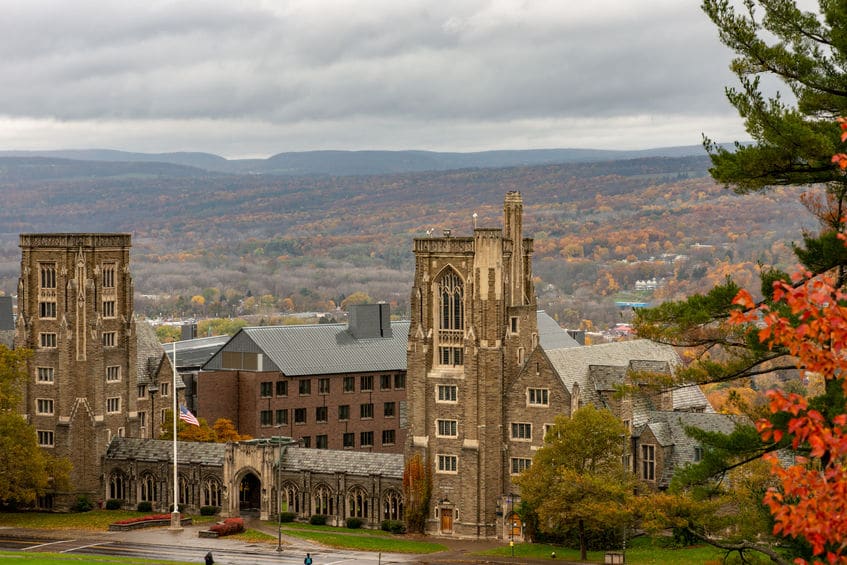
As part of our series How to Fully Fund Your Master’s Degree , here is a list of universities that have fully funded MFA programs in creative writing. A Master’s of Fine Arts in creative writing can lead to a career as a professional writer, in academia, and more.
Fully funded MFA programs in Creative Writing offer a financial aid package for full-time students that includes full tuition remission as well as an annual stipend or salary during the entire program, which for Master’s degrees is usually 1-2 years. Funding usually comes with the expectation that students will teach or complete research in their field of study. Not all universities fully fund their Master’s students, which is why researching the financial aid offerings of many different programs, including small and lesser-known schools both in the U.S. and abroad, is essential.
In addition to listing fully funded Master’s and PhD programs, the ProFellow fellowships database also includes external funding opportunities for graduate school, including fellowships for dissertation research, fieldwork, language study, study abroad, summer work experiences, and professional development.
Would you like to receive the full list of more than 1000+ fully funded Master’s and PhD programs in 60 disciplines? Download the FREE Directory of Fully Funded Graduate Programs and Full Funding Awards !
Here is the list of 53 universities that offer fully-funded MFA programs (Master’s of Fine Arts) in Creative Writing.
University of Alabama (Tuscaloosa, AL): Students admitted to the MFA Program are guaranteed full financial support for up to 4-years. Assistantships include a stipend paid over nine months (currently $14,125), and full payment of up to 15 credit hours of graduate tuition.
University of Arizona (Tucson, AZ): All accepted MFA students receive full funding through a graduate teaching assistantship for 3 years. This package includes tuition remission, health insurance, and a modest stipend (in 2018 it was about $16,100 per academic year).
Arizona State University (Tempe, AZ): 3-year program. All students admitted to the MFA program who submit a complete and approved teaching assistantship application are awarded a TA by the Department of English. Each assistantship carries a three-course per year load and includes a tuition waiver and health insurance in addition to the TA stipend ($18,564 per year). In addition, students have diverse opportunities for additional financial and professional support.
University of Arkansas (Fayetteville, AR): Four-year program. Teaching assistantships currently carry an annual stipend of $13,500 for students with a BA. TAs also receive a waiver of all tuition costs and teach two courses each semester. Nearly all of our accepted students receive TAs. Additionally, the students compete each year for several fellowships.
Boise State University (Boise, Idaho): 3-year fully funded MFA program dedicated to poetry and fiction. All students receive a tuition waiver, health insurance, and a Teaching Assistantship with a stipend of $11,450 per year.
Bowling Green State University (Bowling Green, OH): 2-year program, graduate assistantships (including stipend and scholarship) are available for all eligible face-to-face students. 100% tuition scholarship. Graduate stipend (the 2020-21 stipend is $11,500).
Brown University (Providence, RI): All incoming MFA students received full funding. All graduate students receive a fellowship that pays a monthly stipend and provides tuition remission, the health fee, and health insurance. The stipend for the 2020-2021 academic year is $29,926. Also, students in good standing receive a summer stipend of $2,993.
Boston University (Boston, MA): Tuition costs will be covered for every admitted student for the MFA degree in the BU Creative Writing Program. In addition, admitted students will receive university health insurance while they are enrolled, and all admitted students will receive stipend support of roughly $16,000 for the academic year.
Cornell University (Ithaca, NY): All MFA degree candidates are guaranteed 2 years of funding (including a stipend, a full-tuition fellowship, and student health insurance).
University of California Irvine (Irvine, CA): 3-year program. The Department is committed to providing 3 full years of financial support to all domestic students in the MFA Programs in Writing. Financial support for MFA students is given in the form of Teaching Assistantships providing full tuition coverage as well as University health insurance. Students will earn an estimated $22,569 for the academic year.
University of California San Diego (La Jolla, CA): MFA in Writing students are eligible for financial support if they study full-time, maintain good academic standing and make timely progress toward the degree. All students are eligible for full funding, including international students provided they meet the English language certification requirement for teaching assistants.
University of California Riverside (Riverside, CA): All incoming students are granted a full fellowship and stipend for their first year. After the first year, students receive full tuition and a salary through teaching assistantships.
Florida Atlantic University (Boca Raton, FL): 3-year program. All of the MFA students qualify for a position as a Graduate Teaching Assistant. The GTA position comes with a tuition waiver and a stipend. The standard stipend is $9,000, but some enhanced stipends are available. The Graduate College offers several fellowships for current graduate students.
Florida State University (Tallahassee, FL): The majority of students receive support in the form of a teaching assistantship and are provided with a stipend, a tuition waiver, and a health-insurance subsidy. MFA students receive a three-year assistantship. For 2022-23, MA/MFA stipends will be $16,400, and typically these amounts go up each year. Also, The FSU Graduate School offers several fellowships and awards.
Georgia College & State University (Milledgeville, GA): The MFA Program offers workshops in fiction, creative nonfiction, and poetry, and students take cross-genre workshops. All students admitted to the MFA program receive a Graduate Assistantship for all 3 years that includes a stipend and tuition remission.
University of Houston (Houston, TX): MFA students can receive a teaching assistantship for 3 years. Starting salary for MFAs is $17,935/9 months. Students in the Creative. As part of the assistantship, students are awarded either a Graduate Tuition Fellowship, which remits tuition, or a Creative Writing Program Fellowship, which covers the cost of tuition.
University of Idaho (Moscow, Idaho): All English Teaching Assistants (TA’s) are offered full tuition waivers. Teaching Assistants are given a stipend of $14,000 per year. Also offers three scholarships and three outstanding fellowships to support qualified MFA, graduate students.
University of Illinois, Urbana-Champaign (Urbana, IL): Three-year MFA program. Students accepted into the MFA program will receive full tuition waivers, guaranteed teaching assistantships.
Indiana University (Bloomington, IN): M.F.A. programs offer a generous teaching package to creative writing students. All applicants receive consideration for appropriate fellowships that will carry a stipend of about $19,000, plus tuition and fee-remission that covers roughly 90% of the cost of enrollment.
Iowa State University (Ames, IA): 3-year MFA program. Starting half-time 20 hours per week teaching assistantships for MFA students total $19,250 over 10 months and also receive a full-tuition waiver scholarship (approximate value $10,140) and health insurance coverage. The department has several resources available through which to offer fellowships and scholarships to qualifying new students.
University of Iowa (Iowa City, IA): 2-year residency program. Financial assistance is available for all students enrolled in the program, in the form of teaching assistantships, research assistantships, and fellowships. Most fellowships and assistantships provide either tuition scholarships or full tuition remission.
John Hopkins University (Baltimore, MD): 2-year program. All students receive full tuition, health insurance, and a generous teaching fellowship, currently set at $30,500 per year. Some students work as assistant editors on The Hopkins Review. They often win prizes such as Stegner Fellowships or grants from the National Endowment for the Arts.
University of Maryland (College Park, MD): This 3-year program accepts 8 applicants who are fully funded by Teaching Assistantships for up to three years of graduate study. Our aid packages include a stipend of about $20,000 per academic year and 60 credit hours of tuition remission.
Miami University (Oxford, OH): All students admitted to the MFA program in Creative Writing hold generous Graduate Assistantships (which include a summer stipend). Non-teaching assistantships may also be available.
University of Miami (Coral Gables, FL): An intensive two-year study with a third year option. The James Michener Fellowships and Teaching Assistantships support all our graduate students. Awards include a full tuition waiver and annual stipend of $18,915.
University of Michigan (Ann Arbor, MI): All MFA students accepted into the program are offered a full tuition waiver, a stipend of $23,000/yearly as well as $5,000 in summer funding, and health care benefits. Additionally, various fellowships and prizes are awarded each year to MFA students.
University of Minnesota (Minneapolis, MN): All admitted MFAs receive full funding, in the form of teaching assistantships or fellowships. Teaching assistantships carry a full tuition waiver, health benefits, and a stipend of about $18,600. Also, a variety of fellowships are available for graduate students.
University of Mississippi (University, MS): All of our students are fully funded. We offer two main sources of funding, the Grisham Fellowships and Teaching Assistantships.
University of Nevada Las Vegas (Las Vegas, NV): 3-year program. All MFA students admitted to the Creative Writing International program at UNLV are offered Graduate Assistantship funding of $15,000 per year (which includes in-state tuition and provisions for health insurance).
Northwestern University (Evanston, IL): Funding is provided for 3 full years, summers included. Tuition is covered by a tuition scholarship during any quarter in which you are receiving a stipend.
University of Notre Dame (Notre Dame, IN): Every student admitted to the MFA receives a full-tuition scholarship, a fellowship that carries a full stipend of $16,000 per year and access to a 100% health insurance subsidy.
North Carolina State University (Raleigh, NC): A two-year, fully-funded program, They accept only about a dozen students each year and offer full funding in the form of a graduate teaching assistantship to all eligible admitted applicants.
Ohio State University (Columbus, OH): All admitted students are fully funded for our 3-year MFA program in Creative Writing. In addition, all students receive either a graduate teaching associateship, a Graduate School fellowship or a combination of the two. For graduate teaching associateships, the student receives a stipend of at least $17,000 for the nine-month academic year.
University of Oregon (Eugene OR): A two-year residency MFA program. All incoming MFA students funded with a teaching appointment. Student instructors receive tuition remission, monthly stipends of approximately $18,000.
Oregon State University (Corvallis, OR): All students admitted to the MFA program will automatically receive a standard teaching Graduate Teaching Assistantship contract, which provides full tuition remission and stipend of approximately $12,800 per year to cover living expenses. In addition to tuition remission, all graduate students have the option to receive 89% coverage of health insurance costs for themselves and their dependents.
University of Pittsburgh (Pittsburgh, PA): 3-year MFA program. All students admitted to the program will receive Teaching Assistantships for two or three years. All Teaching Assistantships include salary, medical benefits, and tuition remission.
Rutgers University–Newark (Newark, NJ): Each full-time incoming student receives in-state Tuition Remission and a Chancellor’s Stipend of 15K per year. Students are also eligible for Teaching Assistantships, and Part-Time Lectureships teaching Comp or Creative Writing. Teaching Assistantships are $25,969 (approximate) plus health benefits.
University of South Florida (Tampa, FL): 3-year program. MFA students receive a tuition waiver, a teaching assistantship that comes with a stipend, and enrollment in group health insurance.
Southern Illinois University (Carbondale, IL): Almost all MFA students hold graduate assistantships, which provide stipends for the academic year and full remission of tuition. The annual stipend, which comes with tuition remission, ranges from $13,000 to $14,500.
Syracuse University (Syracuse, NY): Three-Year M.F.A. in Creative Writing. All students are fully funded. Each student admitted receives a full-tuition scholarship in addition to an annual stipend of $17,500.
University of South Carolina (Columbia, SC): 3-year MFA program. The MFA at Carolina is pleased to provide fellowship and/or assistantship funding to all accepted students, earning our program the designation of “fully funded” from Poets and Writers.
University of Tennessee — Knoxville (Knoxville, TN): There is no cost to apply to the MFA program. All of our PhD candidates and MFA students are fully funded, with generous opportunities for additional financial support.
University of Texas in Austin (Austin, TX): All students in the New Writers Project receive three years of full funding through a combination of teaching assistantships (TA), assistant instructorships (AI), and fellowship support. The complete package includes full tuition remission, health insurance, and a salary.
University of Texas James Michener Center (Austin, TX): A three-year, fully funded residency MFA program that provides full and equal funding to every writer. All admitted students receive a fellowship of $29,500 per academic year, plus total coverage of tuition.
Vanderbilt University (Nashville, TN): Each year a small, select class of talented writers of fiction and poetry enroll in Vanderbilt’s three-year, fully-funded MFA Program in Creative Writing. The University Fellowship provides full-tuition benefits, health insurance, and a stipend of $30,000/yearly. In 2nd year and third-year students have the opportunity to teach for one semester.
University of Virginia (Charlottesville, VA): Three-year MFA program. Students will receive fellowship support and/or teaching income in the amount of $20,000 each academic year, as well as full funding of your tuition, enrollment fees, and the health insurance premium for single-person coverage through the university.
Virginia Tech (Blacksburg, VA): Three-year MFA degree offers tracks in Poetry and Fiction, and all students are fully and equally funded via GTA-ships of more than $20,000 per year.
Washington University in St. Louis (St. Louis, MO): Because of selectivity and size they are able to offer all the new students full and equal financial aid for both years in the program in the form of a University Fellowship, which provides a complete tuition waiver plus a stipend sufficient for students to live comfortably in our relatively inexpensive city. All MFA students receive health insurance through Washington University.
Western Kentucky University (Bowling Green, KY): Three-year, fully-funded, residential MFA program in creative writing offering generous assistantships, which will allow MFA students to gain valuable experience tutoring and teaching.
West Virginia University (Morgantown, WV): A three-year program. All Master of Fine Arts students receive a full tuition waiver and an assistantship, which includes a stipend valued at $16,750.
Wichita State University (Wichita, Kansas): Most of the MFA students are GTAs who teach two composition classes each semester. They pay no tuition, receive $4,250 each semester and may buy discounted health insurance. The MFA program also awards two $12,500 fellowships each year.
University of Wisconsin–Madison (Madison, WI): All accepted MFA candidates receive tuition remissions, teaching assistantships, generous health insurance, and other financial support. In addition to the approximately $14,680 paid to each MFA annually in exchange for teaching, every MFA candidate will receive another $9,320 in scholarships each year.
University of Wyoming (Laramie, WY): All of our full-time MFA students are fully funded with two-year graduate assistantships. Currently, assistantships include a stipend of $12,330 per academic year, a tuition and fees waiver, and student health insurance. Students also receive summer stipends of up to $2,000 for the summer.
Would you like to receive the full list of more than 1,000+ fully funded PhD and master’s programs? Get your copy of ProFellow’s FREE Directory of Fully Funded Graduate Programs and Full Funding Awards !
©️ ProFellow, LLC 2021, all rights reserved.
Related Posts:
- Free Workshop! Find 5+ Fully Funded Graduate Programs to Achieve Your Career Goals
- Free Webinar! Find 5+ Fully Funded Graduate Programs to Achieve Your Career Goals
- Fully Funded PhD Programs in School Psychology
- Fully Funded PhD Programs in Health Informatics
- Fully Funded PhD Programs in the United Kingdom
Creative Arts Fellowships , Fully Funded Master's Programs , Writing Fellowships
Why You Should Ignore the News About the “Catastrophic” Academic J...
Benefitting the environment and the economy: the 1 hotels fellowship e..., find and win paid, competitive fellowships.
Be alerted about new fellowship calls for applications, get insider application tips, and learn about fully funded PhD and graduate programs
Fellowship Resources
- Calls for Applications
- Upcoming Fellowship Deadlines
- Fellowships Database
- Interviews with Fellows
- International Fellows Network
- Graduate Funding Directory
Fellowship Tips
- What is a Fellowship?
- Fully Funded Course
- Graduate School Funding
- Fellowship Application Tips
- Fulbright Application Tips
- Fellowship Application Guide
- Our Mission, History & Values
- ProFellow Winner Testimonials
- Fully Funded Course Testimonials
- Fellowship Industry Report
- Advertise With Us
- Terms & Privacy
ProFellow is the go-to source for information on professional and academic fellowships, created by fellows for aspiring fellows.
©2011-2024 ProFellow, LLC. All rights reserved.
Creative Writing (MFA)
Program description.
The MFA Program in Creative Writing consists of a vibrant community of writers working together in a setting that is both challenging and supportive. This stimulating environment fosters the development of talented writers of poetry, fiction, and creative nonfiction. The program is not defined by courses alone, but by a life built around writing.
Through innovative literary outreach programs, a distinguished public reading series, an exciting public student reading series, special literary seminars with visiting writers, and the production of a high-quality literary journal, students participate in a dynamic literary community actively engaged in all aspects of the literary arts—writing, reading, teaching, publishing and community outreach. Students also have the opportunity to enjoy America's most literary terrain; New York University is situated in the heart of Greenwich Village, a part of the city that has always been home to writers.
The MFA in Creative Writing is designed to offer students an opportunity to concentrate intensively on their writing. This program is recommended for students who may want to apply for creative writing positions at colleges and universities, which often require the MFA degree. The MFA program does not have a foreign language requirement.
All applicants to the Graduate School of Arts and Science (GSAS) are required to submit the general application requirements , which include:
- Academic Transcripts
- Test Scores (if required)
- Applicant Statements
- Résumé or Curriculum Vitae
- Letters of Recommendation , and
- A non-refundable application fee .
See Creative Writing for admission requirements and instructions specific to this program.
Program Requirements
Special project, program information.
| Course | Title | Credits |
|---|---|---|
| Major Requirements | ||
| Select four graduate creative writing workshops | 16 | |
| Select one to four craft courses taught by the members of the CWP faculty: | 4-16 | |
| The Craft of Poetry | ||
| The Craft of Fiction | ||
| The Craft of Creative Nonfiction | ||
| Additional Courses | ||
| Select courses from any department | 12-16 | |
| Total Credits | 32 | |
Taken in four separate semesters. Students are required to take workshops in the genre in which they were admitted to the program.
Craft courses may be repeated provided they are taught by different instructors.
With the permission of that department and of the director of the CWP.
Additional Program Requirements
A creative special project in poetry, fiction, or creative nonfiction consisting of a substantial piece of writing—a novel, a collection of short stories or essays, a memoir, a work of literary nonfiction, or a group of poems—to be submitted in the student’s final semester. The project requires the approval of the student’s faculty adviser and of the director of the CWP.
The MFA degree may also be earned through the Low Residency MFA Writers Workshop in Paris. Under this model, degree requirements remain the same, although Craft courses and Workshops take the form of intensive individualized courses of study with the faculty, including three substantial packet exchanges of student work per semester. All students earning the MFA degree through the low-residency program must also participate in five ten-day residencies in Paris, which involve a diverse series of series of craft talks, lectures, readings, special events, faculty mentorship meetings, and professional development panels.
Sample Plan of Study
Please note : The following is a sample plan of study for a student enrolled in the poetry track. Fiction and creative nonfiction plans of study would parallel the below, substituting the Workshop requirements accordingly (i.e., Workshop in Fiction or Workshop in Creative Nonfiction, respectively).
| 1st Semester/Term | Credits | |
|---|---|---|
| Workshop in Poetry I | 4 | |
| The Craft of Poetry | 4 | |
| Credits | 8 | |
| 2nd Semester/Term | ||
| Workshop in Poetry I | 4 | |
| General Elective or CWP Craft Course | 4 | |
| Credits | 8 | |
| 3rd Semester/Term | ||
| Workshop in Poetry I | 4 | |
| General Elective or CWP Craft Course | 4 | |
| Credits | 8 | |
| 4th Semester/Term | ||
| Workshop in Poetry I | 4 | |
| General Elective or CWP Craft Course | 4 | |
| Credits | 8 | |
| Total Credits | 32 | |
Learning Outcomes
Upon successful completion of the program, graduates will have achieved the following learning outcomes:
- Graduate students in the Creative Writing Program at NYU work intensively with faculty mentors in writing workshops and individual conferences to learn and master the basic elements of the craft of fiction, creative nonfiction, or poetry.
- Students are expected to read widely and deeply, and to acquire a broad practitioner’s knowledge of literature in their declared concentration (poetry, creative nonfiction, or fiction).
- Students are taught to read carefully and critically, and in doing so learn to read as writers. By studying great novels, poems, and works of literary nonfiction by other writers, students learn how to write their own.
- The two-year program of intensive study culminates in the completion of a creative thesis— a novel, a collection of stories or essays, or a collection of poems. The thesis manuscript, ideally, is a working draft of a first book. Many program alumni go on to publish books and win awards for their writing.
Grading and GPA Policy
Nyu policies, graduate school of arts and science policies, program policies.
To qualify for the degree, a student must have a GPA of at least 3.0, must complete a minimum of 24 points with a grade of B or better, and may offer no more than 8 points with a grade of C (no more than 4 points with a grade of C in creative writing workshops). A student may take no more than 36 points toward the degree.
University-wide policies can be found on the New York University Policy pages .
Academic Policies for the Graduate School of Arts and Science can be found on the Academic Policies page .
Print Options
Send Page to Printer
Print this page.
Download Page (PDF)
The PDF will include all information unique to this page.
Get the Reddit app
Discussions about the writing craft.
My experience applying to 15 of the best Creative Writing MFA programs in the United States / a note for anyone who might be thinking about applying to Creative Writing MFA's.
In late 2019 I applied to around 15 of the best Creative Writing MFA's in the United States. All of these programs have less than a 3% acceptance rate--the most competitive among them less than 1% (yes, they received over 1000 applicants and accepted less than 10). There are plenty of Creative Writing MFA's that have much higher acceptance rates, but most of them aren't fully funded.
Why did I apply? Because I felt that I was reaching a point that I couldn't improve further on my own. Because I've submitted stories to hundreds of magazines (and been accepted at a few, but rejected from 98%). Because I write and read every day, religiously, and have done so for over a decade. Because the job market is rough and I believe that having further education will help me pursue jobs that I want, in the fields I'm looking in, based on extensive research. (Note: thousands of people have Creative Writing MFA's--this is something that can SUPPORT my resume, not hold it up on its own). (2nd Note: The school your MFA comes from does matter in certain communities, such as academia and publishing, so while there are thousands of people in the job pool with CW MFA's, there are NOT thousands with CW MFA's from Cornell).
But most importantly, I applied because at 25, with a wife and a young kid, I’m realizing that my desire to write, read, and publish – that my desire to work with letters professionally – is never going to go away. And right now I’m at a spot where I can responsibly pursue my passion. All of that is important.
The dust has basically settled now and I have a handful of acceptances, a few waitlists, and a slew of rejections (3a/2w/8 r/2pending ). The cost to apply to all these programs was around $1000 out of my pocket (a little more, actually, but I ALREADY feel confident this cost was more than worth it to me--more on that later).
Now that it's "over" and I have my decisions to make, I thought I'd share some of what I learned and some other general thoughts for any writers that might have completed an undergrad and be in a spot, now, where they might be thinking about further education or how they might be able to pursue writing further. I think there’s a general list of writers that look at MFA’s and it looks something like this:
You just completed an undergrad in English or Writing and don’t know what to do. You apply to MFA’s and almost definitely get rejected in mass (take a look at the average age in these programs, there are almost no 22/23 year old’s). I would consider this a bad reason to apply, but you will definitely learn some useful things (such as, you’re not quite ready yet). Or perhaps you’ll be one of the very few young students directly out of undergrad that get accepted. It happens. It means you’re damn good.
You want to get into publishing (whether as an author, or as staff at a publishing house / a good literary magazine). This is a slightly better reason than reason #1, as many programs have a strong focus on internships, establishing relationships, and communicating knowledge about publishing.
You write and read every day. You’ve done so for years. You submit to magazines, journals, and publishing houses. You’ve queried an agent before. You have dozens of short stories sitting around your house (or sitting around your hard drive). You’ve written a few novels. You just can’t seem to figure out how to keep improving. You’re afraid of stagnating. You earnestly want to improve.
You read about it on reddit and considered, why the hell not. (Not a ton worse than #1). It’s no surprise to you that #2 and #3 describe me more than #1 and #4. I think you should consider which of these describe YOU if you’re also considering an MFA.
There's no doubt that you can write without a cohort of peers and mentors surrounding you. There's no doubt that if you don't have the motivation to write and read all on your own that you probably won't get much out of an MFA program. There's no doubt that many great authors never formally studied writing or even went to college.
But what if you are writing and reading religiously on your own--what if you are working hard on your own, absorbing classes on YouTube, reading books like "Dreyer's English" and King's "On Writing" -- what if you are actively pursuing publications, submitting to magazines, writing short stories and working on your 2nd or 3rd novel in earnest.... and you just can't seem to progress as quickly as you want? Or what if you want to get into publishing / editing / staff at a lit mag or journal / into the highly competitive world of college teaching (or even high school teaching) and can't seem to compete with the market?
Perhaps an MFA, where you study with other individuals who you can relate to, and underneath published and intelligent professors and doctors of writing / literature that understand what you're trying to do (because they've all done it successfully) could be a decent choice.
I'll add now that part of the criticism I see regularly is that "it's not worth going into debt for a degree." I have two responses to that:
Only you can decide what level of debt you're willing to bring on yourself to further your dreams, goals, and aspirations. That's a highly subjective decision that shouldn't be made lightly. But there are things like Income based repayment for a reason.
Dozens of programs across the country allow you to do all this without taking on a single penny of debt -- in fact, some students come out of the program with more money than they went into it with.
Sometimes this can be absolutely true. Make sure that you don’t do something you’ll later regret. Study how student loans work if you’re considering them VERY CAREFULLY. Consider how you’ll pay them back if you do decide to take them out. This isn’t something to think about later.
I see a lot of hate for advanced degrees on Reddit, especially in the writing community. I think some of that might be because the average reddit user doesn't understand that in many cases these degrees are not only free, but actually pay you (as much as $30,000 / year on top of the free tuition which is normally around another $30,000+ / year in fees waived). Is the money free? Almost definitely not - they expect you to work around 20 hours a week teaching classes on campus.
But that's a good thing. A GREAT thing in fact. Because you're going to learn a shit load if you teach a writing class (yes, even a comp class to freshmen is going to teach you a ton about writing). And because it gives you extremely relevant work experience to list on a resume no matter what your career path is in the future.
So what if you are interested in pursuing a Creative Writing MFA?
The first thing you'll want to do is consider what your very strongest pieces of writing are and how you'd put them together in a portfolio. I list this at the top because if you don't have highly polished and competitive pieces of writing RIGHT NOW, you aren't going to magically acquire them in a few short months. This is the most important thing, bar none. Most programs ask for between 20 and 30 pages of content. That's between 1 and 2 short stories (or novel excerpts--although novel excerpts are not recommended). If you don't have strong writing that you're absolutely certain is high quality, you need to get it first. How do you get it if you don't have it? By writing and reading every day and investing a ton of time and effort. Also, peer groups and workshops.
The second thing you'll want to do is research programs. I recommend fully funded (or at LEAST partially funded) programs exclusively. But you might have reasons to look at smaller colleges, and those colleges might be more valuable to you depending on the staff / location / other details. For example, Emerson College is only partially funded but has one of the few programs in the world that is openly accepting of science fiction, fantasy, and horror while also EMPLOYING professors that actively write and publish in the genre fiction field. If you are exclusively interested in science fiction, I imagine you'd get more out of a workshop with Katie Williams (who wrote Tell the Machine Goodnight) than a workshop with professors that strictly write literary fiction.
The third thing you'll want to do is make sure you can feasibly accept offers if you do get into the program. Do you have a few thousand dollars (or could you, 6, 9, or 12 months from now) to move across the Country? Will you have any support or help if not? This is important. You don't want to waste money applying to something you can't actually do if you manage to get accepted.
The fourth thing you'll want to do is prepare yourself for rejection. The first 6 schools that showed movement during the application season all rejected me, and it hurt. I was arrogantly not expecting it, and it was sobering to realize many, many programs did not think I was among the most talented writers to apply. It was GOOD that this happened, in hindsight. Perhaps (definitely) my head was too big. I'm glad I got rejected from many of these schools. I deserved it. My portfolio could have been stronger. It should have been. The fact that I can look back now, just 5 months later, and SEE how it could have been stronger, means the process was worth the time and $1000 to me already.
At the bottom of this is my realization that we have a lot of people on r/writing that aren’t sure how to get better but earnestly want to. This is ONE way to get better (and there’s some real advice along the path that will transform the way you look at writing and consider what it means to be a writer, because if you’re in the group of people that can feasibly be accepted into these programs, it means you’ve done a lot of work to get there).
I have a lot more to say. I’m happy to engage with anyone who has questions or concerns about any of the information I shared here. Like I said in the title, this is my experience. It’s not universal. YMMV.

These are the Best Creative Writing MFA Programs in the U.S.
This article offers a comprehensive guide to the top Creative Writing Master of Fine Arts (MFA) programs in the U.S., tailored for aspiring writers aiming to refine their craft in poetry, fiction, or creative nonfiction. Highlighting the importance of faculty expertise, alumni success, curriculum diversity, financial support, and location, it delves into what makes each program stand out. Featured programs include the Iowa Writers’ Workshop, known for its prestigious alumni and faculty; the University of Michigan’s Helen Zell Writers’ Program, offering generous funding; and the Columbia University School of the Arts, with its unparalleled access to the New York literary scene. These programs are evaluated on their ability to provide a nurturing environment for writers to develop their voice and style, alongside offering practical advice on navigating the literary world.
Reflection Questions
- Many MFA programs are intense and require a significant time commitment. How do you plan to balance writing, workshops, and any teaching responsibilities with your personal life and possibly other professional obligations?
- Considering the diversity of faculty and the curriculum, how important is representation to you in an MFA program? How do you hope to see your own experiences and perspectives reflected in the program?
- Receiving and giving feedback is a cornerstone of MFA programs. How do you approach critique, both in giving it to others and receiving it about your work? How do you plan to use critique to further your development as a writer?
Journal Prompt
Think about the stories of women that have influenced you the most. How do these narratives shape your own writing? Write about how you plan to contribute to the landscape of female narratives within the literary world through your work.
Creative Writing Master of Fine Arts (MFA) programs play an important part in shaping the careers of aspiring writers, offering them a structured environment to hone their craft. The evaluation of these programs hinges on several key factors: the expertise and reputation of the faculty, the success and influence of alumni, the rigor and diversity of the curriculum, the availability of financial support, and the geographical location which can influence literary connections and opportunities. In this article, we will provide an in-depth analysis of the leading Creative Writing MFA programs in the United States, scrutinizing each of these criteria to guide prospective students in making informed decisions about their educational and professional trajectories in the field of creative writing. Whether you seek a poetry MFA program or one in creative nonfiction, read on to learn about the best MFA programs for creative writing students below.
The Role of MFA Programs in Creative Writing

MFA programs in Creative Writing fundamentally contribute to a writer’s development by providing a structured and rigorous academic environment. These programs are designed to immerse students in a world of literary critique and craft, offering dedicated time for writing, reflection, and improvement.
Through workshops, seminars, and individual mentoring, students gain critical feedback on their work, learn to refine their voice, and explore various genres and techniques. This intensive focus on writing, combined with exposure to a breadth of literary styles and theories, equips aspiring writers with the skills and knowledge necessary to advance their craft and develop a unique literary style.
Fuel your creative fire & be a part of a supportive community that values how you love to live.
subscribe to our newsletter
Community and networking opportunities in mfa programs.
MFA programs offer significant community and networking opportunities, serving as a nexus for like-minded individuals passionate about writing. These programs foster a sense of community through collaborative workshops, readings, and group discussions, creating an environment conducive to sharing ideas and experiences.
Networking opportunities with established writers, publishers, and literary agents are often facilitated by the program, providing students with valuable industry connections. Alumni networks further extend these opportunities, allowing graduates to remain connected to a supportive literary community that can play a crucial role in their professional development and success in the literary world.
What is the Coursework Like?
The coursework for a Master of Fine Arts (MFA) in Creative Writing is designed to provide students with a comprehensive and immersive experience in writing, critical analysis, and literary theory. While specific course offerings and structures can vary by program, there are several common elements found across most MFA programs that graduate students can expect. These include the following.
Writing Workshops : These are the cornerstone of most MFA programs. Workshops focus on the student’s own writing, providing a space for peer review and critical feedback. Students typically submit their work—be it poetry, fiction, nonfiction, or another genre—and the class discusses each piece in detail, offering constructive critiques. These workshops are often led by experienced visiting writers and faculty members who can help guide the writing process as you pursue your graduate degree.
Literature Classes : Literature courses are a staple of many MFA programs. They offer a study of literary works from various genres, periods, and cultures. These courses are designed to give students a deeper understanding of literary traditions, styles, and techniques, which can then be applied to their own writing.
Craft Classes : Focusing on specific aspects of writing, such as narrative structure, character development, or dialogue, craft classes help students refine their skills in particular areas of writing. These might also include studies in genre-specific writing, like mystery, fantasy, or memoir.
Electives : Many programs offer elective courses that allow students to explore areas outside of their primary genre or delve into specialized topics like screenwriting, children’s literature, or digital storytelling.
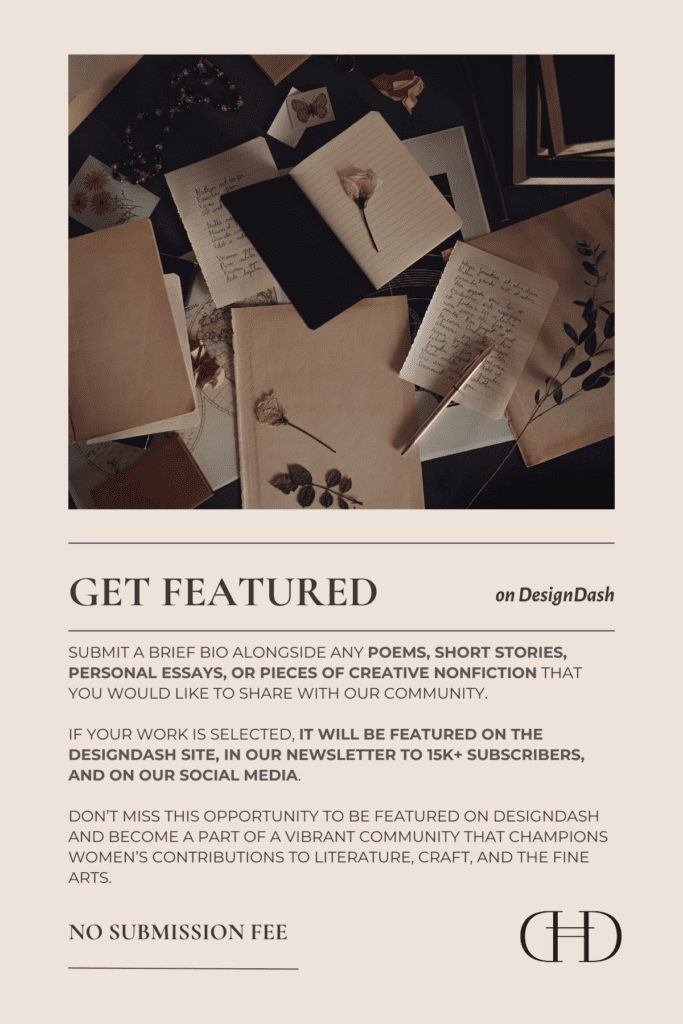
are you a writer?
Submit your work to be featured. ↗
Thesis or Capstone Project : Most MFA programs culminate in a thesis or capstone project. This typically involves creating a substantial body of work, such as a novel, a collection of short stories or poems, or a nonfiction manuscript. The project is usually completed under the guidance of a faculty advisor.
Professional Development : Courses or workshops focused on the business side of writing, such as publishing, literary agent representation, and marketing, are also common. These are designed to prepare students for the practical aspects of a writing career.
Guest Lectures and Readings : Many programs bring in established writers, editors, and literary agents to speak with students, providing insights into the literary world and opportunities for networking.
Teaching Opportunities : Some programs offer teaching assistantships, where MFA students teach undergraduate writing courses. A graduate teaching assistantship provides valuable teaching experience and often helps with funding. Low residency programs in particular offer these opportunities.
Top Creative Writing MFA Programs in the U.S.

The United States boasts a range of top-tier Creative Writing MFA programs, each with its unique strengths and focus. Many are low-residency MFA programs with both incredible tenured professors and amazing visiting faculty. Let’s take a look at a few creative writing programs.
The Iowa Writers’ Workshop at the University of Iowa, a pioneer in the field, is known for its tradition of producing distinguished writers. Columbia University’s program in New York City stands out for its comprehensive approach and proximity to the publishing world.
The Helen Zell Writers’ Program at the University of Michigan offers an intimate setting with a strong emphasis on community and craft. The Michener Center for Writers at the University of Texas at Austin distinguishes itself with its interdisciplinary approach and generous funding.
Other notable programs include those at New York University, Brown University, the University of Virginia, and Johns Hopkins University, each offering a blend of rigorous coursework, accomplished faculty, and a supportive writing community. Let’s delve deeper into these and a few more of the top graduate creative writing programs below. Bear in mind that the following MFA creative writing programs are not listed in any particular order.
Iowa Writers’ Workshop, University of Iowa
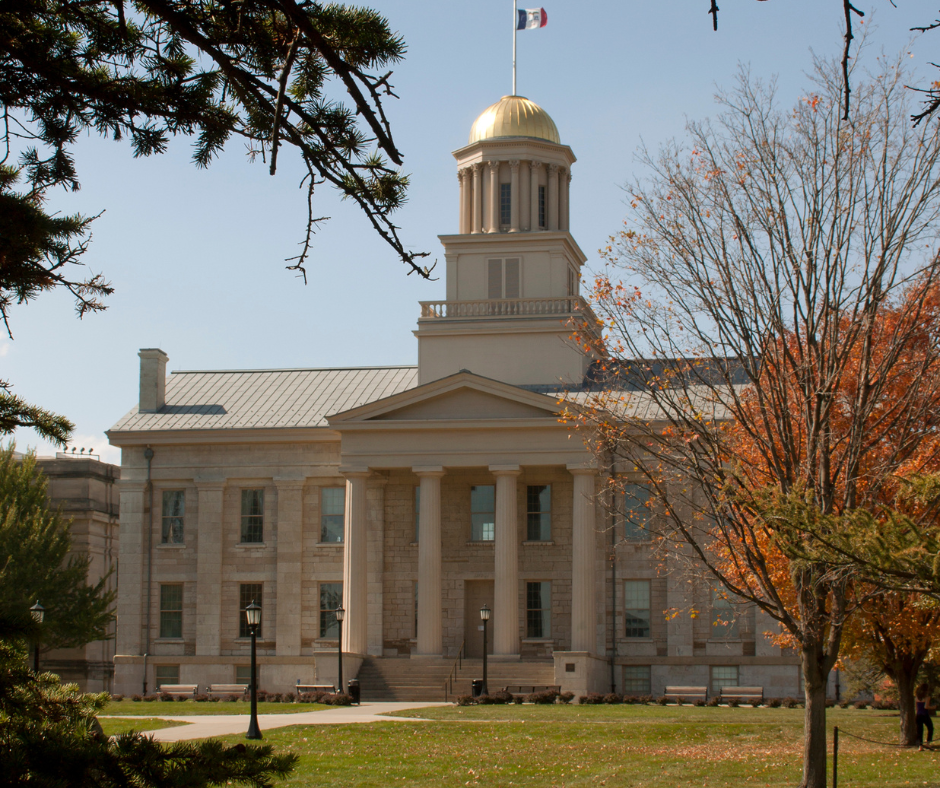
The Iowa Writers’ Workshop at the University of Iowa stands as one of the most prestigious Creative Writing MFA programs in the United States. Renowned for its history of nurturing successful writers, the program has been a seminal influence in the literary world. Incoming MFA students will walk in the footsteps of incredible writers like John Irving and Flannery O’Connor.
The workshop model of teaching, which fosters peer review and close interaction with faculty, has been instrumental in shaping the skills of budding writers. The program’s alumni include numerous Pulitzer Prize winners and acclaimed authors, underlining its significant impact on the literary landscape.
Iowa Writers’ Workshop Alumni
The Iowa Writers’ Workshop at the University of Iowa is renowned for its impressive roster of alumni, many of whom have achieved significant acclaim in the literary world. Some well-known alumni include the following.
Flannery O’Connor: An American novelist and short story writer known for her sardonic, Southern Gothic style and often grotesque characters.
John Irving: A bestselling novelist and screenwriter, famous for works such as “The World According to Garp” and “A Prayer for Owen Meany.”
Jane Smiley: A Pulitzer Prize-winning author, recognized for her novel “A Thousand Acres,” which is a modernized retelling of Shakespeare’s “King Lear.”
Michael Cunningham: Known for his novel “The Hours,” which won the Pulitzer Prize for Fiction and the PEN/Faulkner Award.
T.C. Boyle: A prolific writer known for his novels and short stories that often reflect on contemporary society and the human condition.
Marilynne Robinson: Celebrated for her novel “Gilead,” which won the Pulitzer Prize for Fiction; she is also known for her essays and teaching at the Workshop.
Columbia University School of the Arts
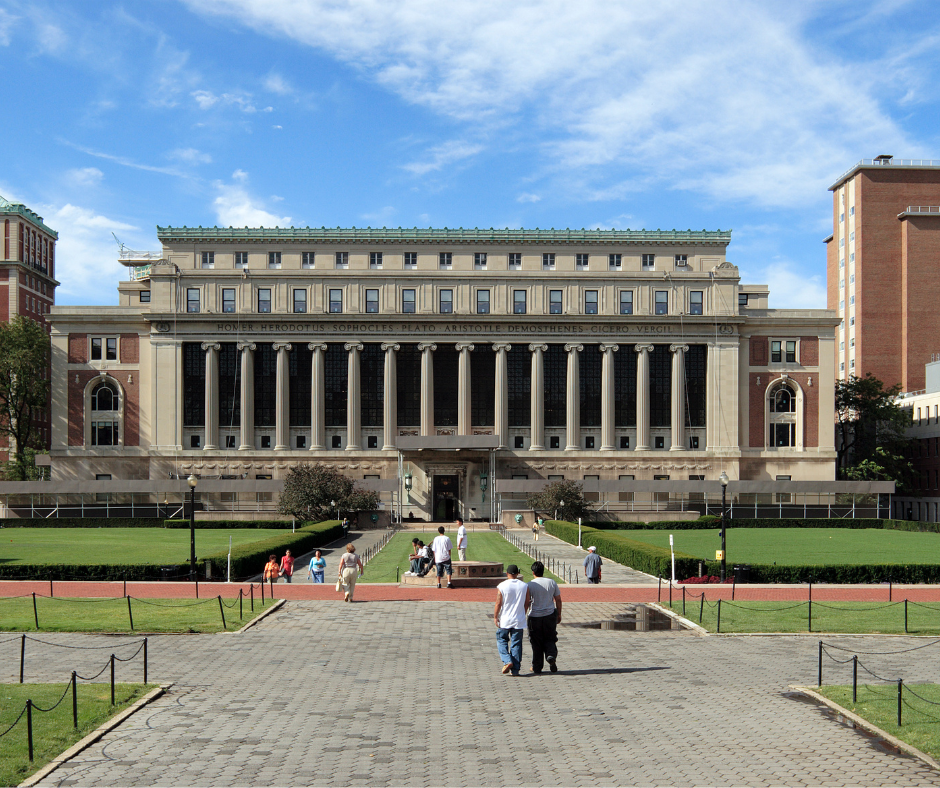
Columbia University’s School of the Arts offers a Creative Writing MFA program known for its rigorous approach and outstanding faculty. Located in the heart of New York City, the program provides students with an immersive experience in one of the world’s most dynamic literary communities.
The curriculum emphasizes not only creative writing skills but also a critical understanding of literary theory and history, supported by a faculty comprising some of the most distinguished writers and intellectuals in the field.
University of Michigan, Helen Zell Writers’ Program
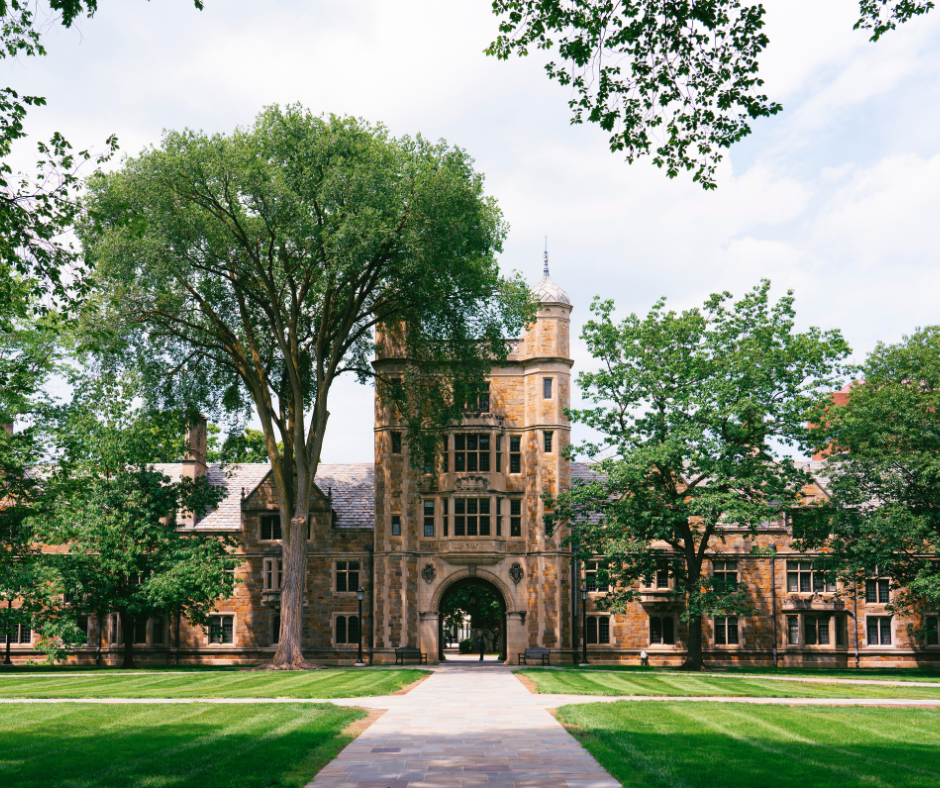
The University of Michigan’s Helen Zell Writers’ Program is celebrated for its unique blend of academic rigor and creative flexibility. This program distinguishes itself by offering a supportive and collaborative environment where students can explore a wide range of writing styles and genres.
The faculty, composed of esteemed writers, provides personalized guidance, ensuring a rich learning experience that fosters both technical skill and artistic expression.
New York University
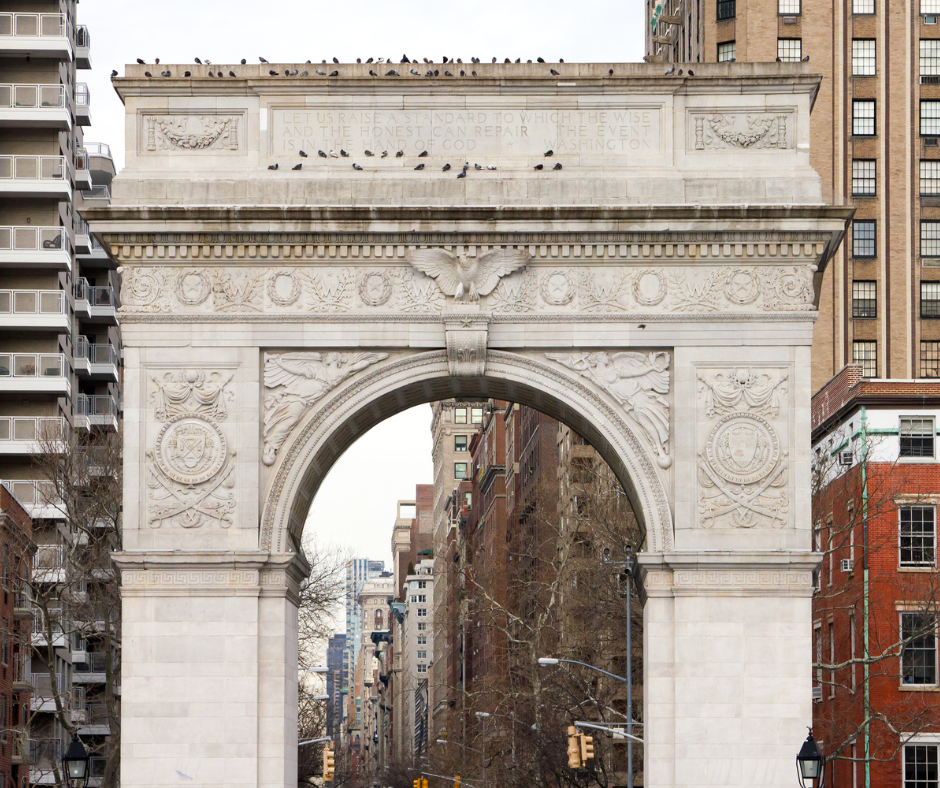
Located in the vibrant literary heart of New York, New York University’s creative writing program is notable for its distinguished faculty and diverse student body. The program offers unparalleled access to the city’s rich cultural life, including readings, workshops, and networking events with industry professionals.
This urban setting, combined with the program’s strong focus on mentorship and development, creates an ideal environment for MFA students to flourish.
The Michener Center for Writers, University of Texas at Austin
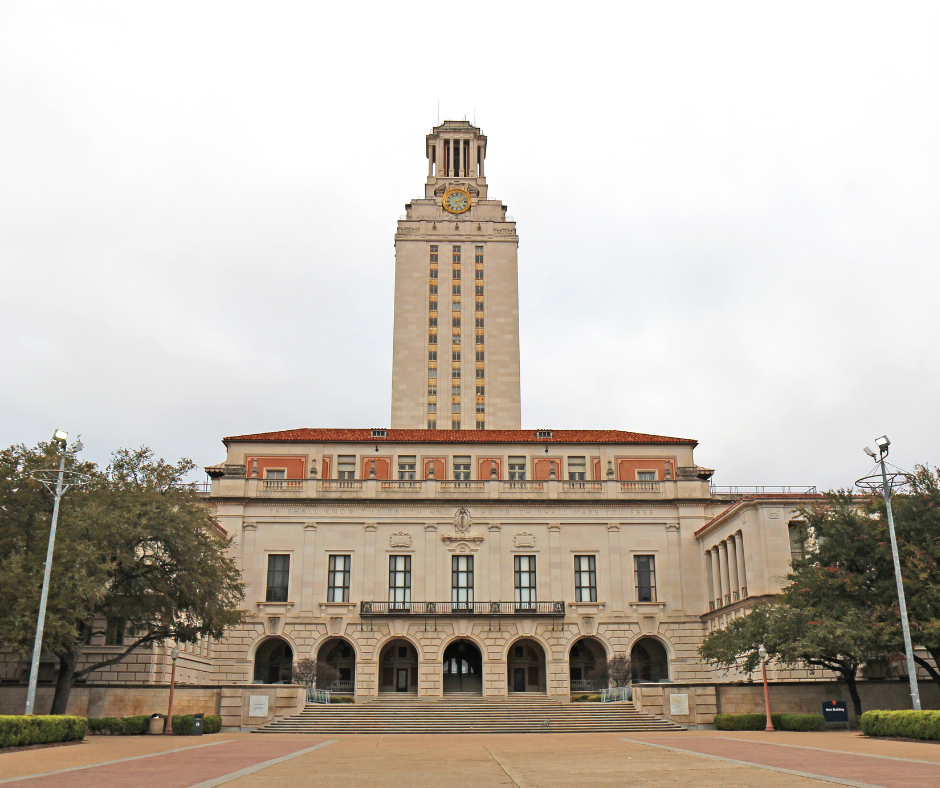
The Michener Center for Writers at the University of Texas at Austin is known for its interdisciplinary approach and generous funding opportunities for students. The program stands out for its emphasis on cross-genre exploration, allowing students to delve into various forms of writing. With its robust funding, the center attracts a diverse group of talented writers, creating a dynamic and supportive community.
Brown University
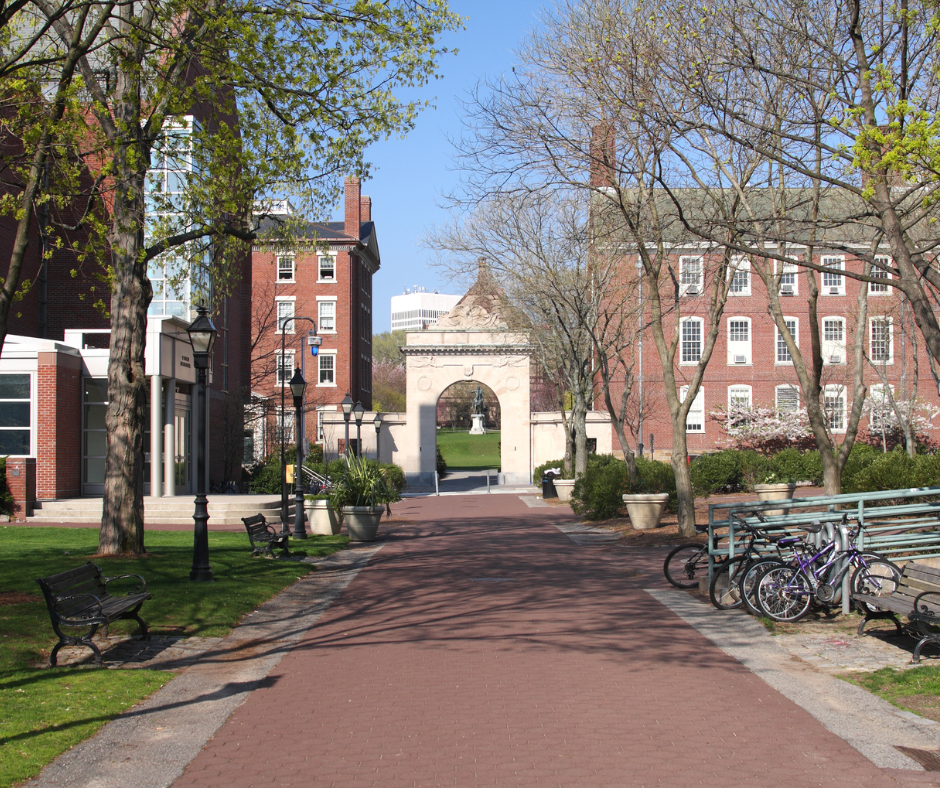
Brown University’s MFA program in Creative Writing is recognized for its innovative approach and strong emphasis on the literary arts. The program encourages experimental and boundary-pushing work, supported by a faculty renowned for their artistic contributions.
Brown’s emphasis on a wide range of literary styles and mediums provides students with a broad and enriching educational experience.
University of Virginia
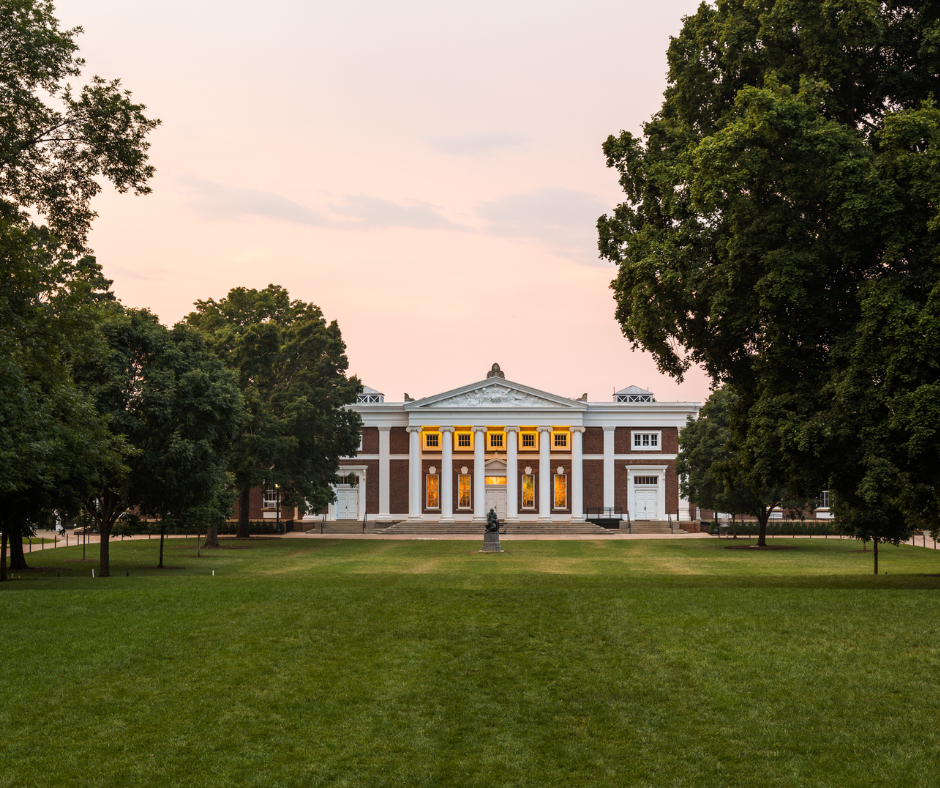
The University of Virginia’s MFA program in Creative Writing boasts a high-quality faculty and a strong alumni network. Known for its selective admissions and intimate class sizes, the program offers personalized attention and mentorship to each student. The alumni success stories speak to the program’s effectiveness in fostering literary talent and career development.
Johns Hopkins University
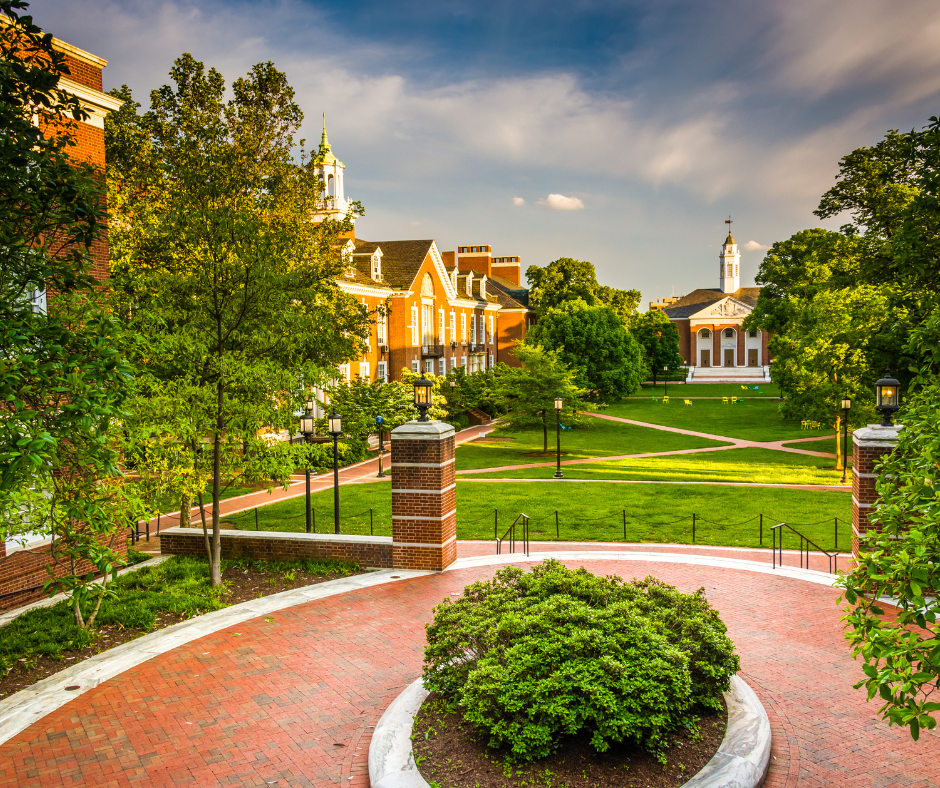
Johns Hopkins University offers a Creative Writing MFA program known for its tight-knit community and focus on craft and theory. The program emphasizes intensive writing workshops coupled with critical analysis, fostering a deep understanding of literary craft. This approach, along with the supportive environment of peers and faculty, makes it an ideal place for writers committed to honing their craft.
University of California, Irvine
The University of California, Irvine’s MFA program is distinguished by its strong emphasis on both critical skills and creative work. The program blends rigorous writing workshops with a theoretical understanding of the craft, offering a comprehensive approach to literary study. This balance ensures that graduate students are well-equipped both as writers and critical thinkers in the literary field.
Boston University
Boston University’s Creative Writing MFA program is renowned for its intensive one-year curriculum and close mentorship. The program offers a fast-paced, deeply immersive educational experience, with a strong emphasis on completing a substantial body of work. The faculty’s close guidance helps students rapidly develop their skills and prepare for a professional writing career.
accepting new mastermind applications
For fall ’24.
Get unstuck. Find fulfillment. Rediscover your passion for the design industry we all love! Be one of the first to join our next exclusive, curated cohort of creative women and find support like you’ve never had before.
LEARN MORE →

Cornell University
Cornell University’s MFA program offers a diverse range of creative writing courses, supported by an experienced and accomplished faculty. The program is designed to cater to a wide array of interests and styles, allowing students to explore various aspects of creative writing. Cornell’s commitment to literary scholarship and creative excellence makes it a nurturing environment for aspiring writers.
University of Massachusetts, Amherst
The University of Massachusetts, Amherst, features a supportive Creative Writing MFA program that focuses on personal growth as a writer. The program is characterized by its welcoming community and emphasis on individual development. Students are encouraged to find their unique voice and explore their creative potential in a nurturing environment.
M. University of Wisconsin, Madison
The University of Wisconsin, Madison, offers a comprehensive Creative Writing MFA program with a vibrant writing community. The curriculum covers a wide range of genres and styles, providing students with a broad understanding of literary forms and practices. The program’s engaged community and comprehensive approach make it an ideal place for writers seeking both breadth and depth in their literary education.
Stanford University
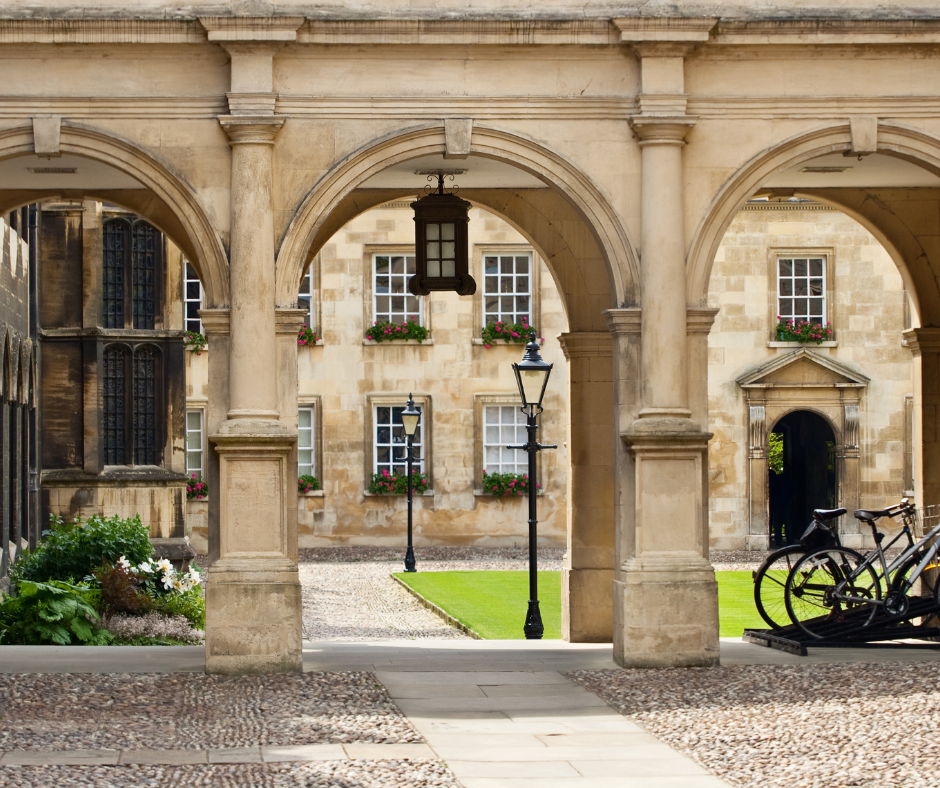
Stanford University’s Creative Writing MFA program is notable for its unique fellowships and focus on creative innovation. The program offers significant financial support and resources, allowing writers to fully immerse themselves in their craft, whether that be fiction, poetry, or another form of creative writing. Stanford’s commitment to creative experimentation and innovation provides an ideal environment for writers looking to push the boundaries of their work.
University of Oregon
The University of Oregon’s MFA program is committed to teaching excellence and provides a supportive learning environment for aspiring writers. The program emphasizes both the artistic and professional aspects of writing, preparing students for a career in the literary world. With a focus on mentorship and development, the University of Oregon offers a nurturing space for writers to grow and succeed.
Other MFA Creative Writing Programs in the United States

Below is a selection of additional notable programs to give creative writing students a broader sense of the options available. Keep in mind this is not exhaustive but includes a range of well-regarded programs.
Syracuse University
Syracuse University’s MFA in Creative Writing is renowned for its rigorous, supportive atmosphere and a strong emphasis on teaching. The program is celebrated for its distinguished faculty and has produced a number of successful writers, such as George Saunders, a recipient of the MacArthur Fellowship and author of several acclaimed books, including “Lincoln in the Bardo.”
Vanderbilt University
Vanderbilt’s MFA program is known for its selective nature and intimate workshop environment, focusing primarily on literary fiction. Alumni include Beth Bachmann, a poet whose work has received significant recognition, including the Kate Tufts Discovery Award for her book “Temper.”
University of Pittsburgh
The MFA program at the University of Pittsburgh offers a balance of creative writing and academic study. Among its alumni is poet Terrance Hayes, a National Book Award winner and MacArthur Fellow, known for his innovative use of language and exploration of identity.
University of North Carolina at Greensboro
UNCG’s MFA program is notable for its strong faculty-student relationships and emphasis on personal growth. Notable alumni include Craig Nova, an award-winning author known for his novels, including “The Good Son.”
University of Florida
The University of Florida’s MFA program emphasizes a balance between creative writing and critical analysis. Alumni include Padgett Powell, known for his novel “Edisto,” which was nominated for the American Book Award.
Indiana University
Indiana University’s MFA program is celebrated for its nurturing environment and community of writers. Notable alumni include poet Ross Gay, whose book “Catalog of Unabashed Gratitude” won the National Book Critics Circle Award.
University of Maryland
The MFA program at the University of Maryland offers a diverse range of courses and workshops. Notably, it has produced alumni like Michael Collier, a poet and former director of the Bread Loaf Writers’ Conference.
University of Alabama
The University of Alabama’s MFA program is diverse in its genre offerings, from traditional literary forms to experimental writing. Its alumni include Alina Stefanescu, a Romanian-American poet and author noted for her unique prose style.
Temple University
Temple University’s MFA program is distinctive for its interdisciplinary opportunities, allowing students to engage with various forms of writing and media. A notable alumnus is Liz Moore, author of the acclaimed novel “Heft.”
University of Arizona
The University of Arizona’s MFA program is known for its strong faculty and commitment to student development. Alumni include Ander Monson, a versatile writer known for his essays, poetry, and fiction.
George Mason University
George Mason University’s MFA program offers a well-rounded approach with a diverse faculty. Notable alumni include Jennifer Atkinson, a poet whose work has been widely published and praised.
Louisiana State University
LSU’s MFA program places a strong focus on literary craft and theory. Among its alumni is Moira Crone, a novelist and short story writer recognized for her narrative craftsmanship.
University of Nevada, Las Vegas
UNLV’s MFA program stands out for its international emphasis, offering students a global perspective on literature. Notable alumni include Claire Vaye Watkins, author of “Battleborn,” which received critical acclaim.
Oregon State University
OSU’s MFA program is distinct for its emphasis on community outreach and engagement, preparing students for a career in writing and teaching. Alumni include Marjorie Sandor, an award-winning author known for her short stories and essays.
University of New Hampshire
UNH’s MFA program is recognized for its supportive faculty and commitment to student development. Notable alumni include Tom Barbash, known for his novel “The Last Good Chance.”
Tips for Financing Your Creative Writing Degree

The financial aspect of pursuing a Creative Writing MFA can be significant, with tuition costs varying widely among programs. Many students will require some form of financial aid. Top-tier programs often have higher tuition fees, reflecting their prestigious faculty and comprehensive resources.
However, many of these programs offer a range of scholarships and fellowships to alleviate the financial burden. Scholarships may be merit-based, recognizing exceptional writing talent, while fellowships often provide a stipend for living expenses in addition to tuition waivers.
Some programs, like the Michener Center for Writers at the University of Texas, are known for offering generous funding packages to all students. A few are fully-funded MFA programs. Prospective students should thoroughly research the funding opportunities available at each program to understand the financial commitment required.
Ways to Finance Creative Writing Degrees
Financing an MFA in Creative Writing requires careful planning and exploration of various funding sources. Applicants should start by seeking information on scholarships and fellowships directly from the programs they are interested in, as these can significantly reduce the cost. Additionally, teaching assistantships, where students teach undergraduate classes, can provide a salary and tuition remission.
External scholarships and grants, available through literary organizations and foundations, are also worth exploring. Students should also consider federal and private student loans, though these should be approached cautiously due to the long-term financial commitment they entail. Lastly, maintaining part-time employment or freelance writing during the program can offer financial support and practical experience in the field.
Career Prospects After Graduation

Graduates of Creative Writing MFA programs have a diverse array of career paths available to them, reflecting the versatile skills they acquire during their studies. Many pursue traditional literary careers as novelists, poets, or short story writers, often securing book deals and publishing contracts.
Others find success in related fields such as journalism, publishing, and editing, leveraging their strong writing and critical thinking skills. The digital age has expanded opportunities in content creation, copywriting, and writing for online platforms. Additionally, an MFA degree can lead to academic careers, with graduates taking up roles as educators and professors in universities and colleges.
The broad skill set developed in MFA programs also enables graduates to work in fields like public relations, advertising, and communications, where effective writing and storytelling are highly valued.
Success Stories of Alumni in Various Writing and Academic Fields
The success stories of MFA alumni highlight the potential for diverse and fulfilling careers in writing and academia. Numerous alumni have achieved critical and commercial success as authors, with their works published by prestigious publishing houses and translated into multiple languages.
For instance, alumni from programs like the Iowa Writers’ Workshop and Columbia University have gone on to win major literary awards, including the Pulitzer Prize and the National Book Award. In the academic realm, many MFA graduates hold faculty positions at universities, contributing to literary scholarship and nurturing the next generation of writers.
Success is also evident in the digital space, with graduates excelling as content creators, bloggers, and digital marketing professionals.
Admission Requirements and Tips

Admission to Creative Writing MFA programs typically involves several key components. Foremost are writing samples, which are the most critical part of the application. These samples, either in the form of poetry, fiction, or non-fiction, should showcase the applicant’s unique voice and skill. Letters of recommendation are also required, generally from individuals familiar with the applicant’s writing and academic abilities, like former professors or mentors.
A statement of purpose or personal essay is another crucial element, where applicants articulate their reasons for pursuing an MFA, their literary influences, and their career aspirations. Additionally, most programs require transcripts from previous academic institutions to assess the applicant’s academic background. Some programs may also request a resume or CV, highlighting relevant experiences and achievements.
If you are pursuing a terminal degree in creative writing, you might need to provide further information.
Advice on How to Prepare a Strong Application
To prepare a strong application for a Creative Writing MFA program, candidates should focus foremost on their writing samples. These should be carefully selected and refined to reflect the applicant’s best work, showcasing originality, technical skill, and a clear artistic vision.
Letters of recommendation should come from individuals who can speak to the candidate’s potential as a writer and commitment to the craft. The statement of purpose needs to be well-crafted and thoughtful, clearly conveying the applicant’s goals and reasons for choosing the specific program. It’s beneficial for candidates to familiarize themselves with the faculty and ethos of the program to tailor their application accordingly.
Lastly, applicants should ensure all components of their application, including transcripts and resumes, are complete, accurate, and presented professionally, adhering to each program’s specific requirements and deadlines.
The Future of MFA Programs

The landscape of creative writing education, particularly within MFA programs, is continually evolving with emerging trends that reflect broader cultural and technological shifts. A notable trend is the increasing emphasis on diverse voices and global perspectives in writing, encouraging inclusivity and representation in literary works.
Additionally, there is a growing focus on interdisciplinary approaches, where students explore the intersection of writing with other art forms like digital media, film, and visual arts. Environmental and social justice themes are also becoming more prevalent, as writers engage with pressing contemporary issues. Furthermore, the rise of genre fiction, such as fantasy and science fiction, marks a departure from traditional literary norms, expanding the scope of creative exploration within these programs.
Impact of Digital Media and Online Learning Platforms on MFA Programs
Digital media and online learning platforms are significantly impacting MFA programs, transforming how writing is taught, shared, and published. Online platforms have made MFA programs more accessible, allowing for a broader range of participants, including those who may not be able to attend in-person due to geographical or financial constraints.
These platforms facilitate a more collaborative and interactive learning environment where students can easily share work and receive feedback. The rise of digital media also encourages writers to explore new forms of storytelling, such as interactive fiction and digital narratives. However, this shift poses challenges, including the need to adapt teaching methods for the digital realm and ensuring that the depth and quality of mentorship and peer interaction are maintained in an online setting.
Final Thoughts on Attending Graduate School for Creative Writing

Pursuing an MFA in Creative Writing in the U.S. presents a unique opportunity for individuals to refine their writing craft, connect with a community of like-minded peers, and launch a successful career in the literary world. The value of these programs extends beyond technical skill development. They serve as incubators for creativity, thought leadership, and cultural contribution.
Design Dash
Join us in designing a life you love.
How to Clean Solid Gold and Gold-Plated Jewelry at Home
Our step-by-step guide will show you how to clean gold jewelry with gentle methods that won’t scratch the soft metal or loosen stones.
The Psychology Of Color: Red In Interior Design, Branding, And Beyond
From traffic lights to portraits of Cardinals, red color psychology evokes everything from impending danger to valor to desire to sacrifice.
Fractional Art Investing Platforms That Democratize a Notoriously Exclusive Market
These fractional art investing platforms offer a more accessible entry point for high-value pieces that were historically out of reach.
What is Fractional Real Estate Investing, and Is It Truly Accessible?
Let’s explore the mechanics of fractional real estate investing, outline its pros and cons, and compare it to other investment options.
13 Project Management Tools with Invoicing Features to Ensure You Get Paid
From all-in-one platforms like Teamwork to accounting software like FreshBooks, these project management tools have invoicing features.
It’s International Caps Lock Day, So Here’s a History of the Keyboard.
While we celebrate International Caps Lock Day—a parody holiday—let’s explore an abridged history of the keyboard itself.
Dee Dee Vogt
I found this article timely and enlightening. I will be entering an MFA Creative Writing program at Belmont University in Nashville in 2024 and the article opened my mind about ways in which I might maximize the experience. Thank you for the inspiration!
Elizabeth Burton
We are so happy to hear that you gained useful information from this article. Please keep us posted on your journey! Best of luck in your program.
Comments are closed.
Related Posts

Our Networking Tips for Creative Entrepreneurs
Banish networking anxiety and make valuable connections no matter wher

Design Your Life with Intention: A Letter from Our Founders
Curiosity. Creativity. Connection. Beauty. Wonder. Growth.
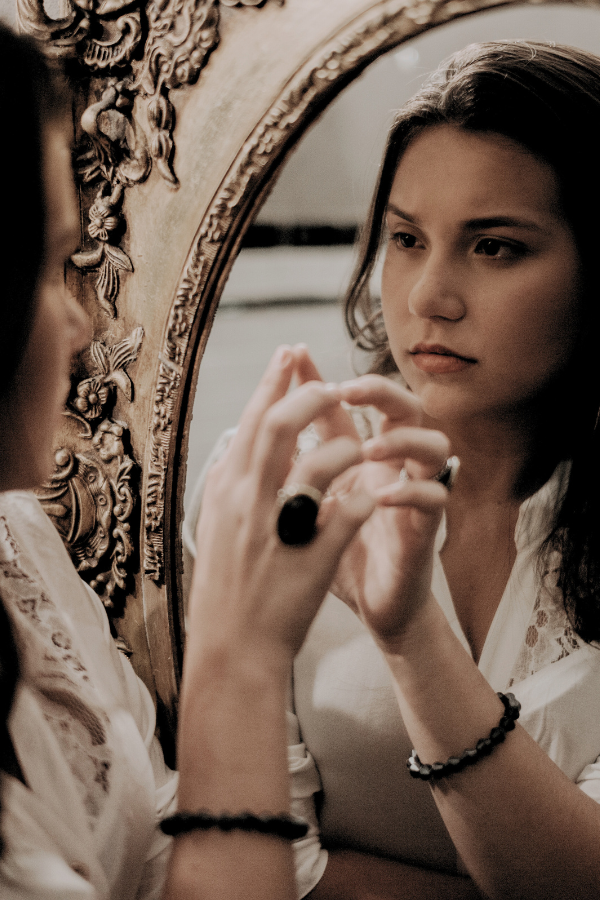
Dealing with Imposter Syndrome as a Creative Woman
Never let self-doubt hold you back.

How to Balance Perspectives and Personalities at Your Design Firm
Balance perspectives and personalities so your firm thrives and no one

Self-Care for Success: How to Support Your Mental Health as a Creative Entrepreneur
Being an entrepreneur is rewarding, but it comes with challenges. Lear
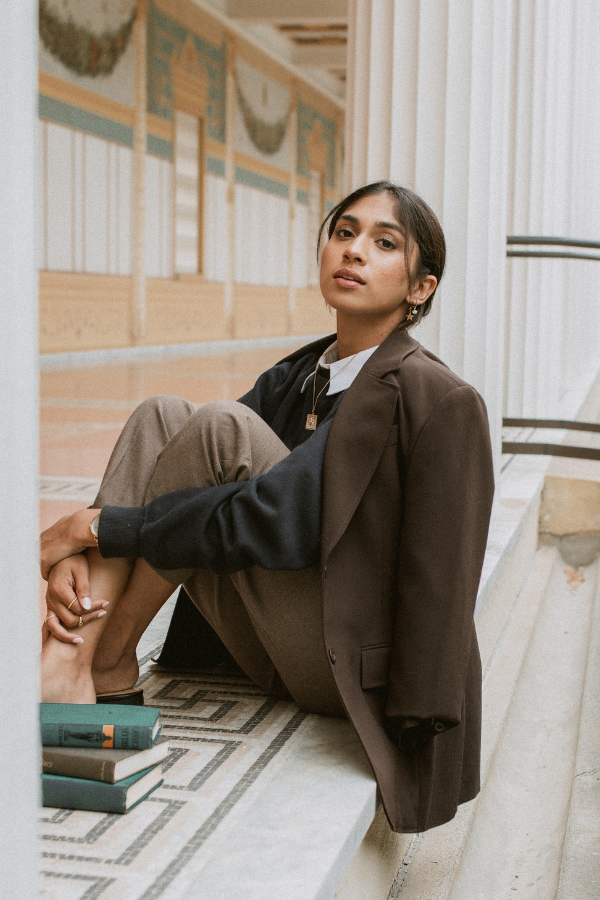
Gorgeous Interior Design Books for Endless Inspiration
With gorgeous photography, tidbits from design history, and a peek ins
We believe that all creatives must pursue their curiosity, wherever it takes them. Satisfy your wanderlust with a curated journal of the beauty that surrounds us in art, travel, wellness, and design.
Sign up for Newsletter
Exciting news.
We're thrilled to announce that we're gearing up to launch our journal and members portal soon! Our team is hard at work behind the scenes, bringing you a dynamic platform to enhance your experience with us. Stay tuned for updates as we progress towards this exciting milestone. Thank you for your patience and support!
Not a member? Register
Registration form placeholder
Already a member? Log In
Become a part of the DesignDash community.
Register with us to:.
Save Your Read History
Earn Reward Points
Earn Badges For Comments
Become Topic Expert
Skip to Content
- Prospective Students
- Current Students
- Creative Writing
- News & Events
Other ways to search:
- Events Calendar
The Department of English has moved from Hellems and Denison to Muenzinger . The main office is in Muenzinger D110.
- MFA in Creative Writing
The MFA in Creative Writing challenges students to write in a variety of genres and to study literature from the point of view of a working writer. Recent graduates have become not only published authors of fiction, nonfiction, poetry, plays, and screenplays, but also journalists, editors, publishers, and college-level and secondary-level teachers. The degree program culminates in the submission and oral defense of a creative thesis in poetry or fiction. Students may develop custom programs in non-fiction and scriptwriting with available faculty with secondary interests in those genres. The MFA in Creative Writing is designed as a three-year degree program that values literary study, innovation and writing that tests the limits of conventional forms.
Request Graduate Information
Admission Requirements
- Complete and up-to-date admission requirements can be found on our A dmissions page.
- Check how to complete and submit an online application . Please do not send application materials to the English Department.
Teaching assistantships (TAs), Graduate Part-time Instructorships, various graduate level awards are available to MFA students on a competitive basis. The department funds about 70% of accepted MFA applicants each year. Students applying for admission to the program do not need to apply separately for teaching assistantships.
MFA students who are TAs and GPTIs teach creative writing courses only (not composition or literature). If offered a teaching appointment upon admission, you can expect:
- During the first academic year, a Teaching Assistant (TA) is paid a monthly stipend set by the Graduate School. Based on the 2020-2021 rates, first-year TAs are paid approximately $5,695.36 with a tuition credit waiver of five (5) in-state or out-of-state tuition credits each semester. As a first-year TA, you will be responsible for leading one (1) section of ENGL 1191 Introduction to Creative Writing in the fall semester and one (1) section of ENGL 1191 Introduction to Creative Writing in the spring semester.
- After your first year of satisfactory teaching and academic performance, you will be promoted from a TA to Graduate Part-time Instructor (GPTI). Contingent upon course enrollment and availability, your funding offer will increase to three (3) sections of Creative Writing during your Second-Year Teaching Graduate Part-time Instructorship (GPTI) and Third-Year Graduate Part-time Instructorship (GPTI). Based on the current 2020-2021 rates, the compensation for one semester at one (1) course assignment at the GPTI-rate is approximately $6,582.60 with a tuition credit wavier of five (5) in-state credit hours. The compensation for a second semester of two (2) course assignments at the GPTI rate is estimated to be approximately $13,165.19 with a tuition credit waiver of 9-18 hours of in-state tuition credits.
- MFA TAs and GPTIs also receive a 90% contribution towards the cost of the CU Boulder Student Gold Health Insurance premium each semester as part of their compensation.
Tuition Remission for Teaching Assistantships:
Students with teaching assistantships are responsible for paying the cost of tuition for any credit hours taken in excess of what their waiver covers each semester. For example, if the TA compensation includes a waiver for 5 credit hours, and you enroll in 6 credit hours, you will be responsible for paying the difference in tuition cost between 5 and 6 credits. Non-resident students will be charged out-of-state tuition rates. Resident students will be charged in-state tuition rates. Tuition waivers may not be carried over between terms, and must be used in the same semester as the qualifying appointment
In addition to teaching assistantships, there are a limited number of paid positions available, such as reading series organizer, lead GPTI and hourly office assistants. Other resources for financial support include:
- The Office of Student Employment
- CU Graduate School Fellowships and Grants
- National Fellowships
- The Office of Financial Aid
- Tuition and fees estimator : Out-of-state students who receive teaching assistantships must pay the non-resident tuition rate for or any credits not covered by their tuition waiver.
Students must take 45 hours of coursework (15 courses). At least 39 hours must be taken at CU Boulder. With approval from the Associate Chair for Creative Writing, up to 6 hours of coursework may be taken in departments other than English. A requirement may be waived if a student has taken an equivalent graduate course at another institution; waivers must be approved by the Associate Chair for Creative Writing. Coursework must be taken in the following areas:
- 4 courses (12 credits) of writing workshops (fiction, nonfiction, poetry, publishing) (The publishing workshop may be taken two times for credit.)
- 4 courses (12 credits) in literature (Literature courses may be taken in other graduate departments with the approval of the Associate Chair for Creative Writing.)
- 2 courses (6 credits) in two of the following: Studies in Poetry; Studies in Fiction; Studies in Literary Movements
- 2 courses (6 credits) of electives. This may include courses from other departments with the approval of the Associate Chair for Creative Writing.
- 9 credits of thesis writing. Thesis hours may not be taken in the first year.
MFA students have four years from the semester in which they begin coursework to complete all degree requirements. To continue past four years, you must file a petition for an extension of the time limit with the Dean of the Graduate School. Such petitions must first be submitted for endorsement to the English Department Associate Chair for Creative Writing. Extensions may be granted for up to one year.
All MFA-Creative Writing students must complete a thesis as part of the degree requirements. The thesis should be a book of poetry, short stories, literary/creative non-fiction, or a substantial portion of a novel, play, or screenplay. It may also be a combination of these genres. The thesis should be at least 70 pages in length, though most students write between 70-100 pages. The bulk of work used in a thesis should have been written while a student is enrolled in the MFA-Creative Writing program, and it should be in a form acceptable to the committee. The thesis must include an abstract (1 to 3 pages) that states the writer’s aims and explains how the thesis reflects those aims. See the APPENDIX in the Graduate Student Handbook for the MFA-CRWR Thesis Action Item Checklist which includes deadlines and a suggested schedule.
MFA-Creative Writing students take a total of nine thesis hours in one or more semesters. The student should select a committee of three faculty (the advisor, who is a Creative Writing faculty member; one other Creative Writing faculty member; and a faculty member in literary studies) during the semester prior to that in which she or he will defend the thesis. A rough draft of the thesis should be made available to the advisor prior to the thesis defense so that problems may be discussed at an early enough date to enable the student to work on them. The advisor will work with the student, advising on length of manuscript, suggestions for improvement, and general compilation. The advisor and the student will also agree on a reading list about which the student may be questioned at the defense.
A thesis defense must take place before the semester’s deadline for completing defenses (see the Graduate School’s website for a list of semester deadlines ). You must give your completed thesis to your entire committee and file a Master’s Examination Report at least two weeks in advance of your defense. Consult the Graduate Program Assistant for Assistance with the process. Please see the Graduate Student Handbook for additional defense requirements.
Thesis Submission & Format for MFA Degrees
The final draft of the MFA thesis must be submitted to the Graduate School by the applicable deadline and must comply with the Graduate School’s specifications for theses and dissertations. See information for the Master Graduation Requirements (thesis option). It is required that you include all parts of the stipulated thesis (title page, signature page, abstract, table of contents, bibliography, etc.). It is also suggested that students ask the Graduate School to pre-check the format of the thesis before submitting the final copy. To do so, email a copy of your thesis to [email protected] .
Students earning the MFA in Creative Writing must complete a foreign language requirement, either before or after enrolling at CU Boulder, prior to the semester in which they intend to graduate. The requirement may be fulfilled in one of the following ways:
- Complete a fourth-semester (second-semester sophomore) college language course with a grade of C or better. This means completing a course that is the second semester of a sophomore-level foreign language. If you have completed or will complete this coursework at another institution, the Graduate Program Assistant will need a record of it your file if it is not part of your original application. Completion of only freshman-level language courses does not qualify as evidence of competence.
- Complete two semesters of Old English (ENGL 5003, ENGL 5013, ENGL 5023).
- Demonstrate proficiency in one foreign language by taking the appropriate language proficiency exam administered at least once each semester by the English department. For uncommon languages, students may be asked to make independent arrangements for their exam. The language exam consists of translating a text written in a foreign language into written English, utilizing English language sentence structure. The text is on the reading and comprehensive level of a fourth-semester student of the chosen language. Students are given two hours to complete the translation and the exam is open-book, open computer.
- Present other evidence of competence in a foreign language to the Associate Chair for Graduate Studies. In most cases, this other evidence consists of native or near-native command of a language.
For additional information about satisfying the language requirement, see the English Department Graduate Program Handbook .
For additional information about the language exam, see the FAQ for the Language Proficiency Exam .
The semester in which you plan to graduate, the Candidacy Application for an Advanced Degree must be submitted by the stipulated deadline, which is generally in the third or fourth week of classes. The Candidacy Application confirms that all degree requirements will have been completed by the end of the semester, and it be approved by the Associate Chair for Creative Writing. Please consult the Graduate Program Assistant for assistance with this process.
All students planning to graduate must apply online to graduate . This step must be completed by the published graduation deadline for each semester, regardless of whether or not you plan to attend the commencement ceremony. To do this, log in to your Buff Portal account. On the apply for graduation card, select the “Apply for Graduation."
- Undergraduates
- MA in Literature
- PhD in Literature
- Forms & Additional Information
- Graduate Scholarships & Awards
- Graduate Student Life
- Career Support and Alumni Success
Master of Fine Arts in Creative Writing The Write Stuff for Writers

Credit Hours
View Courses
100% online, 8-week courses
Transfer in up to 50% of the degree total
Grow Your Writing Passion into a Career with Liberty’s Online MFA in Creative Writing
Many people write creatively, but few hone their skills to develop their writing craft to its highest form. Even fewer learn the other skills it takes to become a successful writer, such as the steps needed to get a book published and into the hands of readers. Liberty’s 100% online Master of Fine Arts (MFA) in Creative Writing can help you develop your writing passion into a career so you can set your works free to impact culture and the world.
Employers in every industry need professionals who have strong writing skills, so you can be confident that your ability to write effectively can also help set you apart in your current career. With in-demand writing expertise and the ability to customize your degree with electives in literature or writing practice, Liberty’s online MFA in Creative Writing can help you achieve your professional writing goals.
Our online MFA in Creative Writing is designed to help you build on your writing skills with specific workshops dedicated to the craft of fiction, poetry, creative nonfiction, or screenwriting. With a work-in-progress approach to writing practice and mentorship from our faculty of experienced writers and scholars, you can learn the specific skills you need to make your writing stand out.

Ranked in the Top 10% of Niche.com’s Best Online Schools in America
- What Sets Us Apart?
- Private Nonprofit University
- 600+ Online Degrees
- No Standardized Testing for Admission
- Transfer in up to 75% of an Undergrad Degree
- Transfer in up to 50% of a Grad/Doctoral Degree
Why Choose Liberty’s MFA in Creative Writing?
Our online MFA in Creative Writing is mainly offered in an 8-week course format, and our tuition rate for graduate programs hasn’t increased in 9 years. Through our program, you can study the writing process and develop your creative skills through workshops with experienced writing professionals. With our flexible format, you can grow in your creative writing while continuing to do what is important to you.
As a terminal degree, the online MFA in Creative Writing can also help you pursue opportunities to teach writing at the K-12 or college level. You will gain comprehensive and in-depth exposure to writing, literature, publishing, and many other professional writing skills that you can pass on to students. Partner with the Liberty family and learn under faculty who have spent years in the field you love. Your career in professional writing starts here.
What Will You Study in Our MFA in Creative Writing?
The MFA in Creative Writing program is designed to help you become an excellent creative writer across the genres of creative fiction, nonfiction, screenwriting, and poetry. You can learn how to produce aesthetically and culturally engaged creative works while gaining professional knowledge and practice. You will also study foundational contemporary literature so that you have a background in studying important works to draw on for your writing.
To help you in your professional writing, you will also study many essential skills in editing, layout, and the business of publishing so that you can best position yourself for success in the market. Through your creative writing courses and workshops, you can develop your craft so that you will be ready for your thesis project.
Here are a few examples of the skills Liberty’s MFA in Creative Writing can help you master:
- Marketing your projects and pursuing new writing opportunities
- Organizing writing and adapting it to different types of writing
- Tailoring writing to specific audiences and markets
- Understanding what makes art effective, compelling, and impactful
- Writing compelling stories that engage readers
Potential Career Opportunities
- Book and magazine writer
- Business communications specialist
- Creative writing instructor
- Publications editor
- Screenwriter
- Website copy editor and writer
- Writing manager
Featured Courses
- ENGL 600 – Editing, Layout, and Publishing
- ENGL 601 – Writing as Cultural Engagement
- ENGL 603 – Literary Theory and Practice
- WRIT 610 – Writing Fiction
Degree Information
- This program falls under the College of Arts and Sciences .
- View the Graduate Arts and Sciences Course Guides (login required) .
- Download and review the Graduate Manual for MFA .
Degree Completion Plan (PDF)

Not sure what to choose?
Speak to one of our admissions specialists to help you choose the program that best fits your needs.
- Tuition & Aid
Your success is our success, which is why we are committed to providing quality academics at an affordable tuition rate. While other colleges are increasing their tuition, we have frozen tuition rates for the majority of our undergraduate, graduate, and doctoral programs for the past 9 years – and counting.
| Graduate Full Time | |
|---|---|
| Graduate Part Time | |
| Military Graduate |
All Tuition & Fees
Financial Aid & Scholarships
Financial Aid Forms & Eligibility
Scholarship Opportunities
Admission Information for the Master of Fine Arts in Creative Writing (MFA)
Admission requirements.
- A non-refundable, non-transferable $50 application fee will be posted on the current application upon enrollment (waived for qualifying service members, veterans, and military spouses – documentation verifying military status is required) .
- Unofficial transcripts can be used for acceptance purposes with the submission of a Transcript Request Form .
- Creative Writing Sample – A creative writing sample of one creative writing work of at least 2,500 words or a culmination of creative writing samples totaling 2,500 words.*
- Applicants whose native language is other than English must submit official scores for the Test of English as a Foreign Language (TOEFL) or an approved alternative assessment. For information on alternative assessments or TOEFL waivers, please call Admissions or view the official International Admissions policy .
*A sample of one or more poems totaling a minimum of 750 words may also be submitted. Song lyrics are not accepted at this time as writing samples.
Preliminary Acceptance
If you are sending in a preliminary transcript for acceptance, you must:
- Be in your final term and planning to start your master’s degree after the last day of class for your bachelor’s degree.
- Complete a Bachelor’s Self-Certification Form confirming your completion date. You may download the form from the Forms and Downloads page or contact an admissions counselor to submit the form on your behalf.
- Submit an official/unofficial transcript to confirm that you are in your final term. The preliminary transcript must show a minimum of 105 completed credit hours.
- If you are a current Liberty University student completing your undergraduate degree, you will need to submit a Degree/Certificate Completion Application .
- Send in an additional, final official transcript with a conferral date on it by the end of your first semester of enrollment in the new master’s degree.
Dual Enrollment
Please see the Online Dual Enrollment page for information about starting graduate courses while finishing your bachelor’s degree.
Transcript Policies
Unofficial college transcript policy.
Unofficial transcripts combined with a Transcript Request Form can be used for admission. Official transcripts are required within 60 days of the admissions decision or before non-attendance drops for the first set of matriculated classes, whichever comes first, and will prevent enrollment into future terms until all official transcripts have been received.
Before sending unofficial college transcripts, please make sure they include the following:
- Your previous school’s name or logo printed on the document
- Cumulative GPA
- A list of completed courses and earned credit broken down by semester
- Degree and date conferred (if applicable)
Official College Transcript Policy
An acceptable official college transcript is one that has been issued directly from the institution and is in a sealed envelope. If you have one in your possession, it must meet the same requirements. If your previous institution offers electronic official transcript processing, they can send the document directly to [email protected] .
If the student uses unofficial transcripts with a Transcript Request Form to gain acceptance, all official transcripts must be received within 60 days of the admissions decision or before non-attendance drops for the first set of matriculated classes, whichever comes first. Failure to send all official transcripts within the 60-day period will prevent enrollment into future terms until all official transcripts have been received.
Admissions Office Contact Information
(800) 424-9596
(888) 301-3577
Email for Questions
Email for Documents
Liberty University Online Admissions Verification
1971 University Blvd.
Lynchburg, VA 24515

Ready to Apply?
Submit your application online or over the phone.
Apply by phone: (800) 424-9595
Liberty University is dedicated to providing world-class educational experiences to military students across the globe.
Who May Qualify?
- Active Duty
- Reserve/National Guard
- Veterans/Retirees
- Spouses of Service Members and Veterans/Retirees
- Current Department of Defense Employees
Available Benefits:
- Tuition discounts – $275 per credit hour for graduate courses
- Additional discount for veterans who service in a civilian capacity as a First Responder (less than $625 per course) *
- 8-week courses, 8 different start dates each year, and no set login times (may exclude certain courses such as practicums, internships, or field experiences)
*Not applicable to certificates.
Frequently Asked Questions
What is an mfa in creative writing.
A Master of Fine Arts degree, or MFA, is a terminal degree in an artistic craft that demonstrates that you have achieved the highest level of training and skill in your discipline. Like a doctorate, an MFA often allows you to teach courses at the graduate level while also providing many opportunities for scholarship and leadership in education. If you want to grow your creative writing skills to become the best writer you can be, then the Master of Fine Arts can help you get there.
How will students work towards developing their writing skills?
With creative writing workshops and a thesis project, you will receive support and guidance to help you become the best writer you can be.
How long will it take to complete the MFA in Creative Writing?
You can complete the MFA in Creative Writing in just 48 credit hours!
Inner Navigation
- Why Choose Liberty?
- What Will You Study?
- Admission Information
Have questions?

Are you ready to change your future?
Apply FREE This Week*
Request Information
*Some restrictions may occur for this promotion to apply. This promotion also excludes active faculty and staff, military, non-degree-seeking, DGIA, Continuing Education, WSB, and certificate students.
Request Information About a Program
Request info about liberty university online, what program are you interested in, choose a program level.
Choose a program level
Bachelor’s
Master’s
Certificate
Select a Field of Study
Select a field of study
Select a Program
Select a program
Next: Contact Info
Legal first name.
Enter legal first name
Legal Last Name
Enter legal last name
Enter an email address
Enter a phone number
Full Address
Enter an address
Apt., P.O. Box, or can’t find your address? Enter it manually instead .
Select a Country
Street Address
Enter Street Address
Enter State
ZIP/Postal Code
Enter Zip Code
Back to automated address search
Start my application now for FREE
MFA Programs
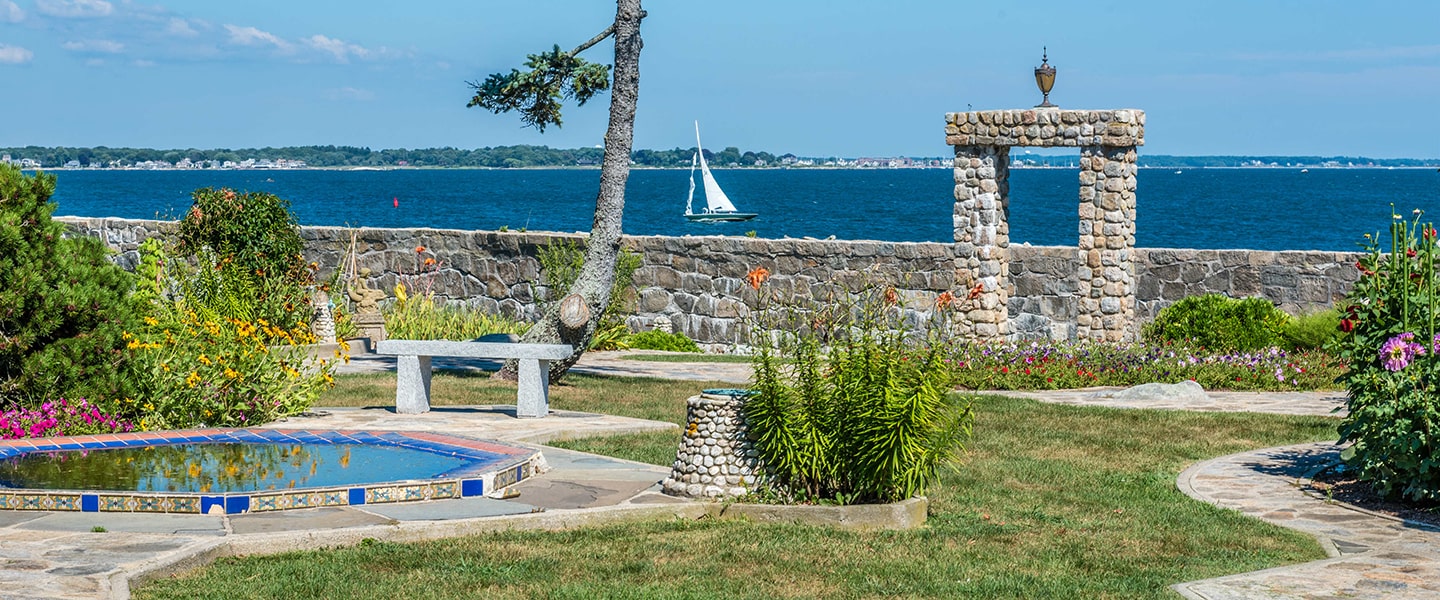
MFA in Creative Writing
Request more information, on this page, more about the program, teaching opportunities, accelerated master's degree, mfa book prize, causeway lit, program overview.
If you have dreams of writing a book, Fairfield University's low-residency MFA in Creative Writing can help you make those dreams into reality. In the past three years, our alumni and students have published over 80 books, in addition to hundreds of articles, essays, stories, and poems. Our concentration in publishing/editing has helped students get internships and jobs at magazines and publishing houses alike.
As a student in our program, you can pursue the study of fiction, poetry, nonfiction, and screenwriting. Within these genres you can pursue concentrations in publishing/editing, spiritual writing, or literary health and healing.
Students gather for our convenient semiannual residencies on beautiful Enders Island in Mystic, Connecticut. While highly rigorous, the program can be tailored to suit your individual writing goals, and allow you to learn from a faculty made of nationally recognized writers. The most promising writer in each residency applicant pool will be awarded the prestigious $5,000 MFA Fellowship .
Our alumni have been up to some great things since graduating, including the creation of AfterEnders , a website dedicated to fostering a lifelong community for the Fairfield University MFA in Creative Writing family. The site offers past, present and future students a unique blend of practical advice and creative inspiration based on the personal experience of MFA graduates or faculty members.
No matter which writing path you pursue, you’ll receive the support and guidance of our award-winning faculty during the one-on-one mentoring sessions, as well as many opportunities to collaborate during on-campus activities and online - illustrating our commitment to your well-being and success.
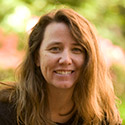
Carol Ann Davis
Professor of English
Director, Fairfield's MFA in Creative Writing
843-814-7159
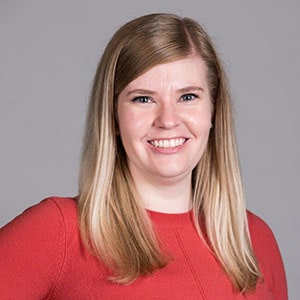
Eva Magnuson

Certificate in Creative Writing
The MFA in Creative Writing program now offers a year-long intensive certificate program titled The Prologue. As an introduction to the MFA program, The Prologue is a 12 credit post-baccalaureate program that provides creative writers of all levels with two semesters of rigorous, graduate-level one-on-one mentorship to help them jumpstart or finish a book-length project.
The Residency
Fairfield University's MFA in Creative Writing Program involves exciting, bi-annual, nine-day residency periods at Enders Island, an inspirational retreat located off the coast of Mystic, Connecticut. Each residency brings together a uniquely talented group of faculty, guest writers, students, editors and agents that work, learn and have fun together while practicing and discussing the subtleties of writing and craft.

Students & Alumni
Fairfield's MFA students and alumni may be in their 20's or 80's or anywhere in between - but once they share a handful of residences at Enders Island, they are bonded for life. To help them stay connected, informed and inspired, we offer a variety of engaging resources.

Fairfield University's MFA faculty are experienced and published authors, who work closely with graduate students to provide academic advice and individualized attention that makes their experience as productive as it is rewarding.
Concentrations
MFA students may concentrate in one genre such as poetry, fiction, creative nonfiction or screenwriting, or they may have a dual concentration in two of these genres. Since it is felt that working in more than one genre can benefit the writer’s development, students are encouraged to work outside their main genre for a workshop or even an entire semester.
Inspired Writer Series
Fairfield University’s Inspired Writer Series series was initiated as a companion to the MFA program and celebrates the program’s concentrations in fiction, creative nonfiction and poetry with a rotation of exemplary guest authors.

Browse videos of recent seminars and readings to experience the breadth, originality and excellence of our Enders Island residencies.
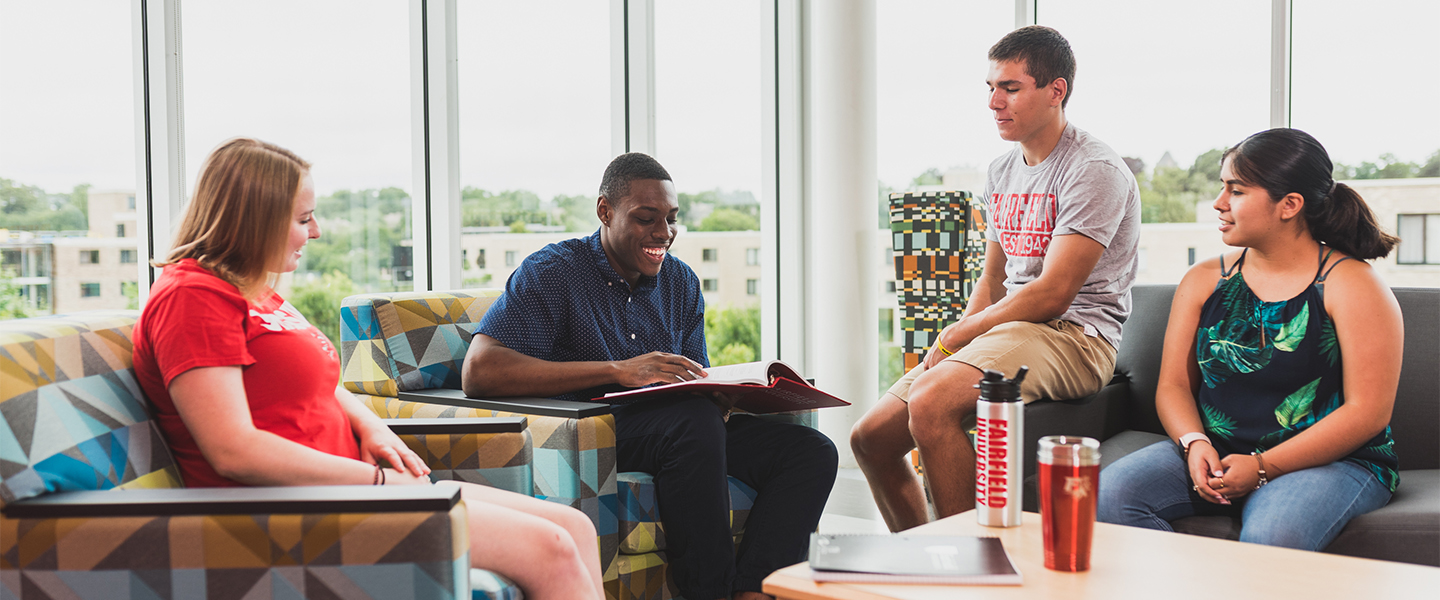
Diversity and Inclusive Excellence
Admission requirements for the MFA in Creative Writing are based on certain criteria and are outlined in detail for your convenience.
Teaching options for MFA graduates span a range of opportunities. The potential MFA students should be aware that due to changes in higher education, the full-time position teaching creative writing at a university has become a challenging position to obtain, often requiring a book publication as well as prior teaching experience. MFA graduates who are interested in teaching will be mentored to consider the full range of teaching options if this career fits their interests. MFA students are qualified to serve as adjunct instructors at the college level. Our graduates have also transitioned into careers teaching writing at the high school level as well as designing and staffing innovative community-based writing programs.
Students within the program can choose a pedagogy track for their experience within the MFA. This involves serving as a Teaching Assistant to a graduate level workshop during their final residency with one of the faculty mentors. In addition, students can invest time in other options within this track. Students who live within the Fairfield area may also apply to serve as a teaching assistant for an undergraduate creative writing course taught at Fairfield; during this experience they meet with the professor on a regular basis to discuss pedagogy and observations, and reflect upon their own teaching goals and philosophies. Many of the students who select the TA experience also complete a pedagogy project, which is an in-depth research experience on the teaching of writing that culminates in a 35-page academic paper, often weaving in evidence from the TA experience or a community-based educational project. These third-semester projects, which earn 9 credits toward the degree, are developed as part of the MFA curriculum and are discussed in depth with a program mentor. The completion of the pedagogy track will also be noted on the applicant's CV.
The MFA program in collaboration with First-Year Writing and the Fairfield Writing Center augment our MFA students' pedagogical backgrounds. Fairfield MFA students living in the Fairfield area have the opportunity to apply to serve as paid teaching assistants in the University Writing Center, an opportunity to develop expertise in the fields of teaching and editing.
Eligibility
- Full-time, matriculated students of ANY major and school may apply to the MFA in Creative Writing Program
- GPA of 3.2 or higher
- Completion of at least 96 credits prior to the start of fall senior year
Admission Requirements
- Online application available at fairfield.edu/applynow
- $60 admission fee (waived for current students)
- Fairfield University transcript (obtained by the Office of Graduate Admission)
- A letter of recommendation
- Personal statement
- Copy of resume
- Writing sample
- Current undergraduates should speak to their academic advisor during their junior year to express interest in the accelerated program.
- These classes will be covered through full-time undergraduate tuition (with the exception of the MFA Winter Residency which is an additional tuition charge).
- Graduate classes cannot count towards fulfillment of the undergraduate degree.
- During their senior year, students should submit an official graduate application to gain admission to the full graduate program.
Other Admission Options
Learn about our new Prior Learning Assessment (PLA) option, where highly qualified students can receive up to one full semester credit for the work they have already written or published. Students receiving the PLA can finish the MFA in three semesters instead of four.
Fairfield University’s MFA program is one of the very few MFA programs in the country to offer its students the unique opportunity to win a professional book contract. The Fairfield Book Prize is awarded every two years to a Fairfield University MFA student or alumni who has entered an original and compelling book-length manuscript to its contest. The finalists are judged by a writer of national distinction, and the author of the winning manuscript is awarded a $1,000 prize, a standard royalty book contract, and publication by Woodhall Press , who will edit, publish, distribute, and market each prize-winning book.
Woodhall Press is an independent publisher founded by three Fairfield University MFA alumni, Colin Hosten, David LeGere, and Christopher Madden.
Fairfield MFA Book Prize Winner: Summer 2019
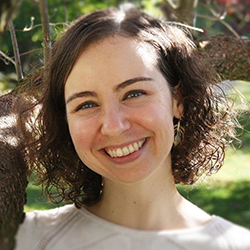
Brooke Adams Law
Brooke Adams Law’s Catchlight is a beautiful, moving novel of a family in transition, struggling with loss and disease and addiction, but also with new possibilities for redemption and renewal and love. Law steadily draws the reader in to the complex and closely observed emotional ties that bind brothers and sisters together, as well as those that keep them separate. She asks us whether we can find joy in the midst of grief, and whether we can make art out of pain, and then she shows us how that is done.
Guest Judge: Phil Klay Publisher: Woodhall Press
Previous Fairfield MFA Book Prize Winners
Susan Smith Daniels
2017 Winner
The Genuine Stories
Guest Judge: Meghan Daum
Lynne Heinzmann
2015 Winner
Frozen Voices
Guest Judge: Richard Hoffmann
Chris Belden
2013 Winner
The Floating Lady of Lake Towaba and Other Stories
Guest Judge: Dani Shapiro
Nick Knittel
2011 Winner
Good Things
Guest Judge: Charles Simic
Causeway Lit is an online literary journal sponsored by Fairfield University's MFA in Creative Writing and a collaborative effort among graduate students in the program. Hands-on publishing opportunities exist on the Editorial, Production, and Marketing teams.
- Be exposed to the editing and publishing process
- Cultivate your editorial skills needed to improve your own creative writing
- Foster dialogue about the writing craft
- Learn about the marketing and production side of publishing
- Stay on top of trends in the publishing industry
- Expand your writing community beyond the program cohort
- Have hands-on experience to add to your resume
- Foster global citizenship and diversity through an interactive, engaged, international web audience
- Reading through submissions from emerging and seasoned writers from around the world
- Evaluating writing craft
- Recommending selections
- Contacting authors
- Suggesting edits
- Working closely with the contributors and each other to produce publishable material
- Wordpress and html training
- Posting, formatting, and proofreading poetry, fiction, creative non-fiction, drama, and author bio pages
- Photo formatting and publishing
- Drafting and distributing news releases surrounding new issues and events for Mason's Road
- Writing blog posts that stir up interest to a web audience
- Using Facebook and Twitter to publicize the journal
- Organizing reading events, poetry slams, and multi-genre activities in the local community
- Developing and distributing printed materials promoting the journal
- Working the AWP booth
Leadership positions include Editor-in-Chief and Genre Editor roles for the editorial side, and a Managing Editor position for the publishing side. An internship for the Managing Editor role is available as a third semester project through an application process.
Causeway Lit is published twice a year, coinciding with our Enders Island residencies in July and December/January. For more information, visit causewaylit.com .
Degree Questions
You will need to submit a portfolio of work, including a writing sample (20 pages for prose, 6-8 poems for poetry), two letters of recommendation, and a two-page personal statement. In addition, you will need to submit a transcript of your undergraduate work. However, the heaviest emphasis is placed on the creative writing sample.
No. Most of our students have families and careers. However, it is expected that you will commit 25 hours a week working on your writing.
You must apply to be admitted in one of three main genres - fiction, poetry, or nonfiction. For fiction, while the writer may work in any form, style, or sub-genre - including experimental, historical, scifi, or mystery - the work must have certain basic literary qualities (i.e., interesting and original language, well-developed characters, plots that avoid cliches). After admittance, if you would like to switch genres, you must submit a writing sample in a second genre to the director. However, for the creative thesis, most students will need to select one of the three genres. In special cases, you may do a combination thesis, but only if two faculty members agree to take on such a project.
Yes. In fact, we encourage it. Many seminars and panels actually have cross-genre themes.
Harriet Doerr published her first novel at the age of 73 and it went on to win the National Book Award. The great thing about writing is that you're never too old to write or to become trained as a writer. Fairfield's low-residency MFA is perfect for the "mature" student. Our student body will range in age from 23 to 75 and will include people from professions and experiences from all walks of life.
No. The only thing we ask is that you've made a serious commitment to writing and that you've been writing for some time. We look much more for commitment than formal training.
No. While some of our students will have published their work, most will not yet be published.
Residency and Faculty Questions
Yes. Since the residency is so important to a writer's development, you must attend each of the five residencies, as well as the fifth graduation residency where you will give a lecture and a public reading of your work.
If you select to stay with us on Enders Island, the MFA staff makes all arrangements, including lodging and meals. You will be responsible for transportation to and from the residency, though we do provide shuttle service from the train station on arrival in Mystic, CT.
At the end of each residency, you will be paired with one faculty mentor for the five-month independent work. Together you will work out a plan of study. Some correspond by e-mail, others by sending hard copy packets in the mail. Faculty will communicate their responses to your work by e-mail, regular mail, and phone.
Application Questions
You can find tuition information on our Tuition & Fees page .
In certain cases, depending on the student’s portfolio, the transfer of up to 15 MFA credits will be considered.
Absolutely. Our well-trained and highly published faculty will bring an entirely new dimension to your writing training.
You can, with the permission of the director, take one semester off due to personal or professional reasons.
No. We accept applications on a rolling basis.
Search Results
- Journals & Series
- Academic Programs
- Composition
- Directories
Quick Links
- Directories Home
- Colleges, Schools, and Departments
- Administrative Units
- Research Centers and Institutes
- Resources and Services
- Employee Directory
- Contact UNLV
- Social Media Directory
- UNLV Mobile Apps
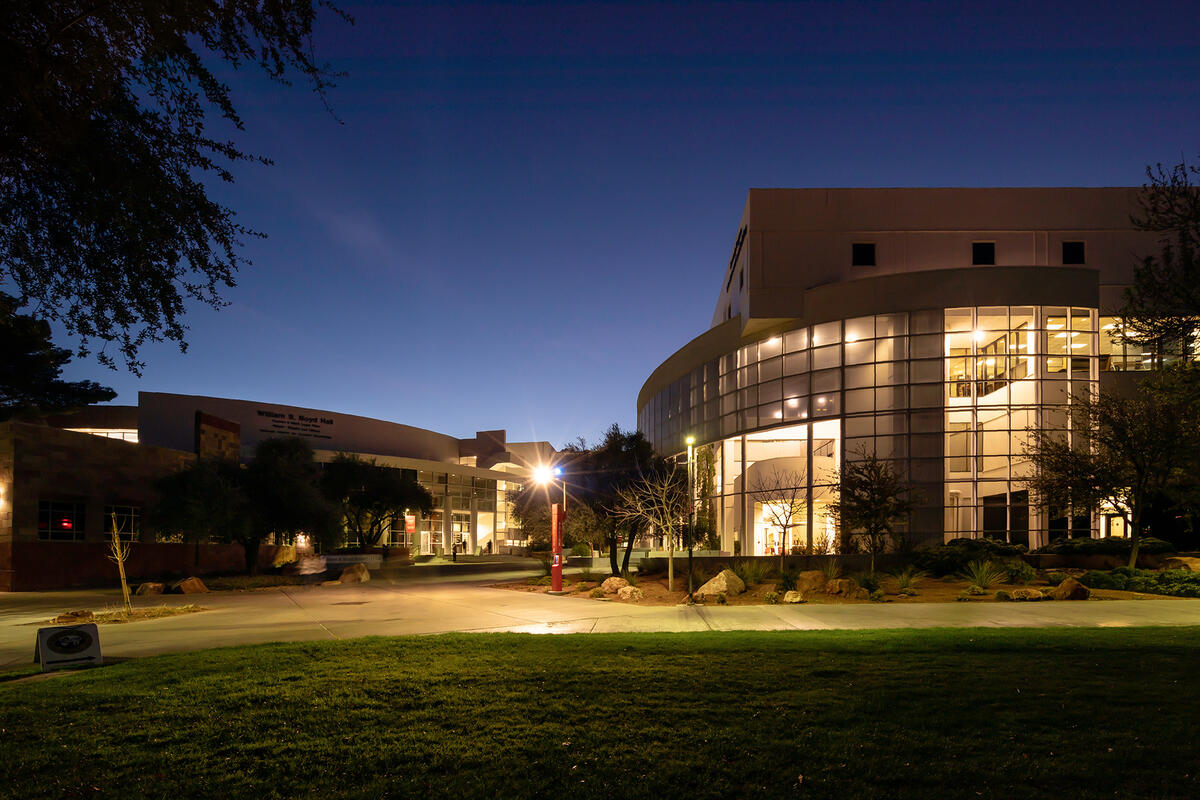
Master of Fine Arts in Creative Writing
Program overview.
Named one of the “Five Innovative/Unique Programs” creative writing programs by The Atlantic , the master of fine arts in creative writing is one of two programs offered by UNLV’s Creative Writing International Program with genre concentrations in fiction, literary nonfiction, and poetry. By providing an innovative curriculum and fostering an educational environment where students can perfect their art, our graduates become globally-engaged writers that demonstrate socially-engaged and active writing practices.
Program Outcomes
Students receive a strong theoretical foundation in their selected genre concentration, as well as an appreciation for the art and theory across various genres, thereby expanding their creative abilities. Moreover, they develop a nuanced understanding of canonical contexts and the historical evolution of literature, which provides valuable insights into new writing. Through exposure to international writing and literary translation, students cultivate a practical appreciation for diverse linguistic traditions beyond English, enriching their creative perspectives.
A high percentage of our graduates have widely published fiction, literary nonfiction, journalism, and poetry with mainstream presses, indie presses, and nationally esteemed venues such as:
- W. W. Norton & Company
- Grove Press
- The Best American Poetry
- McSweeney’s
- The New York Times
- The Los Angeles Times
Program Structure
Our students follow a three-year course of study that includes writing workshops, genre forms courses, literature classes, a residency abroad, completion of a literary translation, and completion of a book-length manuscript that meets the standard of publishable works. Students also have the opportunity for teacher training and practical experience in literary publishing.
Additionally, our department, in partnership with the Black Mountain Institute, offers the Doctorate of Philosophy in English with a Creative Dissertation, supported by a graduate assistantship combined with the Black Mountain Institute fellowship.
Program Funding
All MFA students are fully funded by UNLV and the Black Mountain Institute (BMI) for three years of study towards their degrees.
- Graduate Assistantships of $21,000/year
- Opportunities for additional funding from BMI
- In-state tuition
- Student health insurance.
Duties for the Graduate Assistantship are 20 hours per week, usually fulfilled through a combination of teaching, tutoring in the Writing Center, and working for English Department or Black Mountain Institute publications.
Our Faculty
Maile chapman, ph.d..

Wendy Chen, Ph.D.

Claudia Keelan

Roberto Lovato
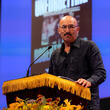
David Morris, MFA

Douglas A. Unger

The MFA Student Experience
The UNLV creative writing program offers a supportive and immersive experience to its students. From day one, students become part of a vibrant community of writers where creativity thrives and collaboration flourishes. Whether students aspire to publish their writing, pursue further study, or embark on diverse career paths within the literary world, UNLV provides the resources, support, and community they need to thrive and succeed.
Activities and Events With the Black Mountain Institute
The UNLV Department of English has a longstanding relationship with the Beverly Rogers, Carol C. Harter Black Mountain Institute (BMI). This allows our students to receive opportunities to engage in creative and literary activities with visiting BMI fellows in socially meaningful literary events for the city of Las Vegas and its greater community. Recent BMI fellows and national and international award-winning visitors include:
- Percival Everett
- Melissa Febos
- Layli Long Soldier
- Jaquira Díaz
- Nana Kwame Adjei-Brenyah
See the Black Mountain Institute's website for more information.
Academic and Literary Journals
The creative writing concentration helps students develop their writing craft and critical thinking skills through a workshop setting and literature courses. It equips them with professional skills for various industries and prepares them for graduate studies in English and creative writing.
Founded by M.F.A. alumna Kat Kruse in 2010, Neon Lit is a completely student-run reading series featuring writing of students currently in the Creative Writing programs at UNLV. Events are held on the last Friday of each month usually at the Writer’s Block, an independent bookstore and community center in downtown Las Vegas. See Neon Lit’s website and YouTube Channel for more information.
Writing Series
Breakout writers series.
The “Breakout Writers Series” or Emerging Writers Series features writers just emerging on the literary scene. Writers who visit and read for this series are chosen entirely by the students in the M.F.A. and Ph.D. programs.
Alumni Reading Series
The yearly Alumni Reading Series celebrates the literary successes of graduates of the program. Recent alumni readers include Marianne Chan, Jean Chen Ho, Clancy McGilligan, Alissa Nutting, Juan Martínez, Sasha Steensen, and Mani Rao.
Admission Requirements
- Fiction: 20-30 pages
- Literary nonfiction: 20-30 pages
- Poetry: 10-15 pages
- A letter of application to the Graduate Committee detailing a statement of purpose and reasons for choosing UNLV
- Official transcripts from all previously attended colleges or universities
- Two letters of recommendation
Applicants must choose the International Focus subplan, unless they have already been accepted to the Peace Corps Master's International Partnership program.
International Applicants
Each year, our program admits several international writers with high competency in writing in English that immensely contribute to our literary community. Our diverse student body fosters a rich exchange of ideas and perspectives, creating a dynamic learning environment that prepares graduates for success in the global literary landscape. Furthermore, UNLV's creative writing program values inclusivity and encourages applicants from diverse backgrounds and life experiences to contribute to the vibrant tapestry of voices within our community.
The Top 25 Underrated Creative Writing MFA Programs
By Terry Helms | April 19, 2011

- University of Central Florida. Recently named one of the nation’s biggest party schools, and why not? It’s in Orlando, so there’s more than just the weather to celebrate — Disney World is only a short car-trip away. But locale aside, who knew that UCF fully funds nearly all its incoming students? The faculty roster may not boast many superstars, but neither do most other programs’ faculties, and ultimately it’s the quality of teaching that matters, not public acclaim for professors’ writing. If you want to attend a large, vibrant university in the midst of a large, vibrant, warm-weather city — and be fully funded in the bargain — UCF is for you. It’s no coincidence that four programs on this list are located in Florida; MFA applicants consistently under-apply to Florida programs (even University of Florida, a Top 25 program overall and certainly the best MFA program in the state, receives only half the applications it should).
- Ohio State University. Nobody can explain why this program isn’t Top 25 — perhaps even Top 20 — every year. Sure, it’s already popular, but it remains half as popular as it should be. Three years in an AIER-rated Top 15 “mid-size metro” with a strong faculty, a reasonable teaching load, and a vibrant university community deserves a close look from any serious MFA applicant. Every year OSU is outside the Top 25 (especially in poetry), something is grievously wrong with the national MFA picture.
- University of Miami. Knocking on the door of the Top 50 in all categories of assessment, Miami will someday soon make the leap to the Top 50 and stay there. It’s a great university in a great city, and it deserves — and has — a great, well-funded MFA program. If you’re looking for a fully-funded-for-all MFA experience in a big city (and there are only around five such experiences available nationally), you’ve found your place.
- University of Texas at Austin [Department of English]. This is the other MFA program at the University of Texas. The program at the Michener Center is already one of the most well-known and highly-selective in America; what many don’t realize, however, is that the MFA run by the university’s English Department is also fully funded — albeit less generously — and its students get to workshop alongside Michener faculty and students. Plus, it’s in Austin, as happening a college city as one could hope for. You can expect this program to crack the national Top 50 sometime in the next 24 to 36 months, but for now it’s still a hidden gem. No other university in America (except the University of Iowa, which offers both the Writers’ Workshop and the Nonfiction Writing Program) has two separate and distinct MFA programs, though the difference between Iowa and Texas is that both of Iowa’s programs are incredibly selective. Applicants looking to slip into a Michener-grade experience through the back door should take the hint.
- University of New Orleans. The Big Easy is coming back — in a big way. The MFA at UNO offers both a full- and low-residency option, and frankly there’s no reason not to leap at the former. Many students get full funding, you can take classes in screenwriting and playwriting as well as poetry and fiction, and there are summer programs available in both Europe and Mexico. There’s much to be excited about here.
- Oklahoma State University. The prospect of living in Stillwater won’t set many eyes agog or causes many hearts to flutter, but the fact remains that the Okies don’t currently crack the Top 100, and they certainly should. Lots of full funding packages are available, there’s a creative writing doctoral program at the university along with the MFA — meaning, by and large, a higher quality workshop experience than one might otherwise expect — and yet almost no one applies. That should change.
- Florida Atlantic University. Last year the report on FAU was simply this: “A dark horse among dark horses.” This year the program earns a slightly more robust entry, as a spotlight is cast on the following program features: three genres of study are available; the program fully funds many admittees; it’s located three miles from the beach; and it’s woefully under-applied to. All of which are great reasons to consider applying to this under-ranked and under-rated gem.
- Florida State University. Tallahassee gets mixed reviews, and some worry the program has gotten too large for its own good, but it’s three years of full funding at a university with not only a creative writing MFA but a top-notch creative writing doctorate, too (currently ranked second nationally). It may not deserve to be a Top 20 program in the national MFA rankings, but its recent fall in this year’s yet-to-be-released rankings (to #72) is entirely unwarranted. Right now there’s better than even odds it makes a return to the Top 50 next year.
- Georgia College & State University. The whole operation here gives off a warm vibe, and why not: it’s a well-funded, intimate program that’s been flying below the radar for years. Yet now it’s within hailing distance (nine spots) of an Honorable Mention classification in the forthcoming national MFA rankings, and it really does deserves to make the jump to that next level. A better rural Southern program you’d be hard-pressed to find.
- Iowa State University. What was said last year bears repeating, especially with the program making the jump to Honorable Mention status in the national rankings this year: the secret’s almost out of the bag on Iowa State, and what’s not to like? It’s three fully funded years in one of AIER’s Top Five college towns (PDF) at a program to which few apply. ISU’s unique focus on the environment (as well as interdisciplinary work and one-on-one mentoring) are stand-out features.
- Minnesota State University at Mankato. It’s a program you keep hearing good things about, even if you’re not entirely sure why. Maybe it’s the fact that the English Department offers a total of 30 full-tuition-remission teaching assistantships, and they’ll let you stay three years if you want. Maybe it’s the sense that this is a friendly, inviting program. Who knows. In any event, it makes the list, and while it may not be this grouping’s strongest entrant, by all accounts it deserves to be here.
- New Mexico State University. Students insist the program’s website is outdated, and that NMSU actually fully funds the majority of its incoming students. We’ll take the students at their word. Certainly, the program gives all the signs of hosting a lively literary community, and that’s reflected in its slow creep up the national rankings (currently #82). As with Minnesota State, it’s certainly not the strongest program on this list, but nevertheless it’s worth watching.
- North Carolina State University. Rumor has it that NCSU will soon become part of what’s become a national trend among MFA programs: only admitting students who can be fully funded through grants, fellowships, or assistantships, and thereby becoming a “fully funded program” under the current national assessment scheme via the back door. Well, why not? If the rumor’s true, you’re looking at a possible Top 50 program in the years ahead (it’s already Top 30 in selectivity, and just outside the Honorable Mention category of the national rankings). Poet Dorianne Laux is the star of the faculty here.
- Northern Michigan University. A tiny program in the scenic UP that funds surprisingly well. It oughtn’t be as obscure as it is. As with so many — in fact, far too many — MFA programs, NMU’s website reveals little significant information about the program and thereby does it (and its applicants) no favors. But the sense in the creative writing community is that something good is happening here.
- Oregon State University. With all the attention paid to the University of Oregon’s fully funded MFA program, Oregon State somehow gets overlooked. Corvallis isn’t Eugene, sure, and OSU can only fund many, not all, incoming students, it’s true, but the fact remains that OSU ranks just outside the Top 50 in poetry, just outside the Top 25 in nonfiction, in the Top 40 for placement, and in the Top 50 for selectivity. If you can get in with full funding, there’s no reason not to go.
- San Diego State University. Hundreds of California residents apply to MFA programs every year, and a sizable percentage of those would stay close to home if they could. Unfortunately, the Golden State has the smallest percentage of fully funded MFA programs of any state in America as a function of population, if not landmass (that latter distinction goes to the great state of Alaska, whose state university at Fairbanks nearly made this list). Still, if you’re looking to apply to California programs SDSU should be on your list, especially if you’re a poet (the poetry faculty is especially strong). Tons of assistantships are available, the website (unlike 90% of MFA program websites) is fantastic (albeit a little vague about the actual quantity of student funding opportunities), and there’s a top-notch literary magazine on-site, too.
- Temple University. Attention poets: Temple has an MFA program. Philadelphia has long been one of the great cities for American poets to live in, and now that Temple has transformed from a non-terminal MA to a terminal MFA, it’s suddenly worth a second look. Is it still a program in transition? Sure. But it’s also ranked 109th nationally, so the fact that it has a way to go is part and parcel of it appearing on this list. The faculty here is amazing, even if the funding is not (or not yet) — though it’s said that it’s much better for poets than for fiction-writers, in keeping with the program’s strong ties to the Philadelphia poetry community.
- University of Arkansas. With Ohio State, University of Arkansas is one of two current Top 50 programs to make this list (and for the record, University of Nevada at Las Vegas was quite nearly the third). This is a four-year, fully funded program in a nice college town, and it offers literary translation as well as poetry and fiction tracks. It’s in the top tier in practically any measure you’d care to name, and yet it cannot — cannot — seem to crack the national Top 30, which is especially odd given that a similarly long, similarly well-funded southern program (University of Alabama) has been impossible to dislodge from the Top 20 for years now. The difference between the two programs isn’t great enough to explain the ranking difference. More poets and fiction-writers should apply here, it’s that simple.
- University of California at Riverside. Trying to get funding information on California MFA programs requires more than a little detective work. UCR is rumored to fund many of its students well; only the program’s webmaster knows for sure, however, and he’s not telling. Whatever the truth of the matter, a few things are for certain: the program offers five genres of study; it (wisely) requires rather than merely encourages cross-genre work; the faculty is excellent; and the fact that the university has an undergraduate creative writing major (the only one in California) tells you how committed the entire university is to creative writing. The location is also a plus: a large city (300,000+) within a short distance of Los Angeles.
- University of Kansas. What was said last year still applies: this now-Honorable-Mention program offers three years of well-funded creative writing study, and KU is one of the few U.S. universities that cares enough about creative writing to host both a creative writing doctorate and an MFA. And did you know Lawrence, Kansas is deemed a Top 10 college town nationally by AIER? The 2/2 teaching load is daunting, but there’s still a lot of reasons to be excited about KU.
- University of Utah. Back in 1996, the creative writing program at Utah was ranked in the Top 20 nationally — largely due to a creative writing doctoral program that still ranks among the Top 10. It’s a mystery why the MFA program at Utah (now ranked #115) isn’t more popular, given that almost a third of incoming students are fully funded, everyone gets to workshop with some of the best creative writing doctoral students in the world, and Salt Lake City is by all accounts a surprisingly nice (and surprisingly progressive) place to live for a couple years. The literary arts community here deserves much more attention than it’s getting from applicants.
- Virginia Commonwealth University. For years now VCU has been in and out of the national Top 50 — it depends on the year — but in a just world it would consistently be on the inside looking out. And it has nothing to do with the spotlight recently shone on Richmond by the successes of two of its college basketball programs (VCU made the Final Four in 2011, and University of Richmond the Sweet 16). No, what’s happening here is that a three-year, well-funded program in a Top 15 mid-size metro (according to AIER) is being overlooked. This should be a perennial Top 50 program, and someday soon it will be.
- Western Michigan University. Kalamazoo is a larger and more vibrant college town than many realize, and now that — as word has it — the MFA program at WMU is seeking only to admit students it can fully fund (much like North Carolina State, above), applying to be a Bronco just seems like good sense. As with some other programs on this list (Florida State, Utah, and, to a lesser extent, Oklahoma State) students at Western Michigan get to workshop with some of the nation’s most talented MFA graduates — the creative writing doctoral program at the university is ranked among the top dozen nationally. Perhaps that’s why student satisfaction here appears to be so high? WMU is knocking on the door of an Honorable Mention classification in the national rankings, and if it goes public with its plan to become fully funded it will achieve that classification and perhaps even more — a Top 50 designation, too.
- West Virginia University. They’ve been cagey about their funding in the past, but reports are that the funding is actually excellent and that the program’s annual applicant pool is swelling. It’d be hard to argue that the program should be ranked much higher than it is — it makes the Top 60 nationally in the forthcoming national rankings — but it still isn’t spoken of as much as you’d expect.
- Wichita State University. The graduate creative writing program perhaps best known for being the place Albert Goldbarth teaches at has enjoyed a sudden bump in the rankings, from just outside the Top 100 to just inside the Top 80. And the ride may well continue; there’s still relatively little competition for admission to WSU, a real surprise given that this is a well-funded three-year program with a light teaching load.
All of these programs (with the exception of University of Arkansas and Ohio State) will need to spend much more time on their online promotional materials in order to make the jump from this list to the bigger one: the Top 50 national rankings, as published by Poets & Writers. Applicants to these (and, really, all) programs need to know precisely what percentage of incoming students receive the equivalent of a full tuition waiver and a livable stipend, as well as see some hard data on how selective their target programs are. Until that happens, most of these programs will continue to be unjustly underrated rather than justly highly-ranked. And, not for nothing, nearly all of these programs (with a few notable exceptions: Florida State, Iowa State, Ohio State, University of Arkansas, University of Miami, and University of Texas at Austin, all fully funded programs) could do with even more full-funding packages for incoming students.
For those keeping count, this is the second year this list has been compiled. Last year’s list can be found here . Feel free to discuss these and other programs in the comments section below.
Source: Huffington Post, HUFFPOST COLLEGE, The Top 25 Underrated Creative Writing MFA Programs (2011-2012) . Posted: 04/18/11 11:23 AM ET, by Seth Abramson.
A graduate of Dartmouth College, Harvard Law School and the Iowa Writers’ Workshop, Seth Abramson is the author of two collections of poetry, Northerners (Western Michigan University Press, 2011), winner of the 2010 Green Rose Prize, and The Suburban Ecstasies (Ghost Road Press, 2009). Presently a doctoral candidate in English at the University of Wisconsin-Madison, he is also the co-author of the forthcoming third edition of The Creative Writing MFA Handbook (Continuum, 2012).
More Headlines
UCF Assistant Professor is Charged to Unleash Student Potential July 2, 2024
UCF Researcher Clearing the Way for Smart Wireless Networks July 1, 2024
UCF Preserves and Honors Veterans’ Legacies July 1, 2024
Population Health Faculty Member Honored as Fellow June 28, 2024
More About Creative Writing
The Main Reason People Don’t Chase Their Dream of Writing February 5, 2020
These 6 Proud Knights Share Their LGBTQ+ Experience June 28, 2019
Alumna’s ‘First Miss’ Takes Center Stage at UCF Celebrates the Arts 2019 April 4, 2019
More About Opinions
Why Autism Awareness Alone Isn’t Enough April 15, 2024
The Beloved Community: Martin Luther King Jr. and the Collective Effort to Live, Learn and Love at a University January 12, 2024
New Habits for the New Year January 1, 2024
More Topics

IMAGES
VIDEO
COMMENTS
Best MFA Creative Writing Programs (Continued) 10) Sarah Lawrence . Sarah Lawrence offers a concentration in speculative fiction in addition to the average fiction, poetry, and nonfiction choices. Moreover, they encourage cross-genre exploration. With intimate class sizes, this program is unique because it offers biweekly one-on-one conferences ...
Find out the top MFA creative writing programs in the US, based on rankings, courses, requirements, and financial aid. Learn about the pros and cons of an MFA in creative writing, and explore online and alternative options.
Find out which MFA programs in creative writing offer the best support, guidance, and opportunities for aspiring writers. Learn about the features, faculty, alumni, and funding of these top-ranked programs across the country.
So, the best MFA in creative writing degrees employ professors with the rare combination of literary and academic talent—which is what you will find at each of the schools on this list. The Resources To Support Your Writing Vision. Writers only float in a sea of ideas. The top MFA programs in creative writing have the resources to fill that ...
Our list of 256 MFA programs for creative writers includes essential information about low-residency and full-residency graduate creative writing programs in the United States and other English-speaking countries to help you decide where to apply. It also includes MA programs and PhD programs.
Online + Campus. Avg. Cost per Credit: In-State | $849. Out-of-State | $849. Credits to Graduate: 36. In Albertus Magnus College's MFA in creative writing program, you can choose between a fully online master's program or a blended learning environment. This program can be completed full- or part-time.
Learn about the difference between MFA and master's in creative writing, and explore 11 of the best MFA programs in various genres and formats. Find out the requirements, benefits, and opportunities of each program to pursue your passion for writing.
MFA in Creative Writing Program Guide. Whether focusing on poetry, fiction, or nonfiction, a creative writing degree prepares students for a multitude of career options. Spanning two years, a master of fine arts (MFA) program trains you to become a skilled writer, communicator, and editor who can receive and apply feedback effectively.
Our prestigious MFA Creative Writing program is designed to help you develop your writing in supportive workshops and literature seminars led by an internationally recognized faculty and renowned authors. 40+ books published annually by alumni and faculty. 60+ annual writing events, including the National Book Awards Finalist Reading ...
Liberty University offers a Master of Fine Arts in Creative Writing that can be earned 100% online. The program consists of 48 credit hours of 8 week courses and usually takes 2 years to complete. The curriculum consists of courses such as Writing as Cultural Engagement, Contemporary Literature, and Writing Fiction.
This two-year, 36-credit-hour MFA program integrates writing, literary journalism, translation, and the study of literature to prepare students for a range of career possibilities. Write, give feedback, and receive guidance from a close-knit community of respectful peers and faculty. In the MFA program, you'll find lawyers, military veterans ...
Drexel University's two-year, low-residency MFA in Creative Writing is designed with the university's commitment to experiential and career-focused education in mind. Online workshops, reading tutorials, and one-on-one packet exchanges with notable published writers will help you deepen your understanding of your craft, while residencies ...
Our prestigious MFA Creative Writing program is designed to help you develop your writing in supportive workshops and literature seminars led by an internationally recognized faculty and renowned authors. 40+ books published annually by alumni and faculty. 60+ annual writing events, including the National Book Awards Finalist Reading ...
Earn an MFA in Creative Writing Online. $637/credit (48 credits total) Transfer up to 12 graduate credits. 100% online - no residency required. Four fiction genres to choose from. Career-focused certificate included. No application fee or GRE/GMAT scores required. Request Info Apply Now.
Here is the list of 53 universities that offer fully-funded MFA programs (Master's of Fine Arts) in Creative Writing. University of Alabama (Tuscaloosa, AL): Students admitted to the MFA Program are guaranteed full financial support for up to 4-years. Assistantships include a stipend paid over nine months (currently $14,125), and full payment ...
The MFA in Creative Writing is a two-year co-educational low residency program designed for serious, independent writers seeking advanced instruction in poetry, fiction, young adult fiction, and creative nonfiction through a non-traditional course of graduate study. Converse University is home to the only low-residency MFA in SC.
The MFA in Creative Writing is designed to offer students an opportunity to concentrate intensively on their writing. This program is recommended for students who may want to apply for creative writing positions at colleges and universities, which often require the MFA degree. The MFA program does not have a foreign language requirement.
In late 2019 I applied to around 15 of the best Creative Writing MFA's in the United States. All of these programs have less than a 3% acceptance rate--the most competitive among them less than 1% (yes, they received over 1000 applicants and accepted less than 10). There are plenty of Creative Writing MFA's that have much higher acceptance ...
Stanford University's Creative Writing MFA program is notable for its unique fellowships and focus on creative innovation. The program offers significant financial support and resources, allowing writers to fully immerse themselves in their craft, whether that be fiction, poetry, or another form of creative writing.
The MFA in Creative Writing challenges students to write in a variety of genres and to study literature from the point of view of a working writer. Recent graduates have become not only published authors of fiction, nonfiction, poetry, plays, and screenplays, but also journalists, editors, publishers, and college-level and secondary-level ...
Our online MFA in Creative Writing is designed to help you build on your writing skills with specific workshops dedicated to the craft of fiction, poetry, creative nonfiction, or screenwriting ...
The MFA in Creative Writing program now offers a year-long intensive certificate program titled The Prologue. As an introduction to the MFA program, The Prologue is a 12 credit post-baccalaureate program that provides creative writers of all levels with two semesters of rigorous, graduate-level one-on-one mentorship to help them jumpstart or finish a book-length project.
Program Overview. Named one of the "Five Innovative/Unique Programs" creative writing programs by The Atlantic, the master of fine arts in creative writing is one of two programs offered by UNLV's Creative Writing International Program with genre concentrations in fiction, literary nonfiction, and poetry.By providing an innovative curriculum and fostering an educational environment where ...
Three years in an AIER-rated Top 15 "mid-size metro" with a strong faculty, a reasonable teaching load, and a vibrant university community deserves a close look from any serious MFA applicant. Every year OSU is outside the Top 25 (especially in poetry), something is grievously wrong with the national MFA picture. University of Miami.